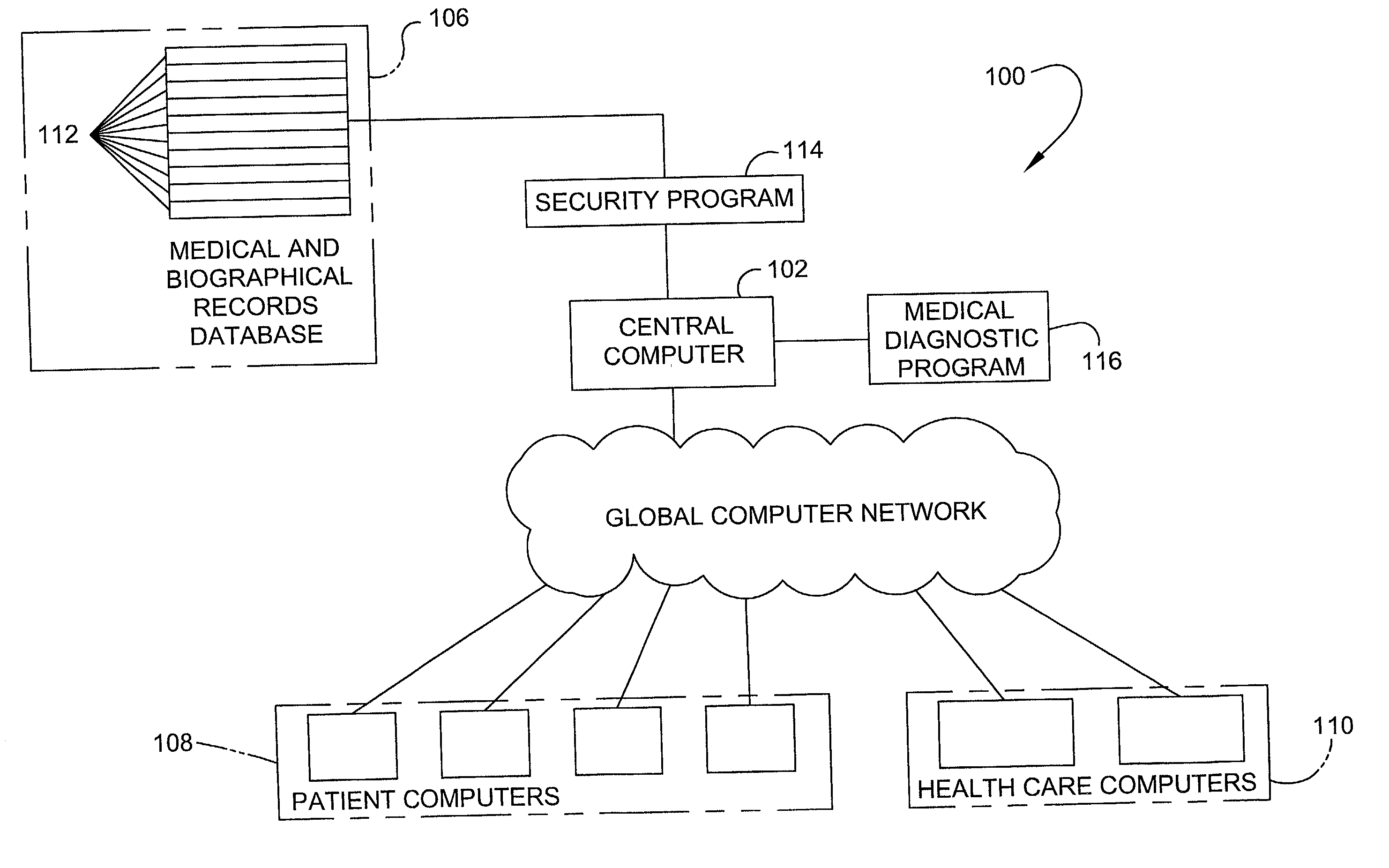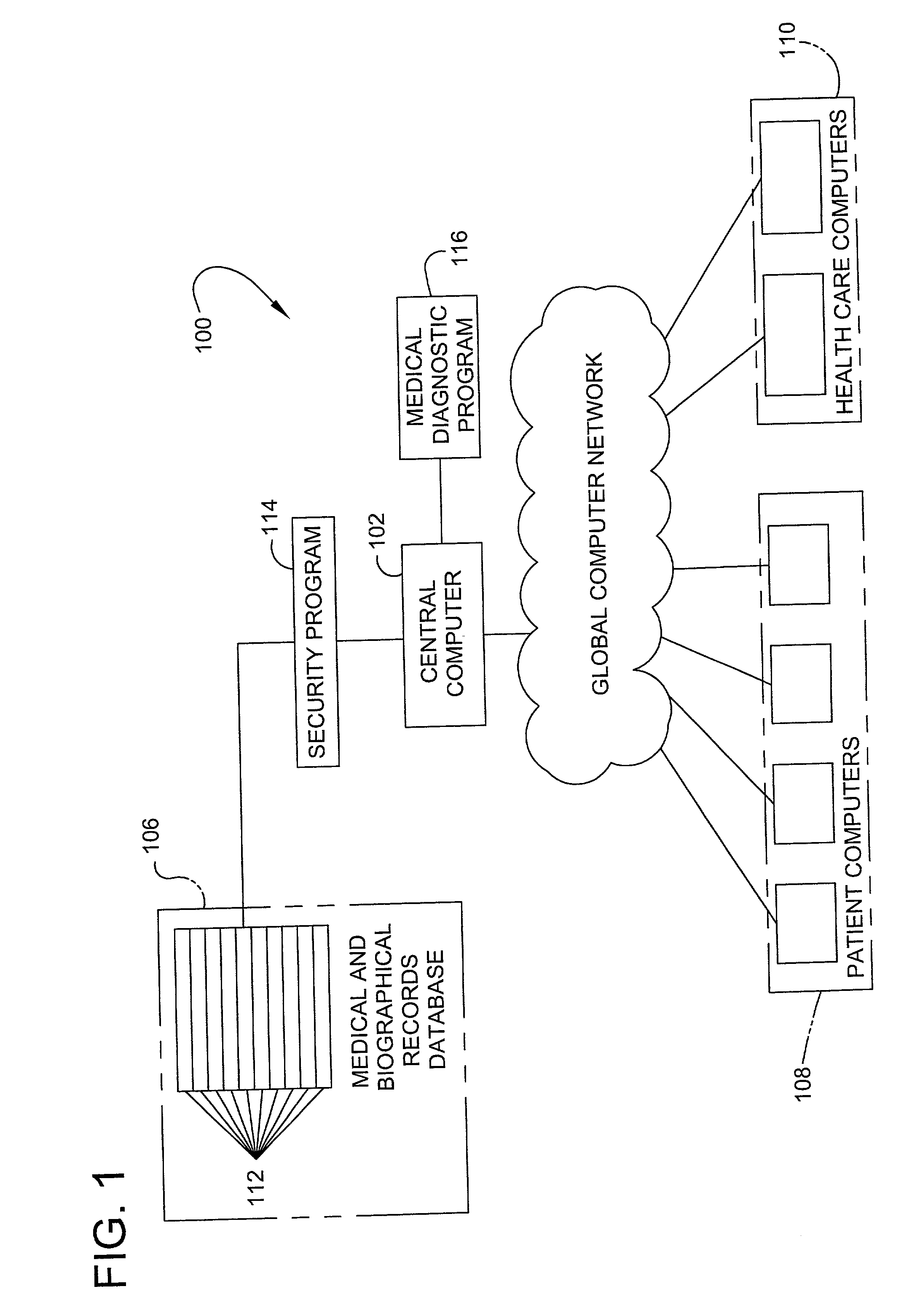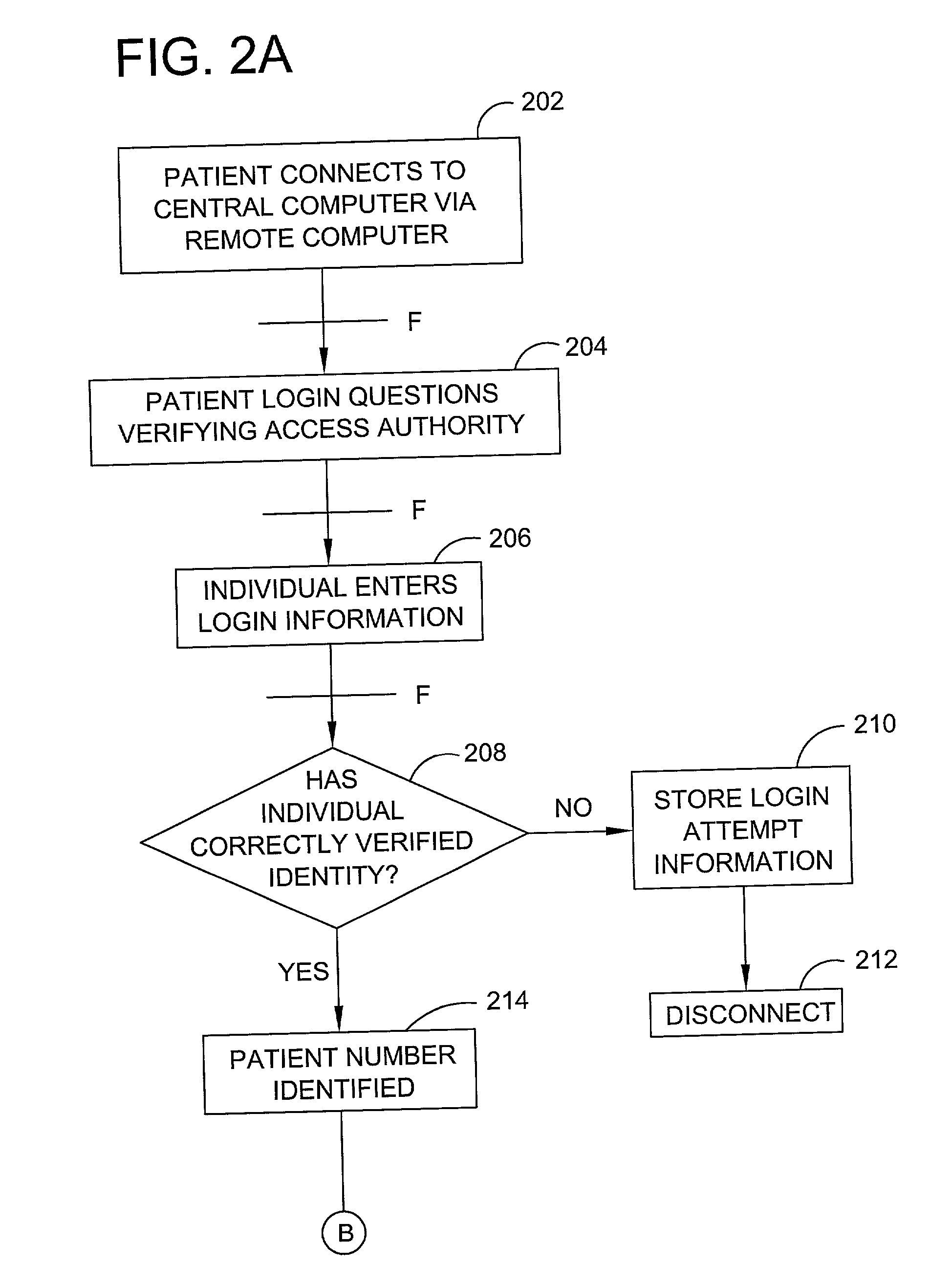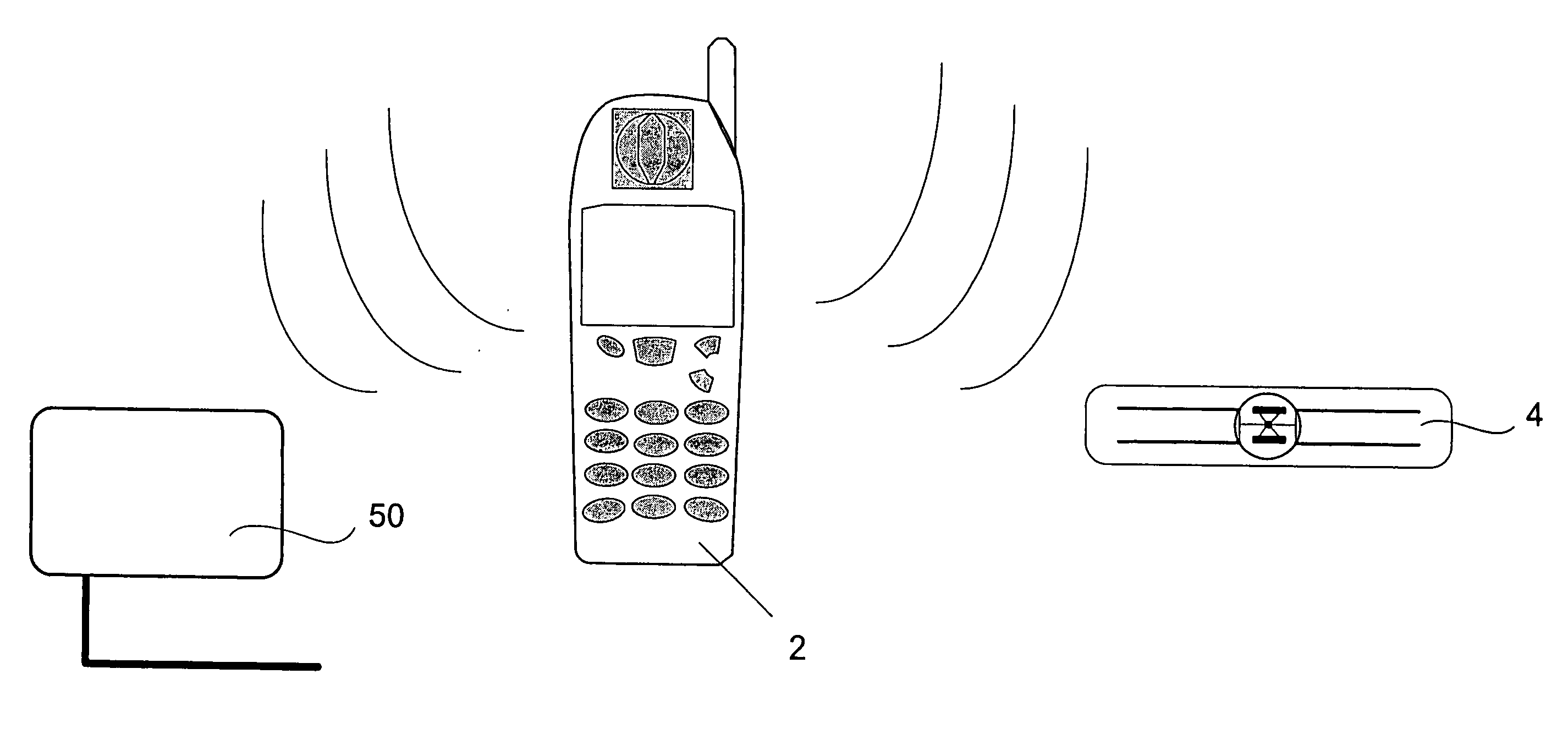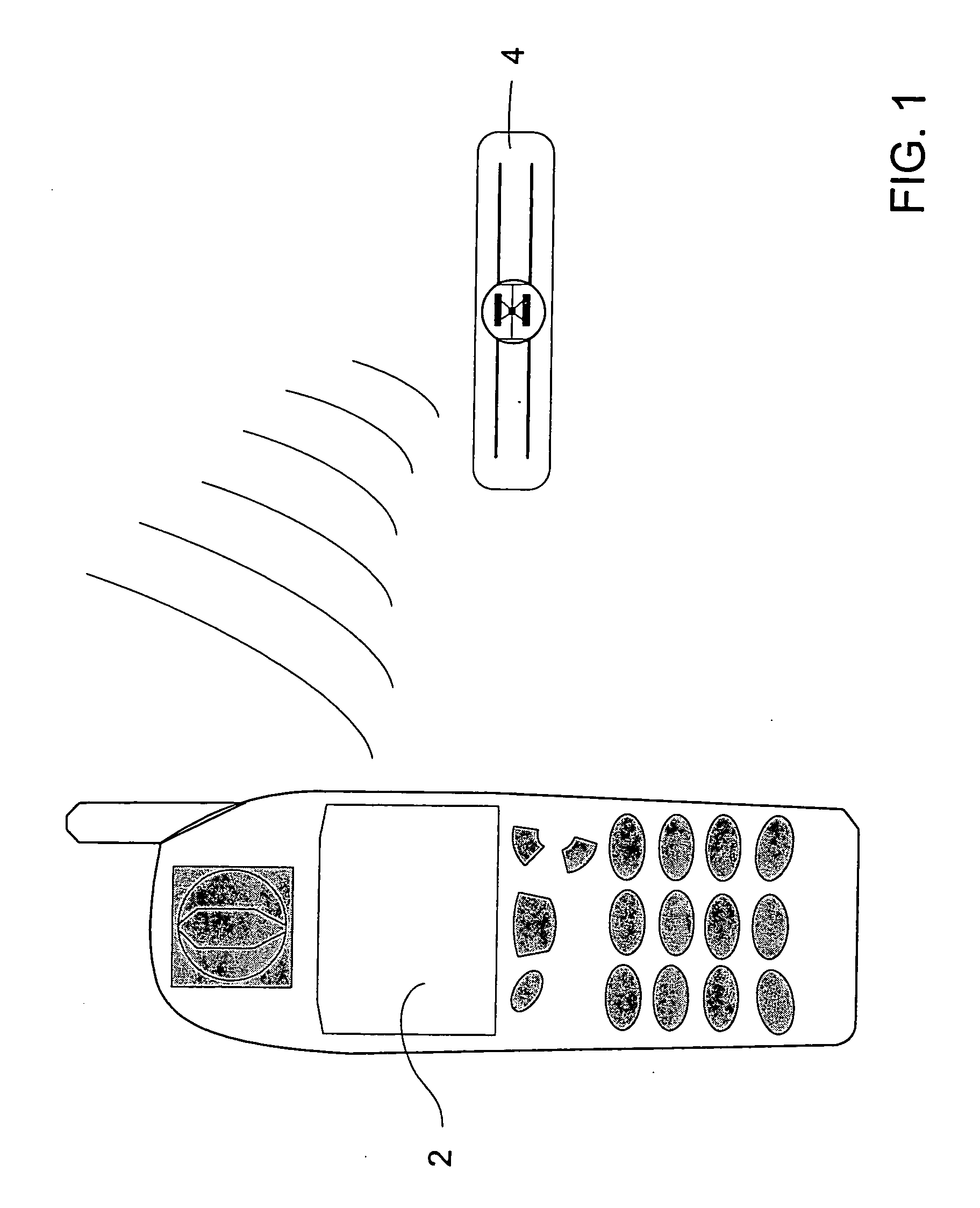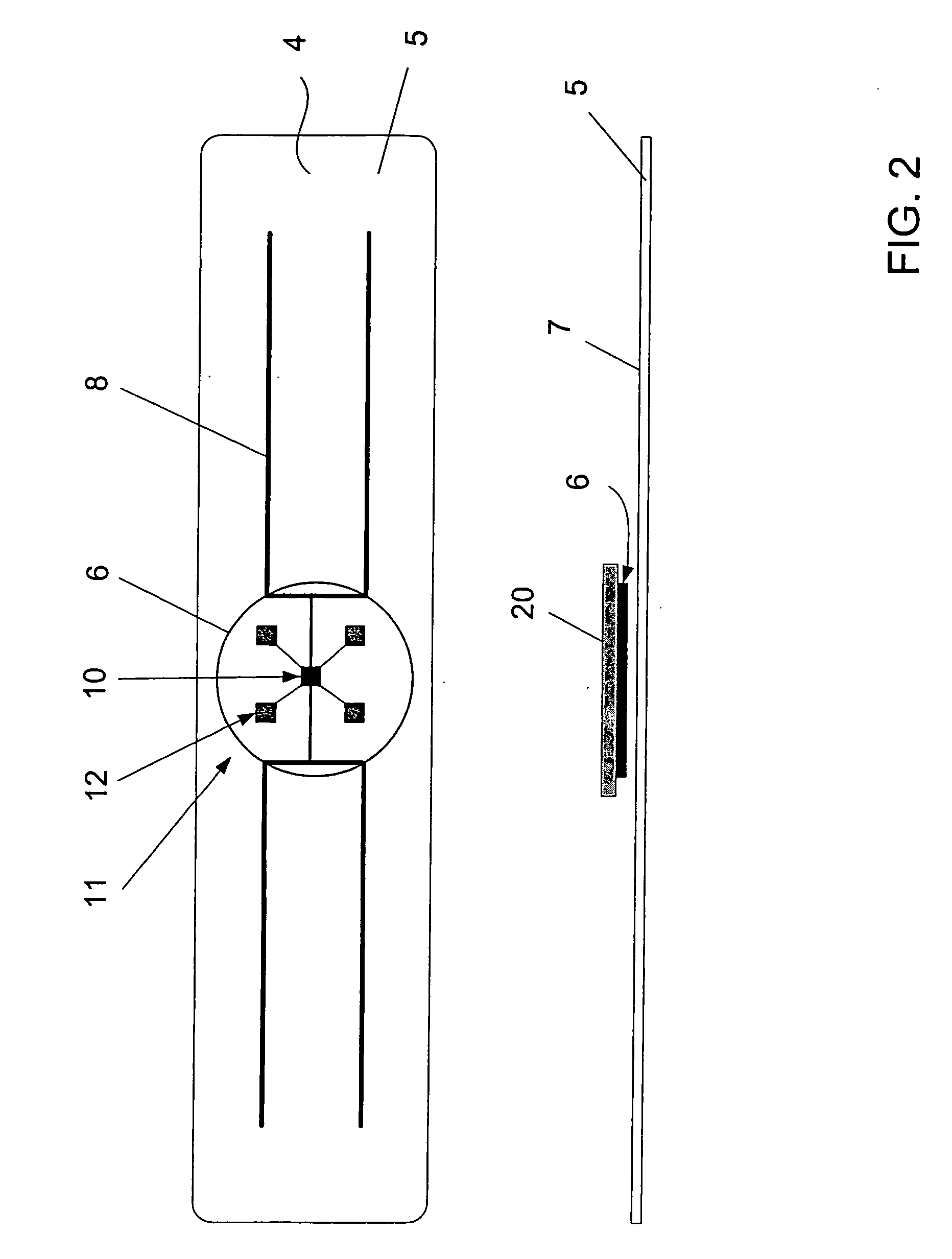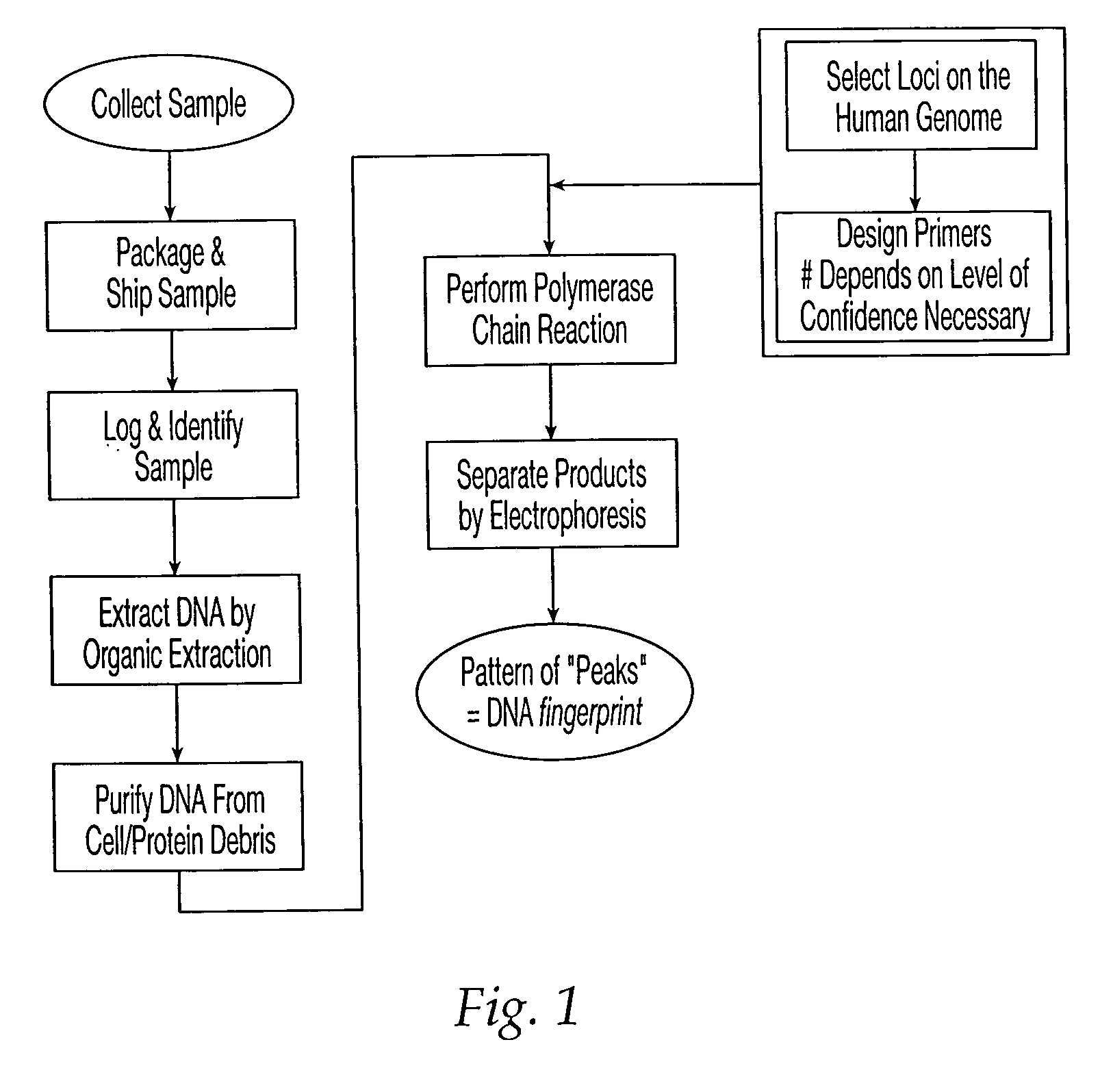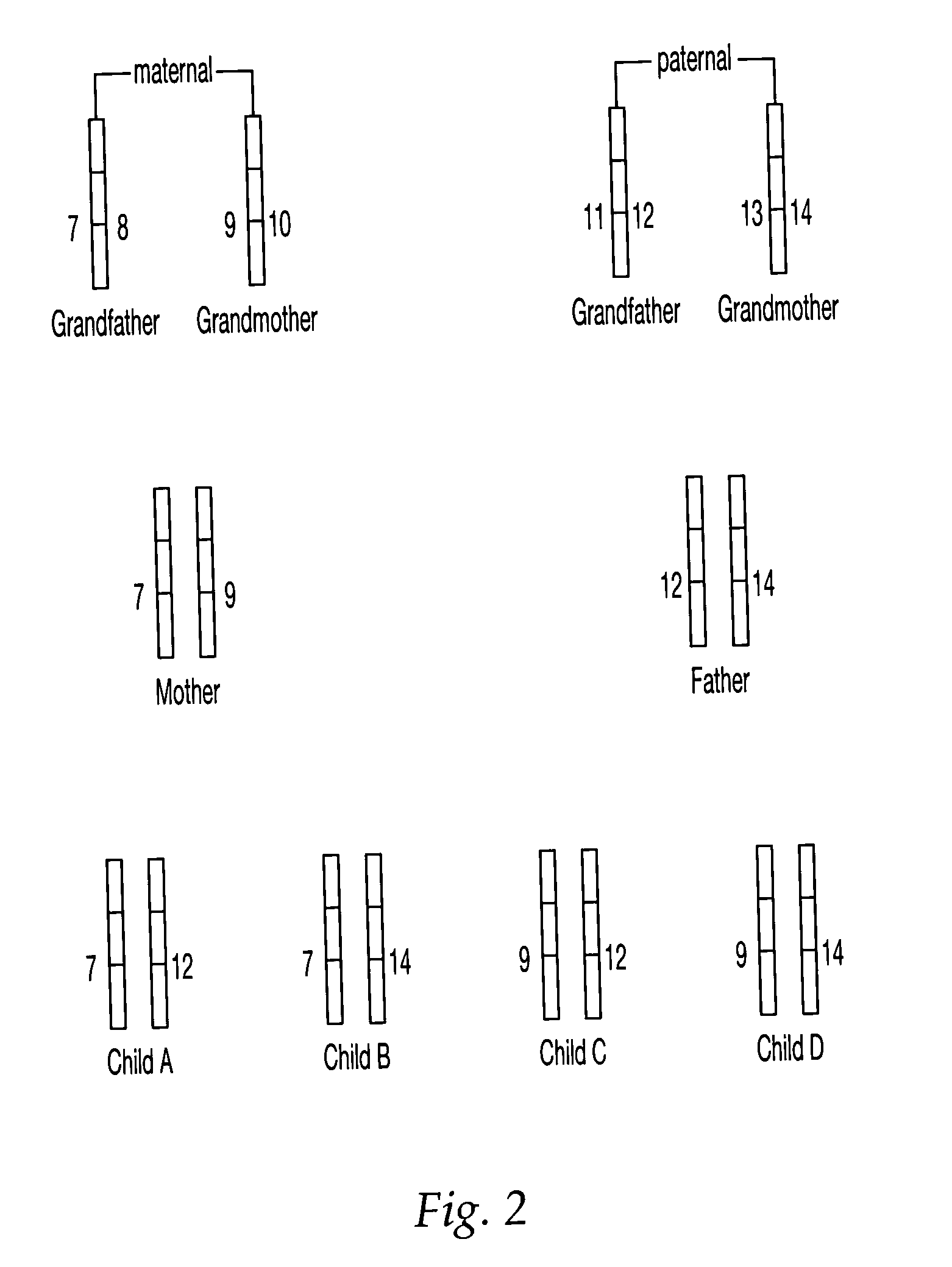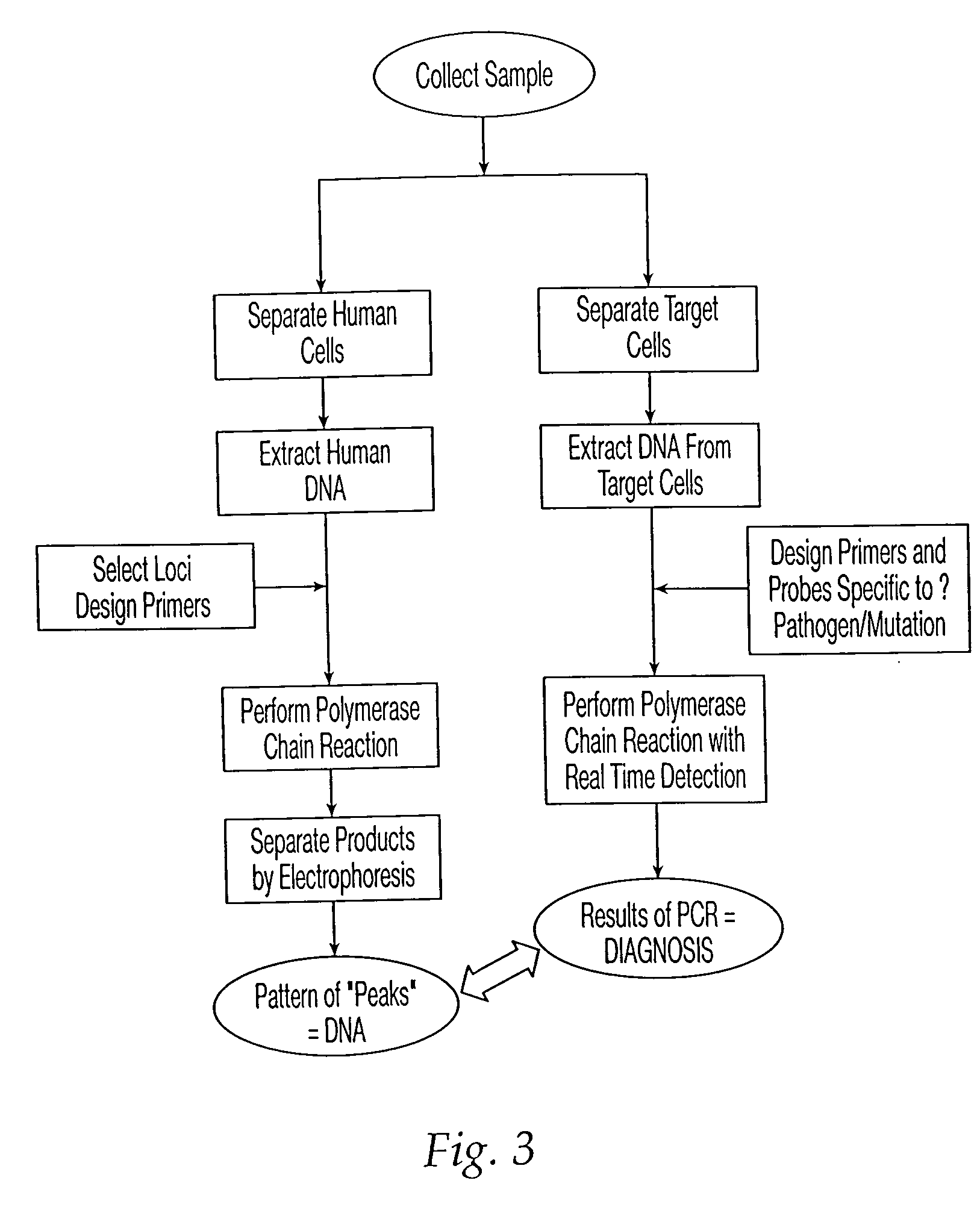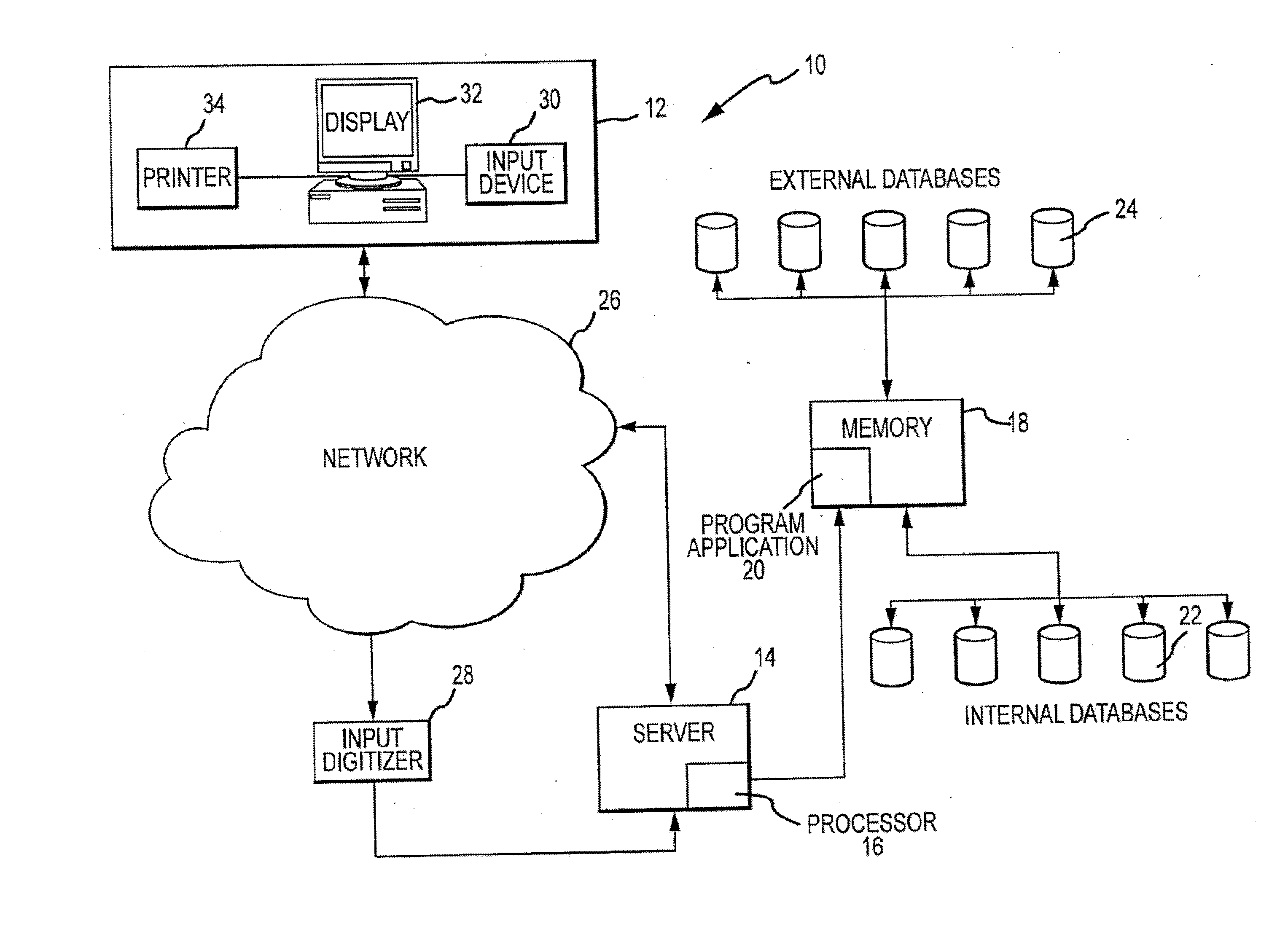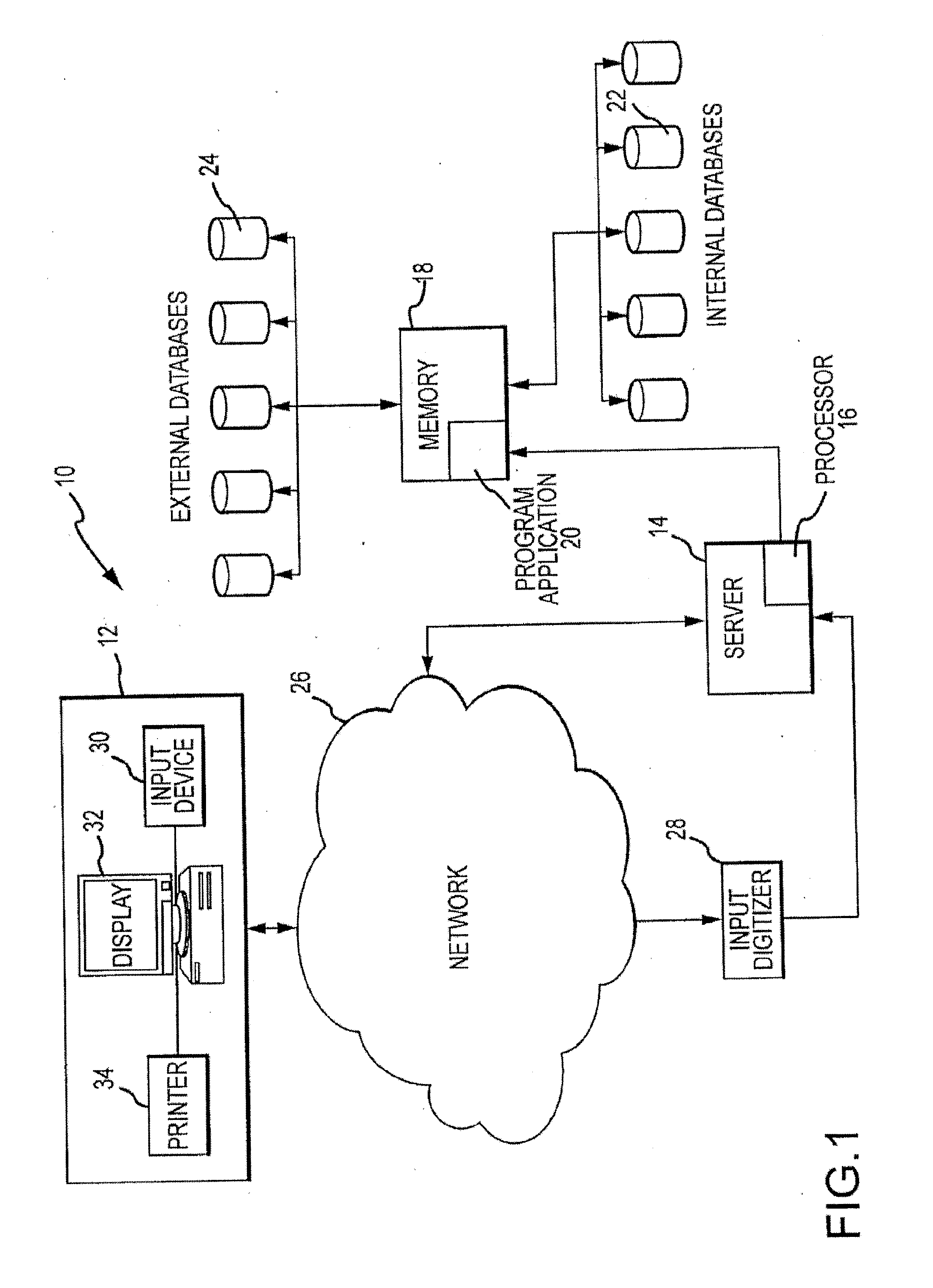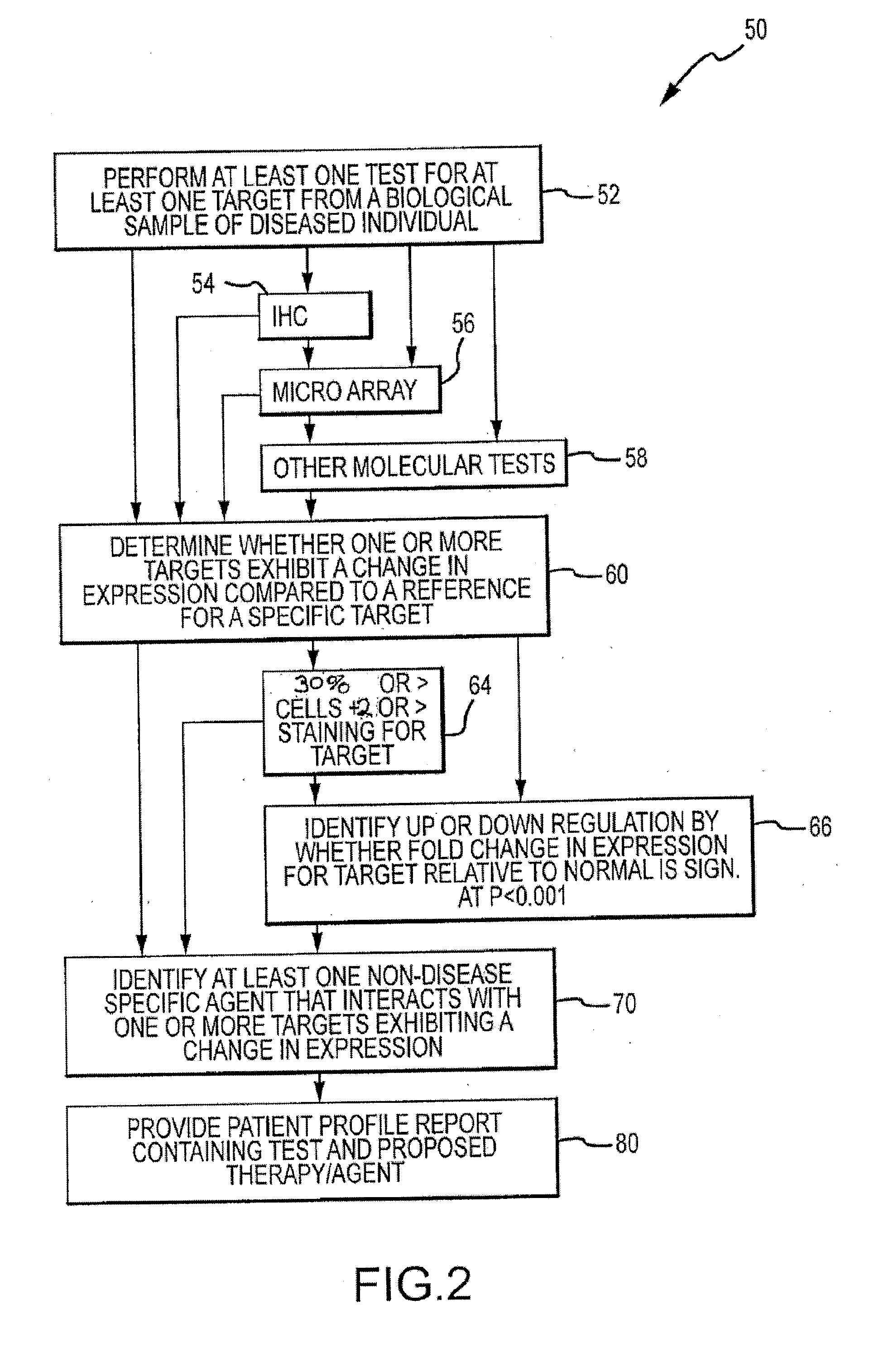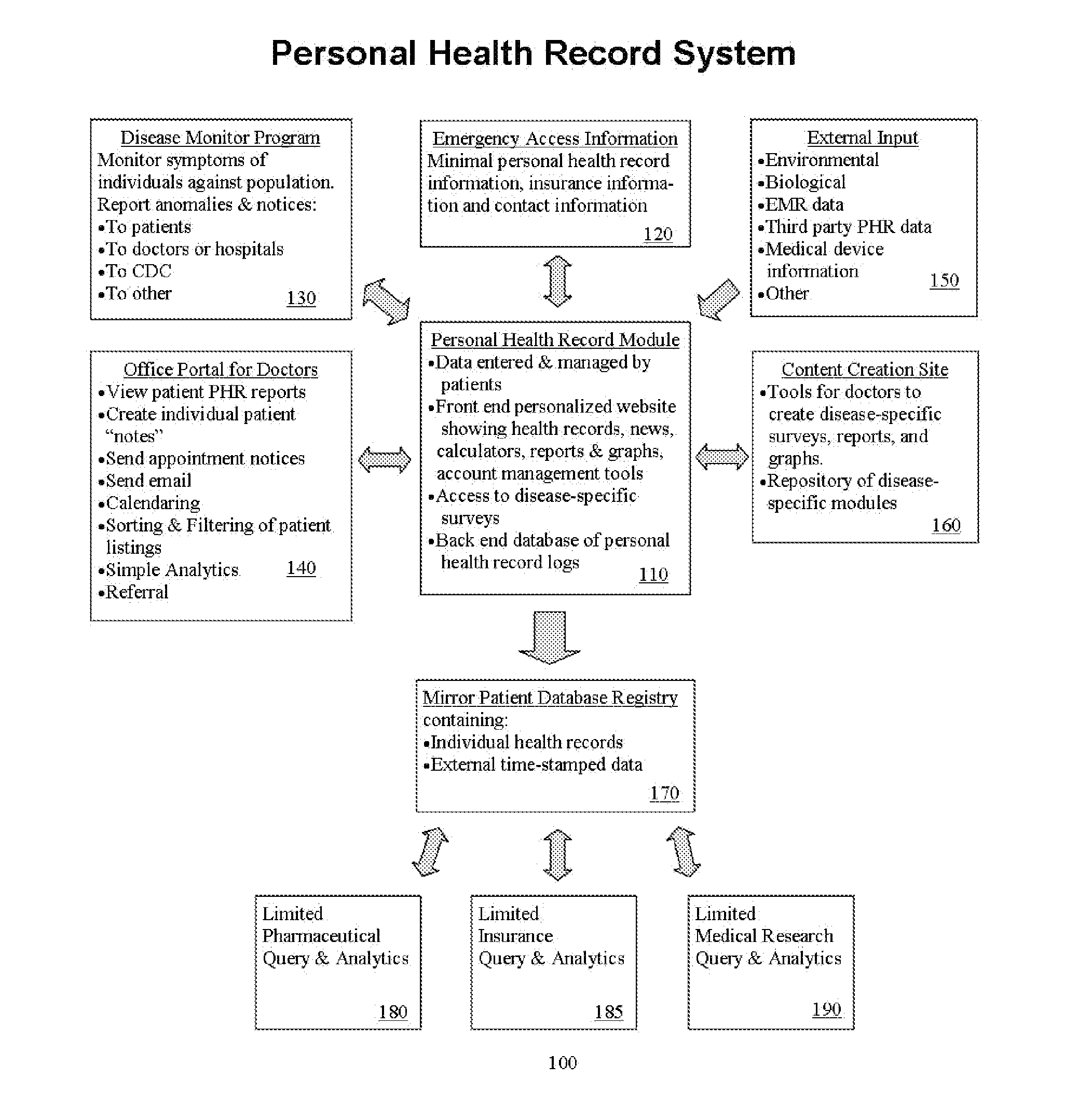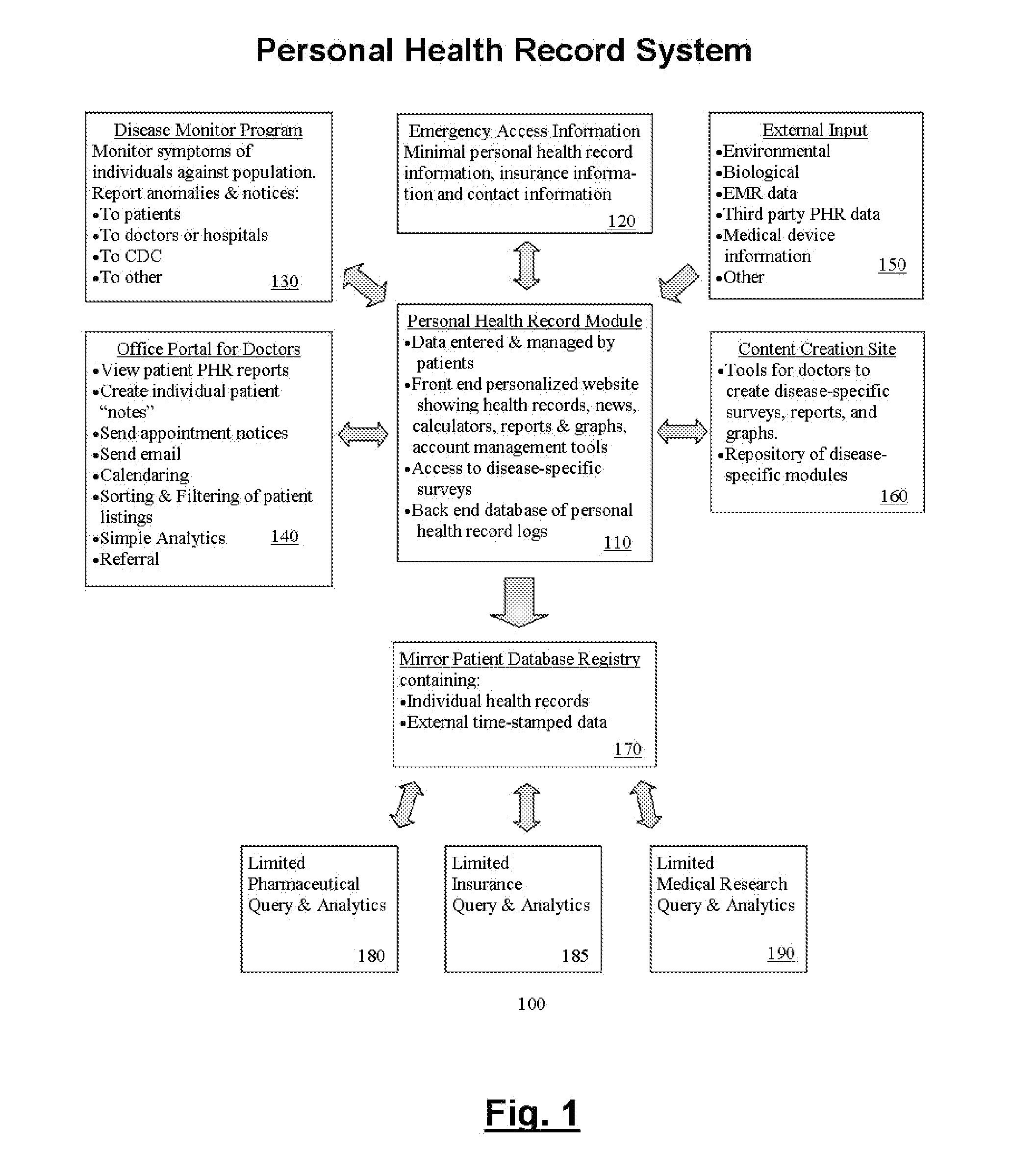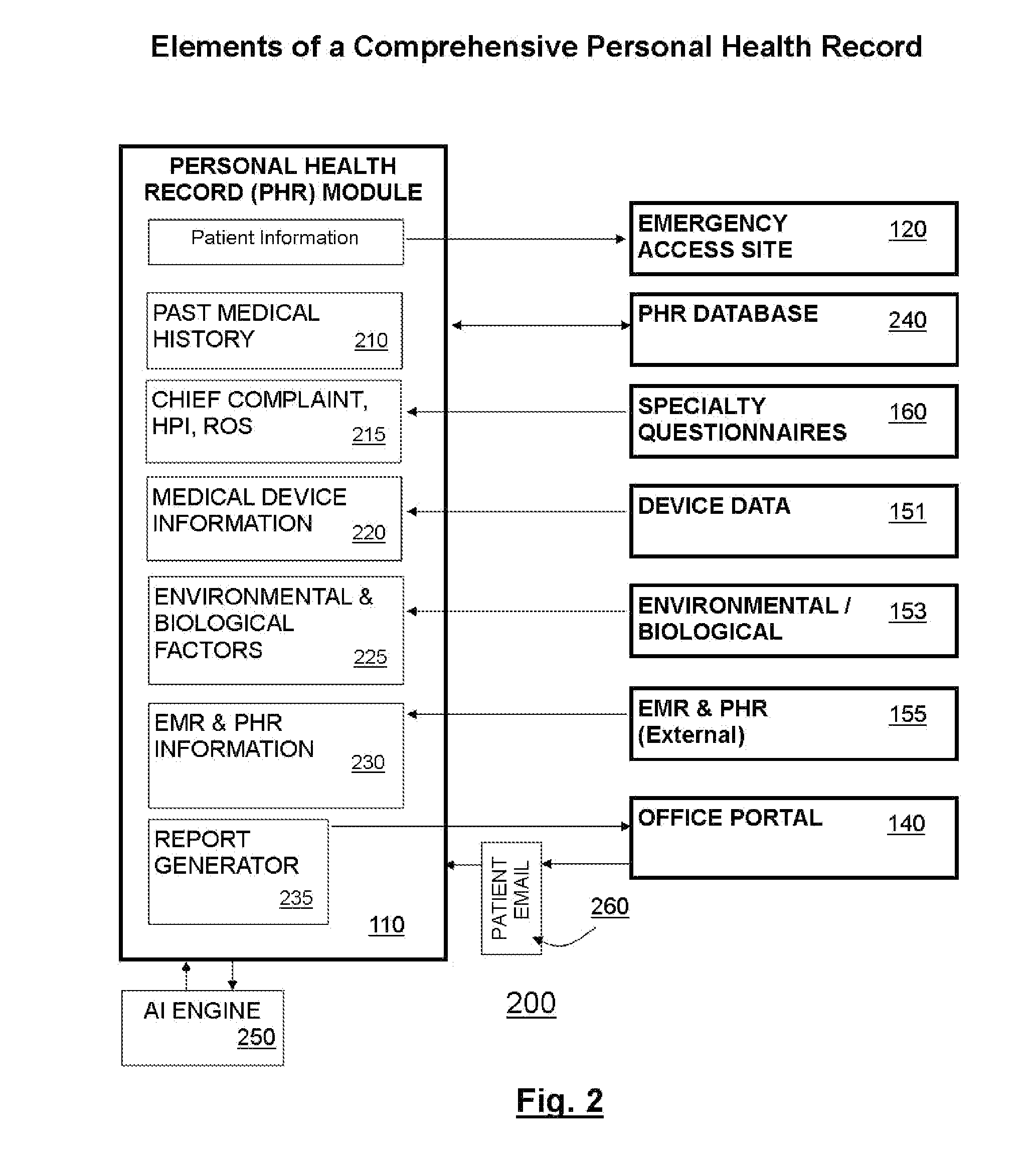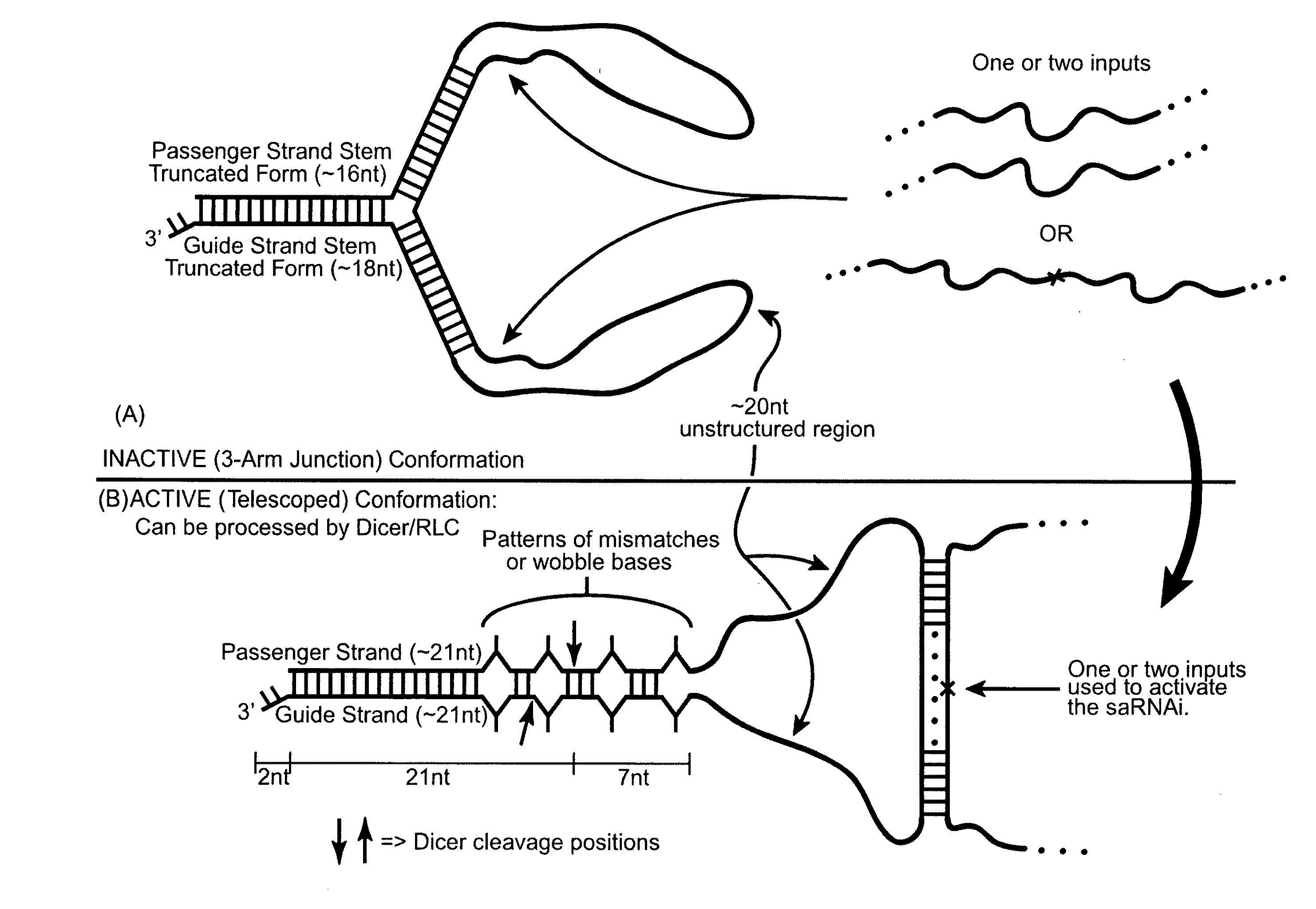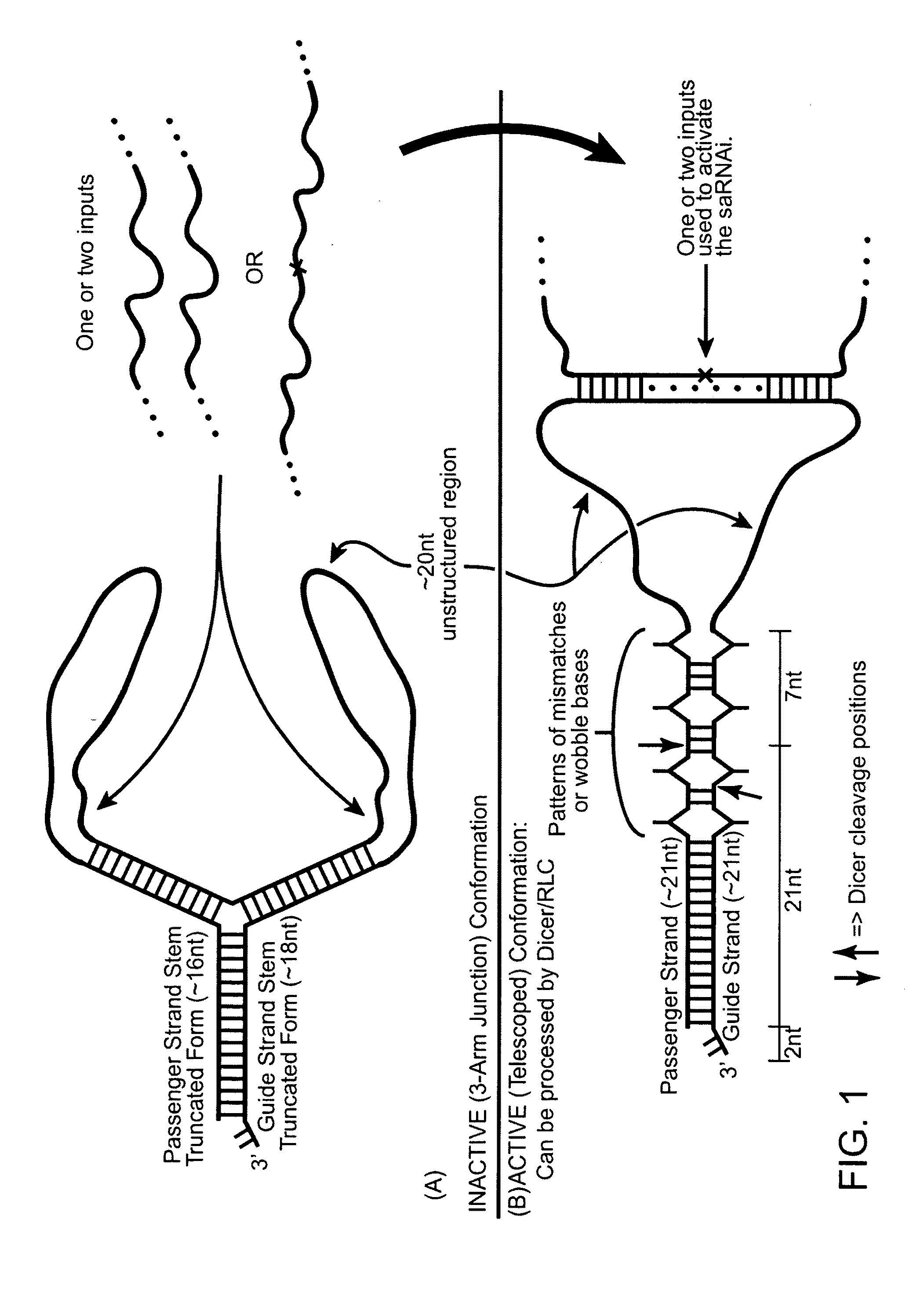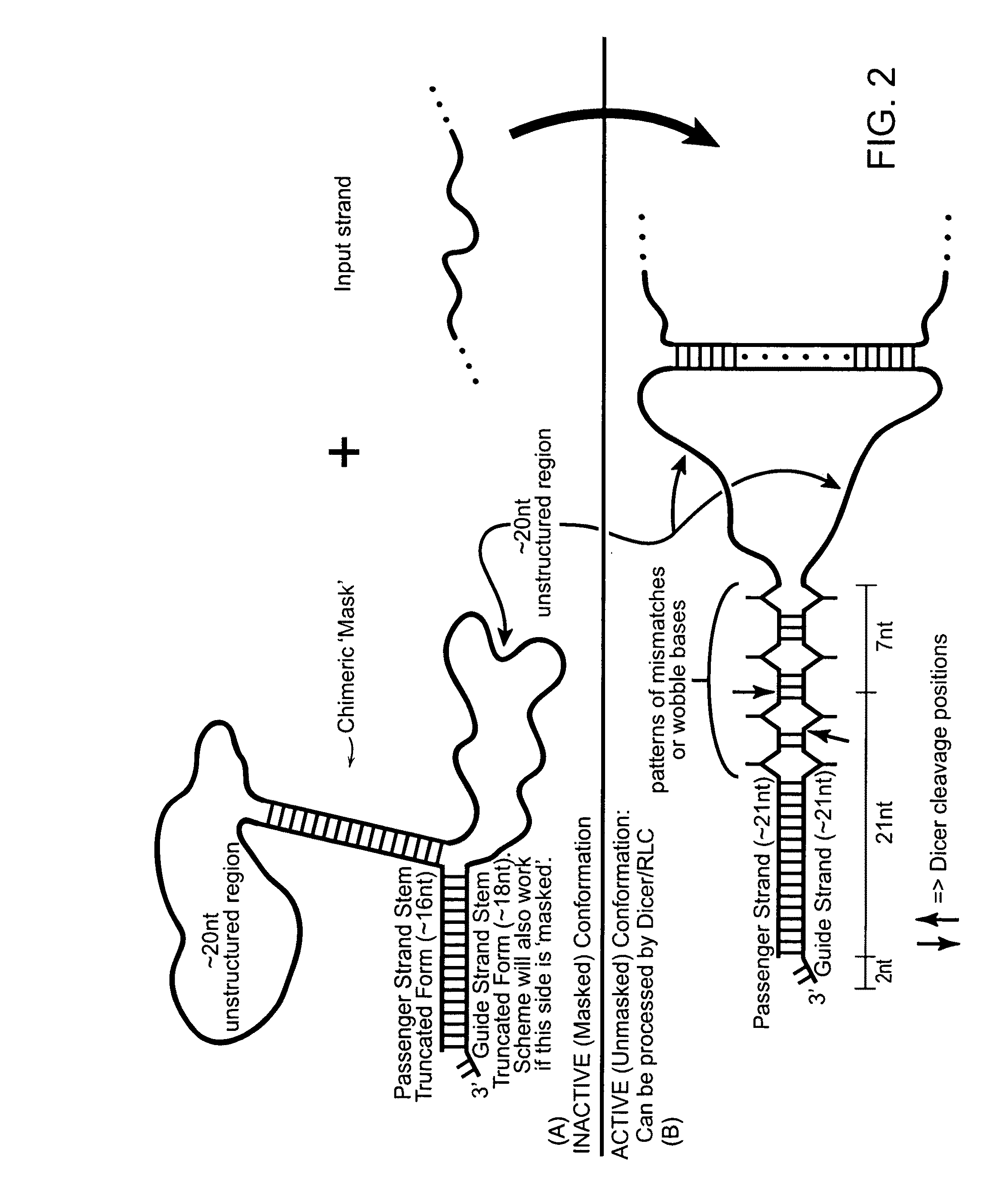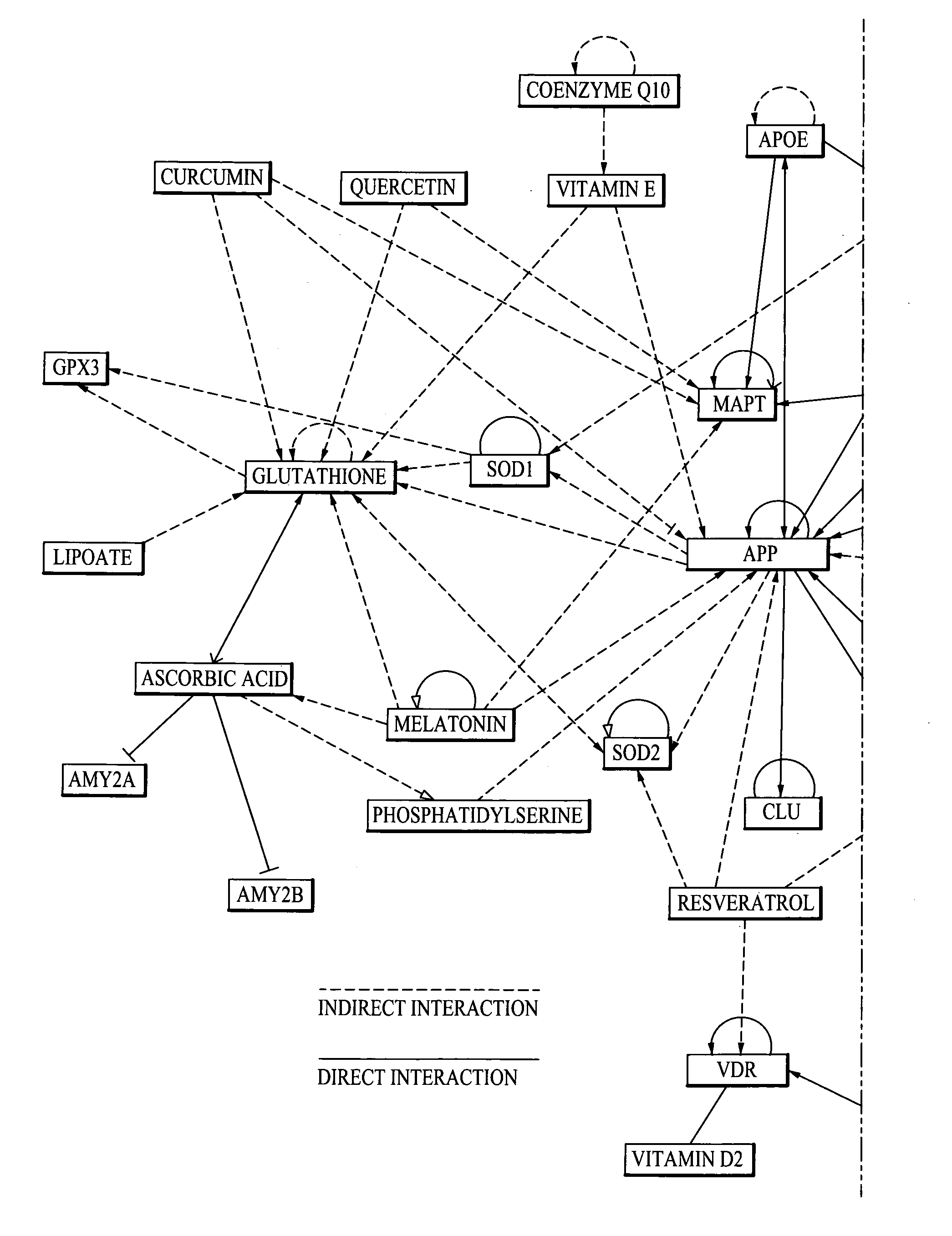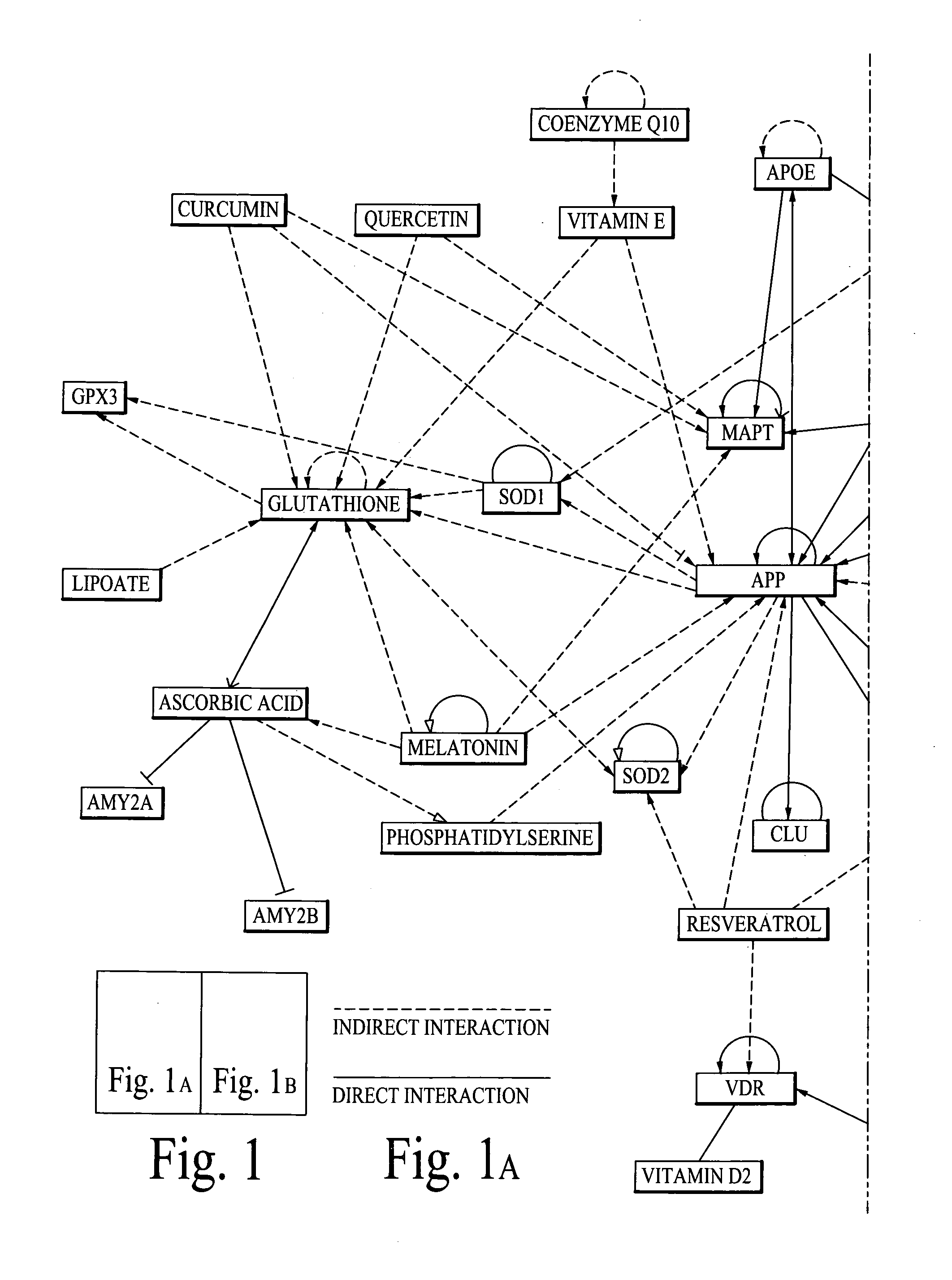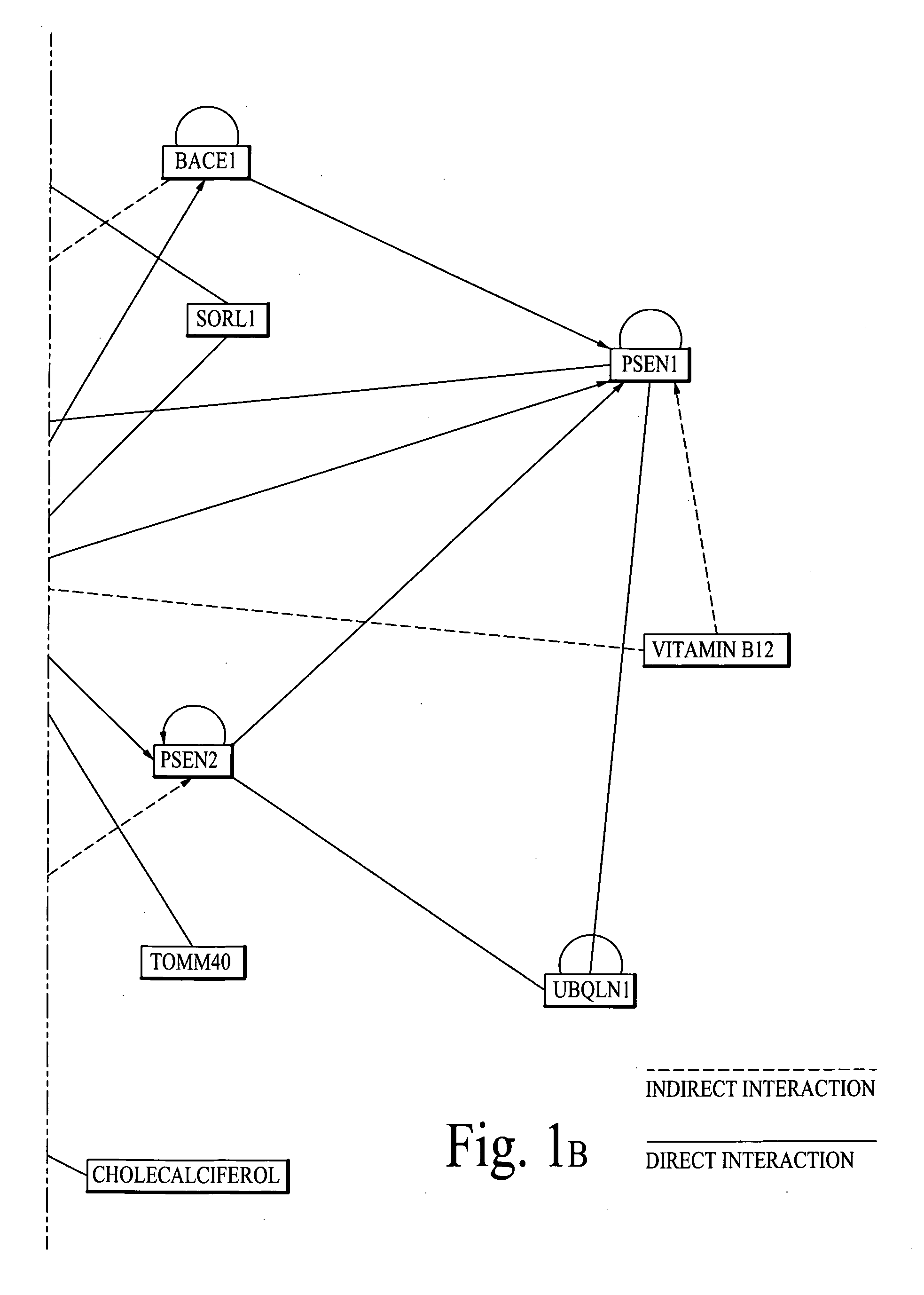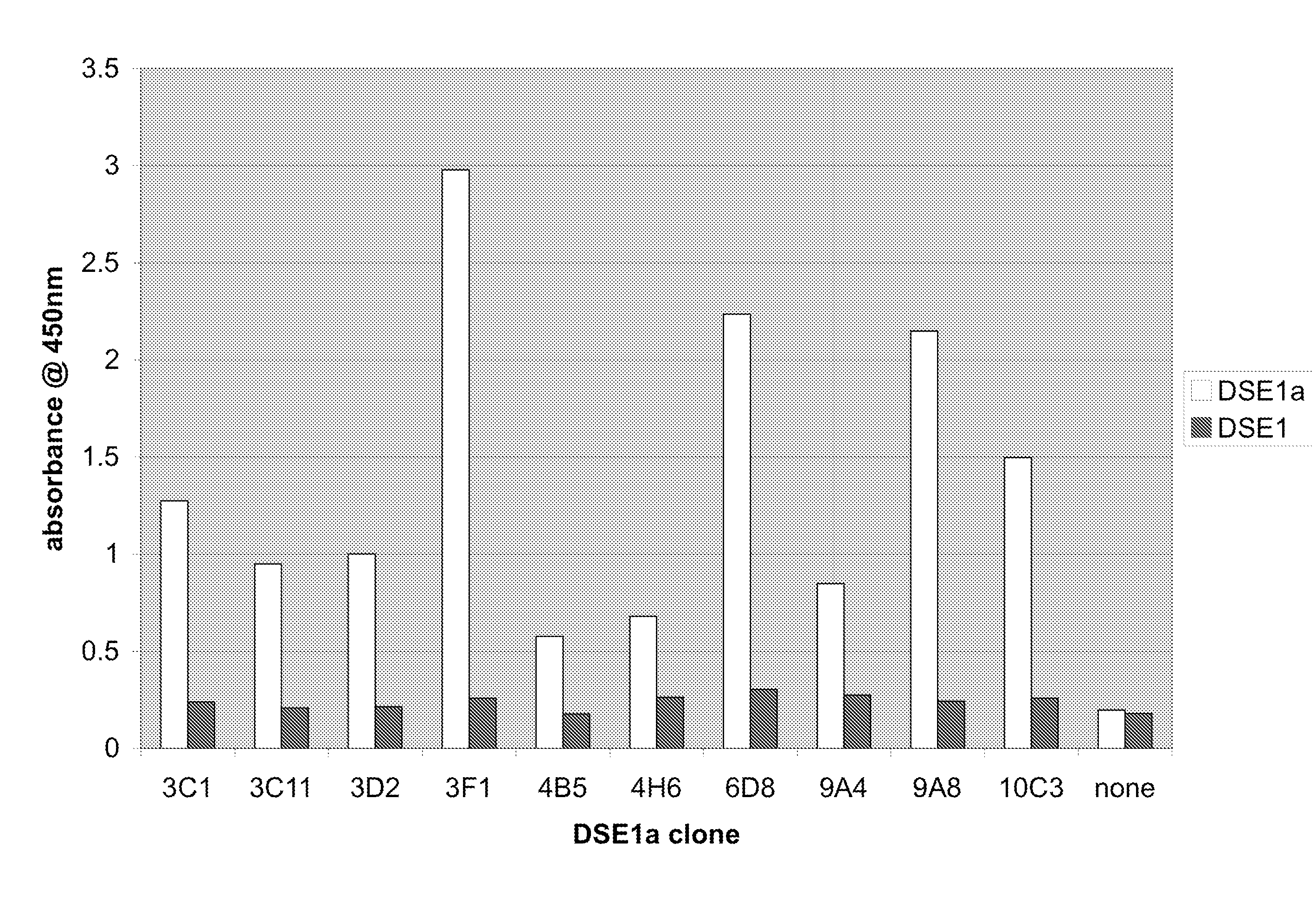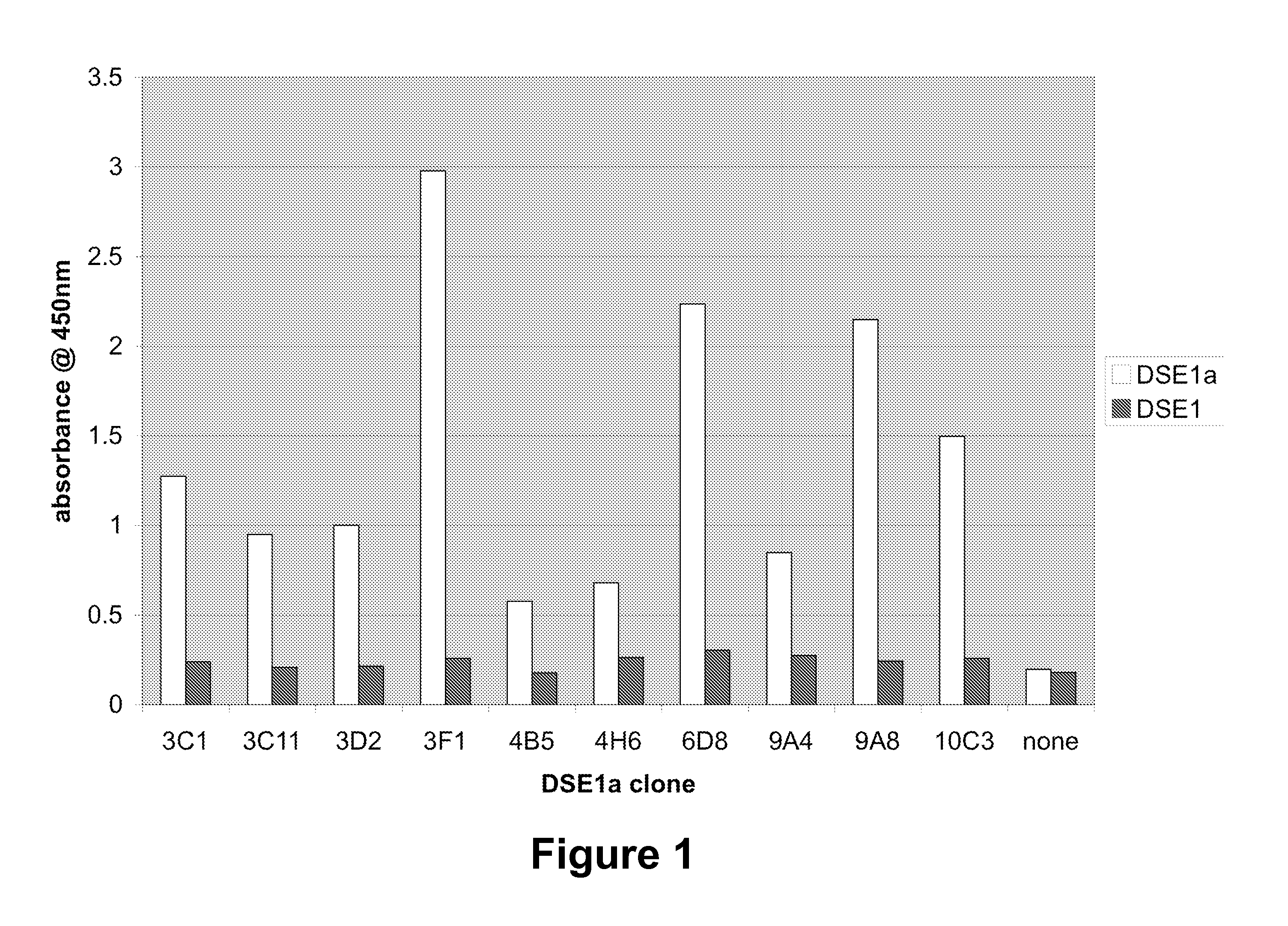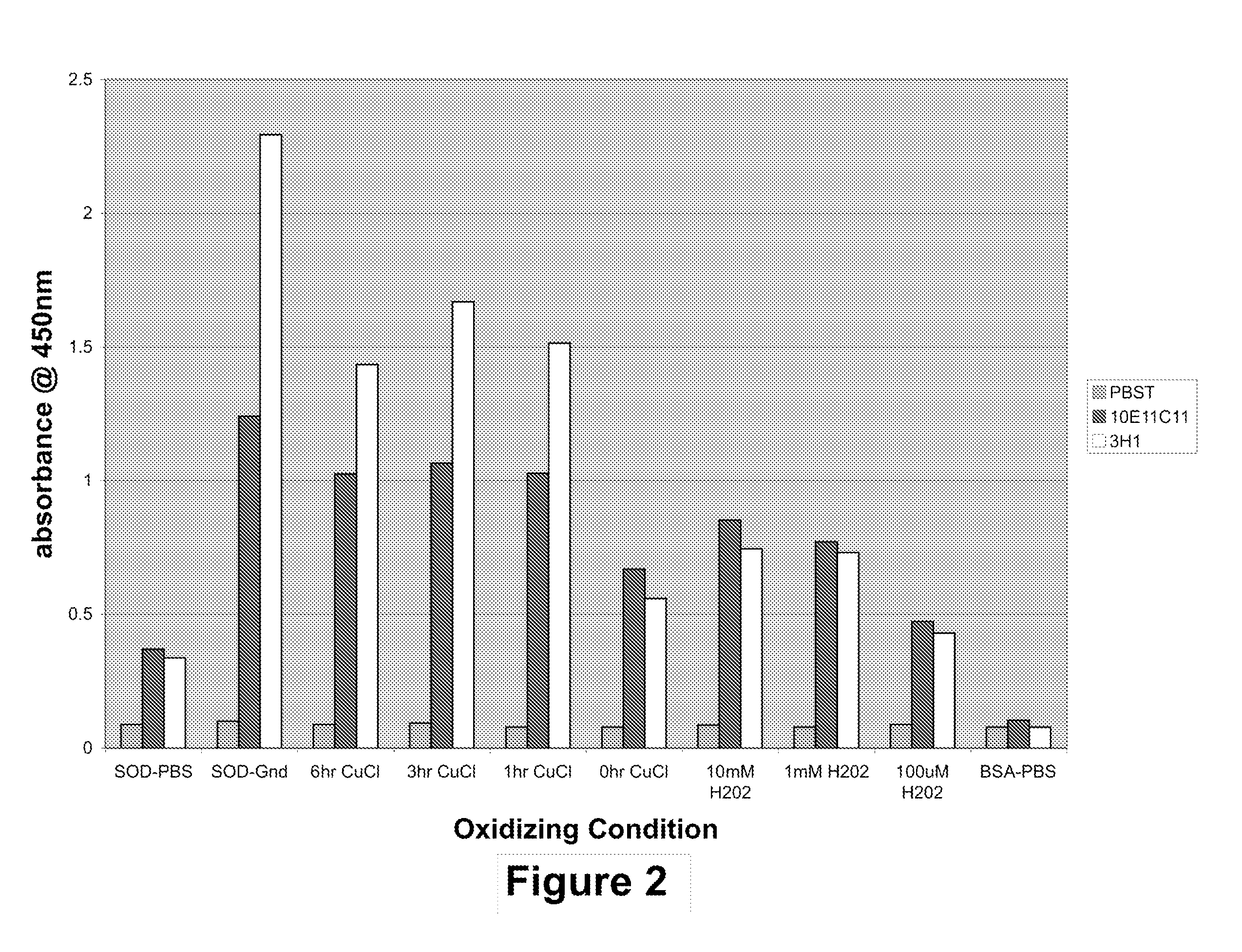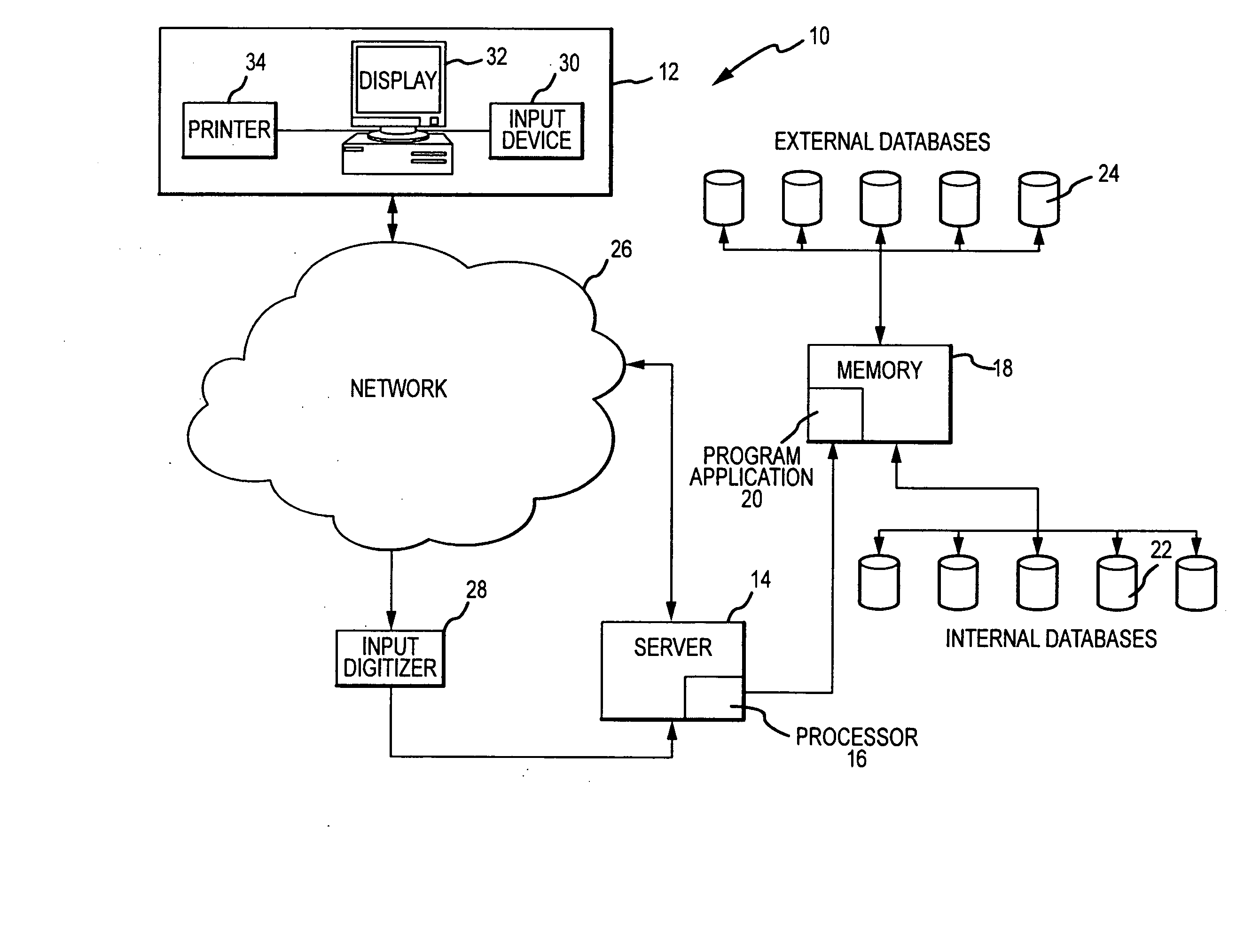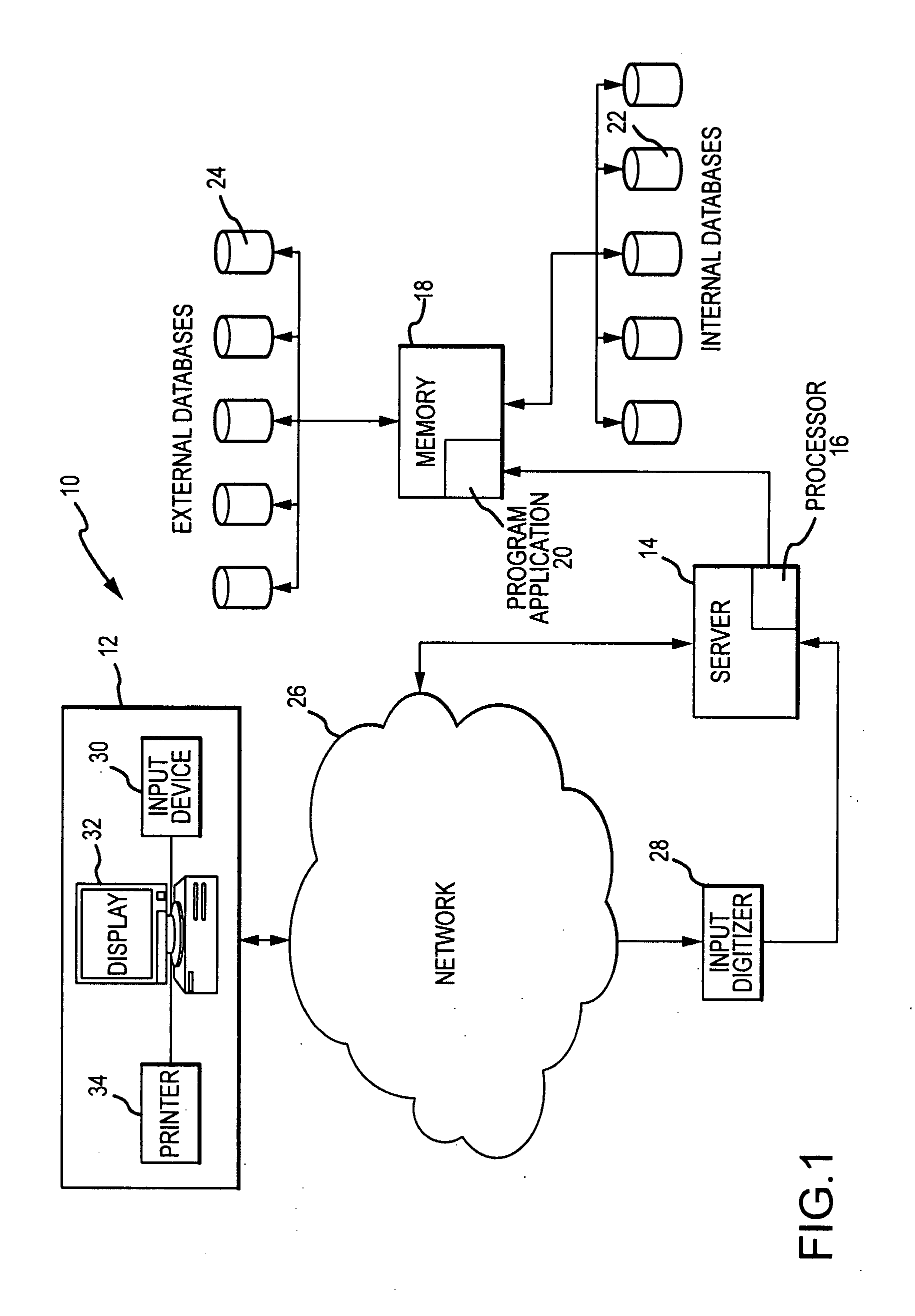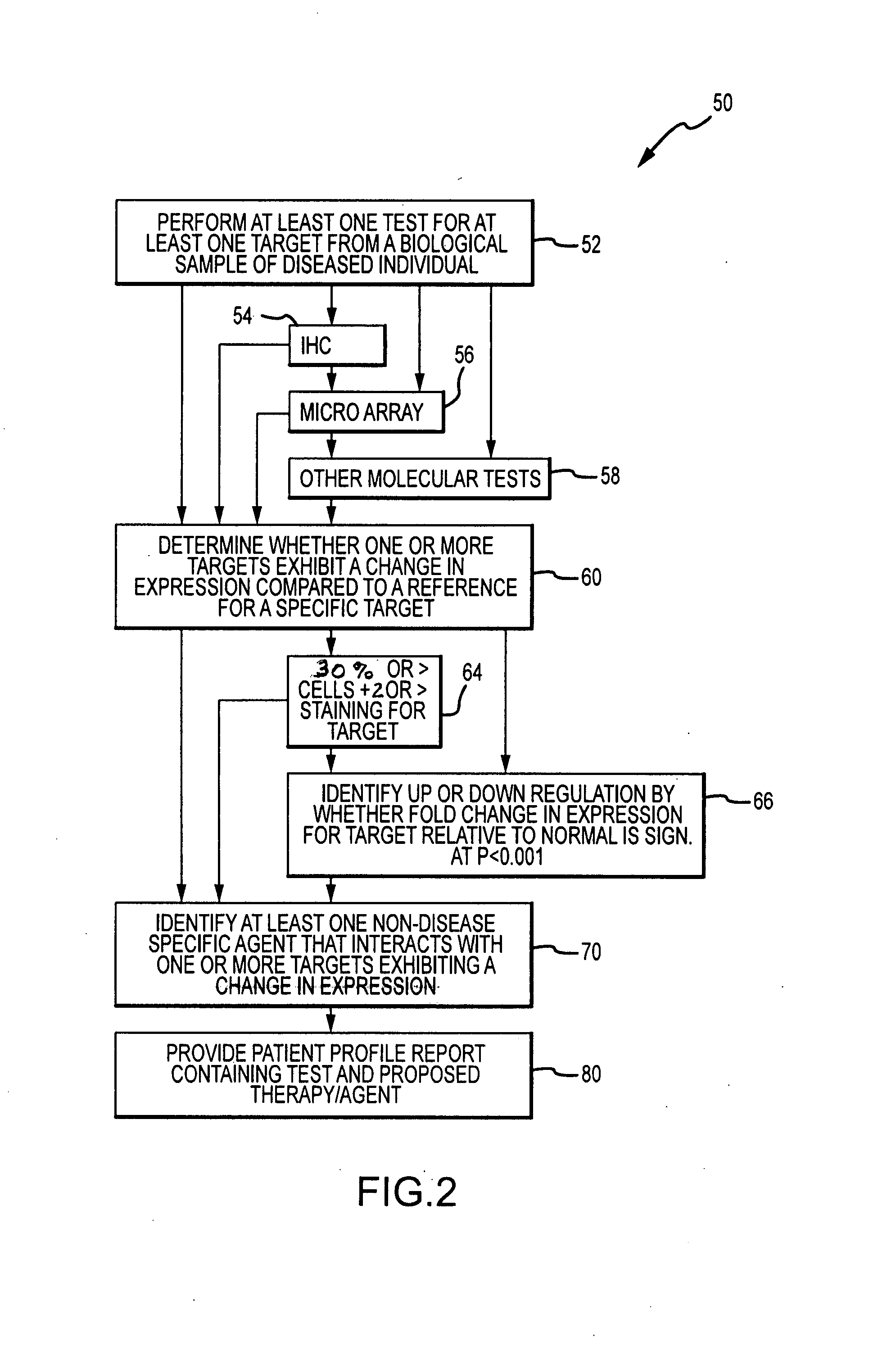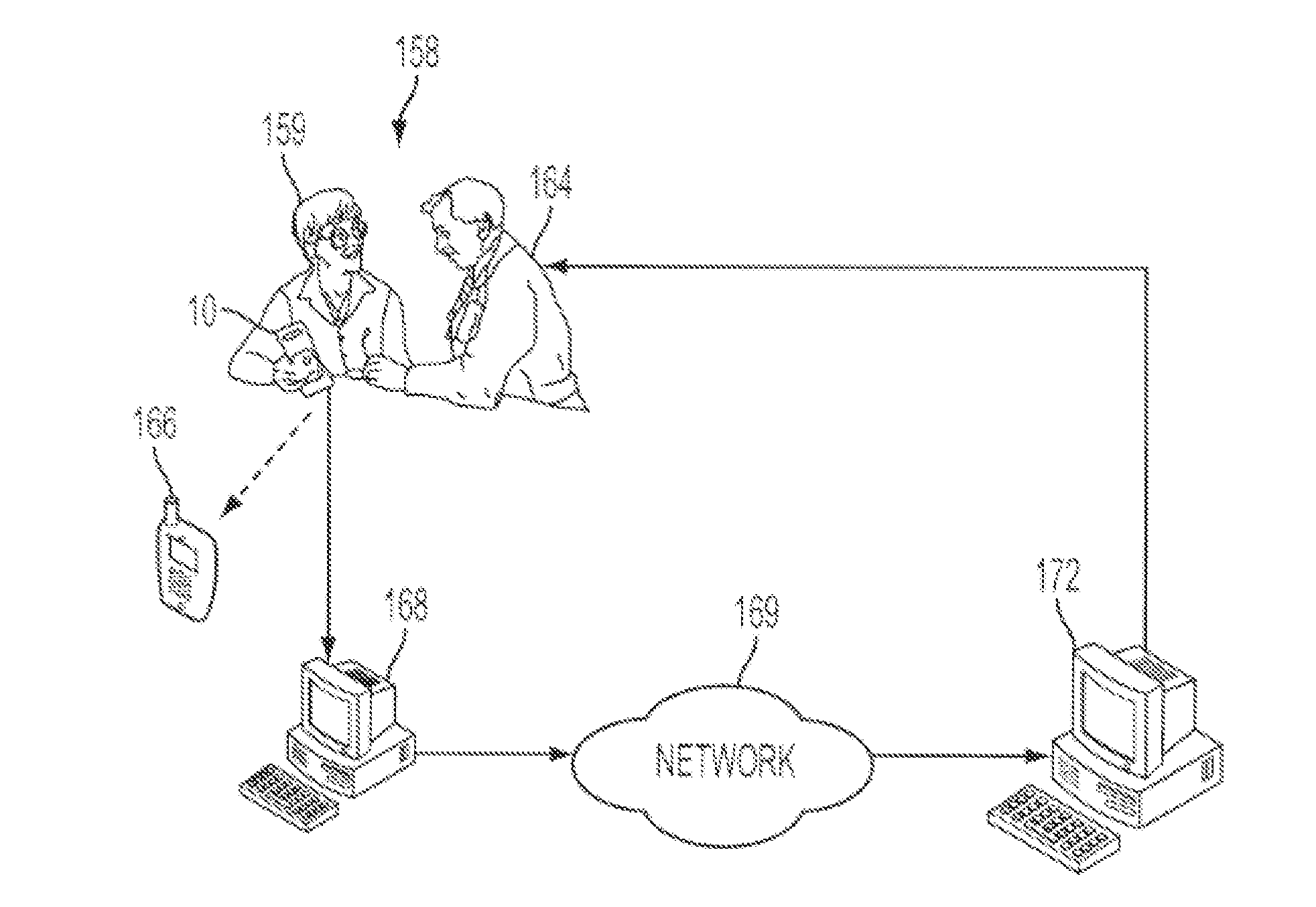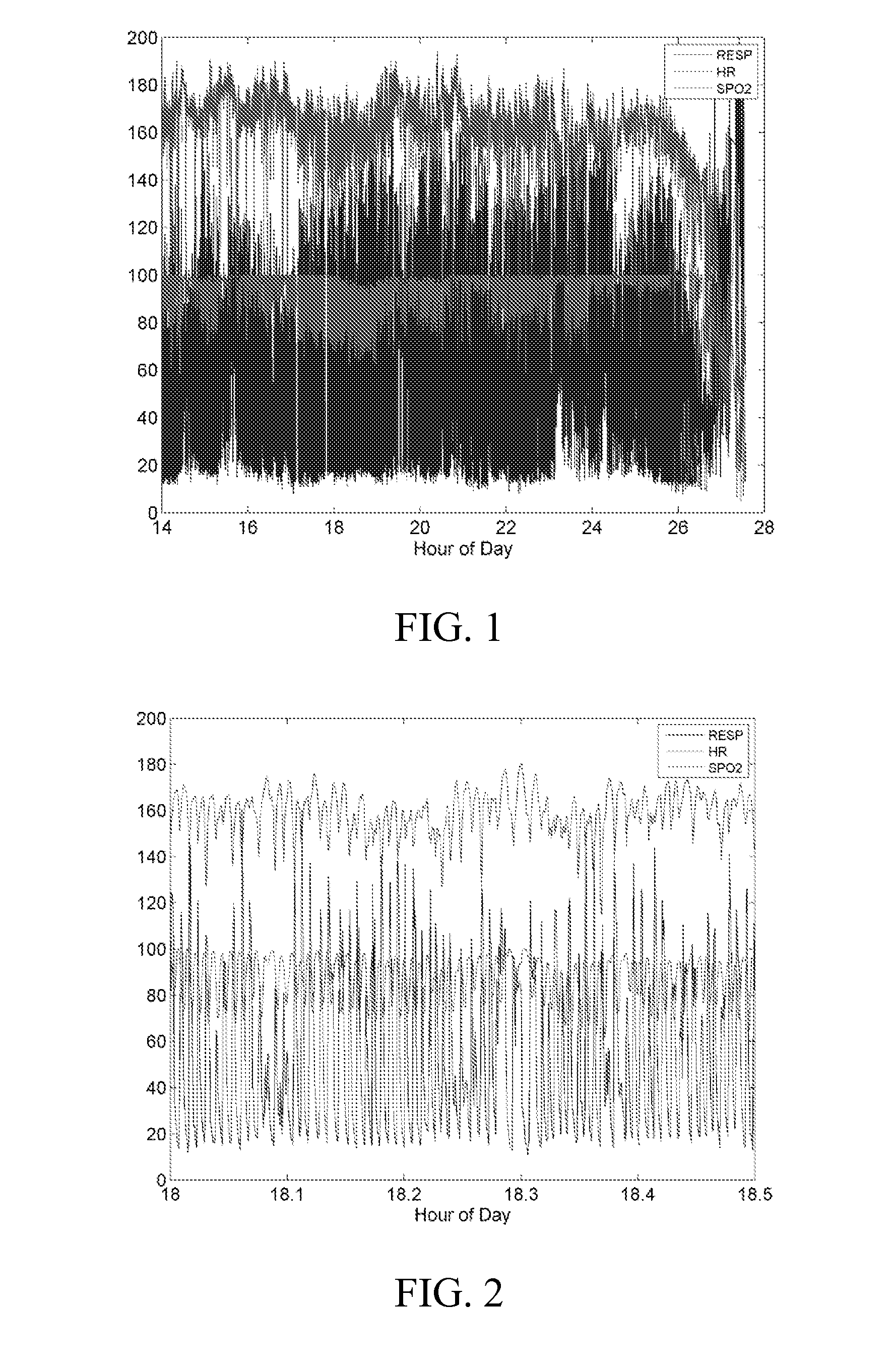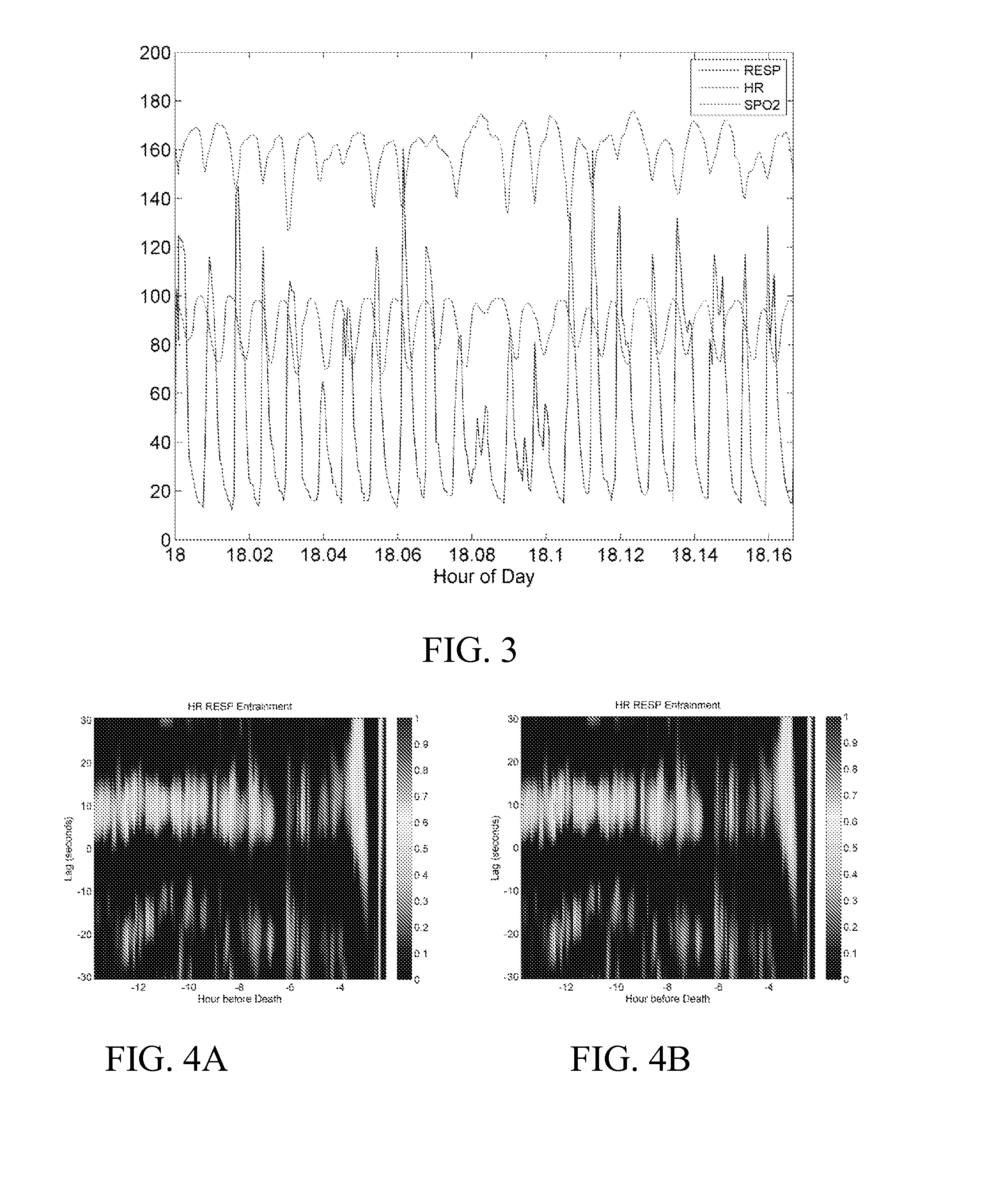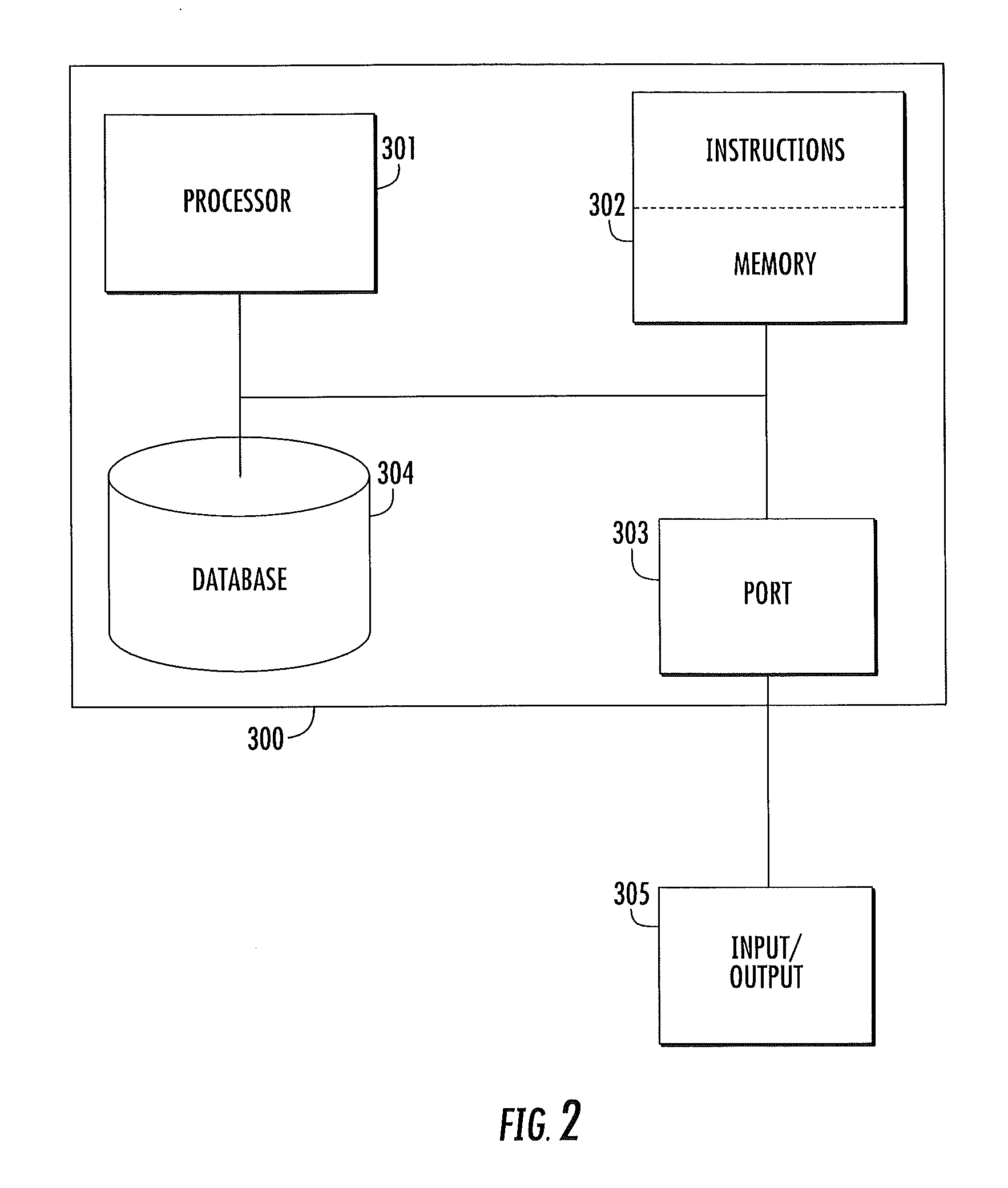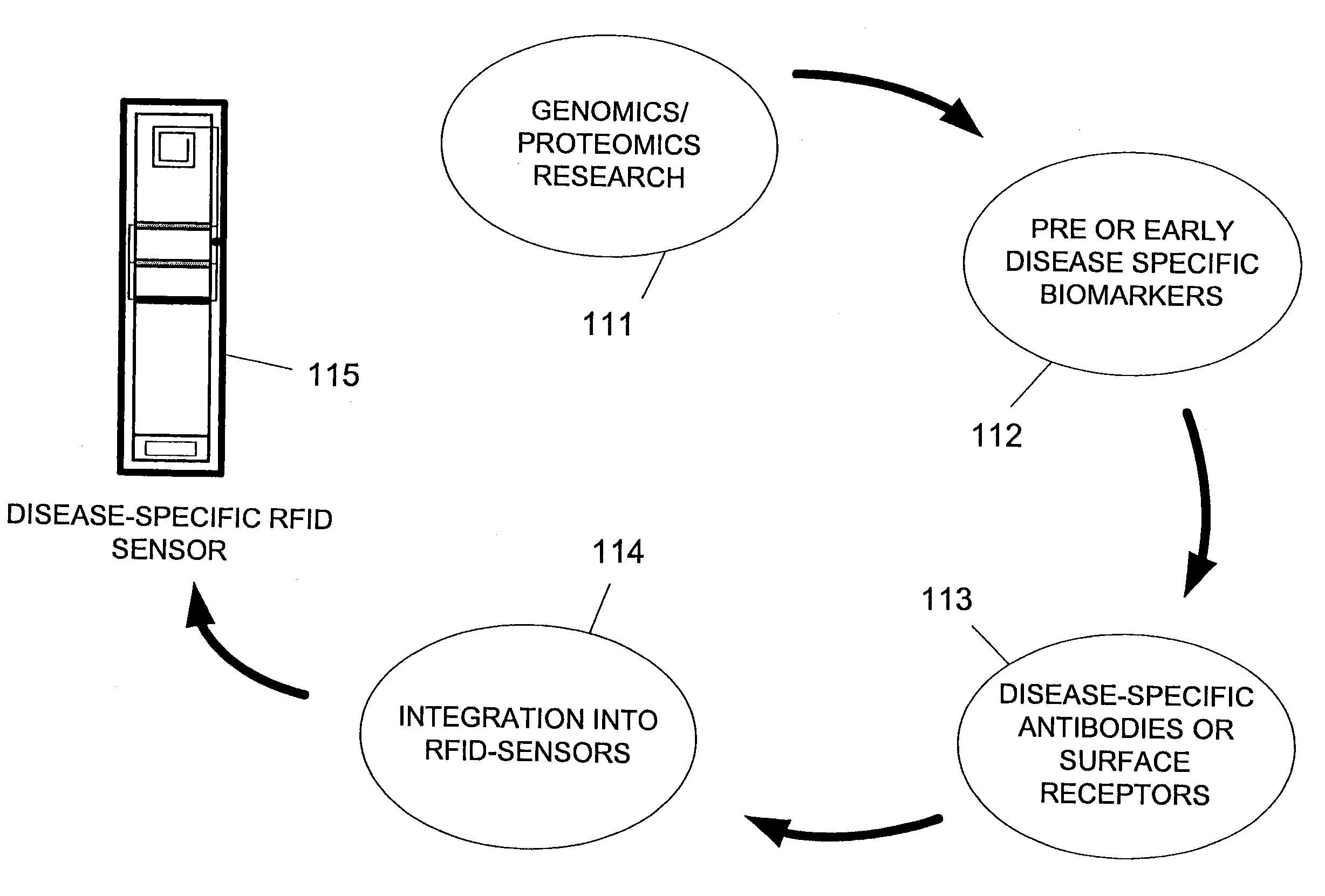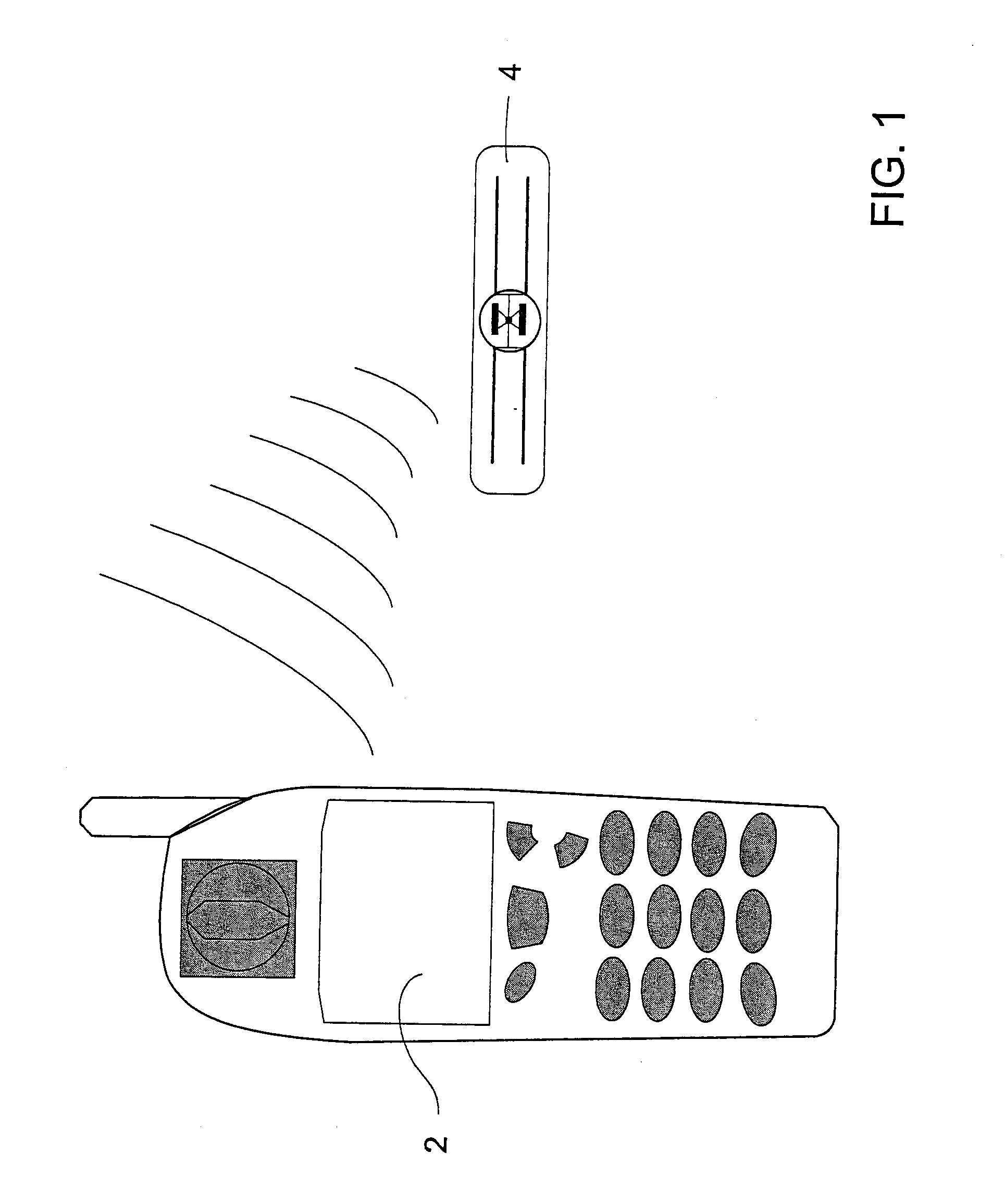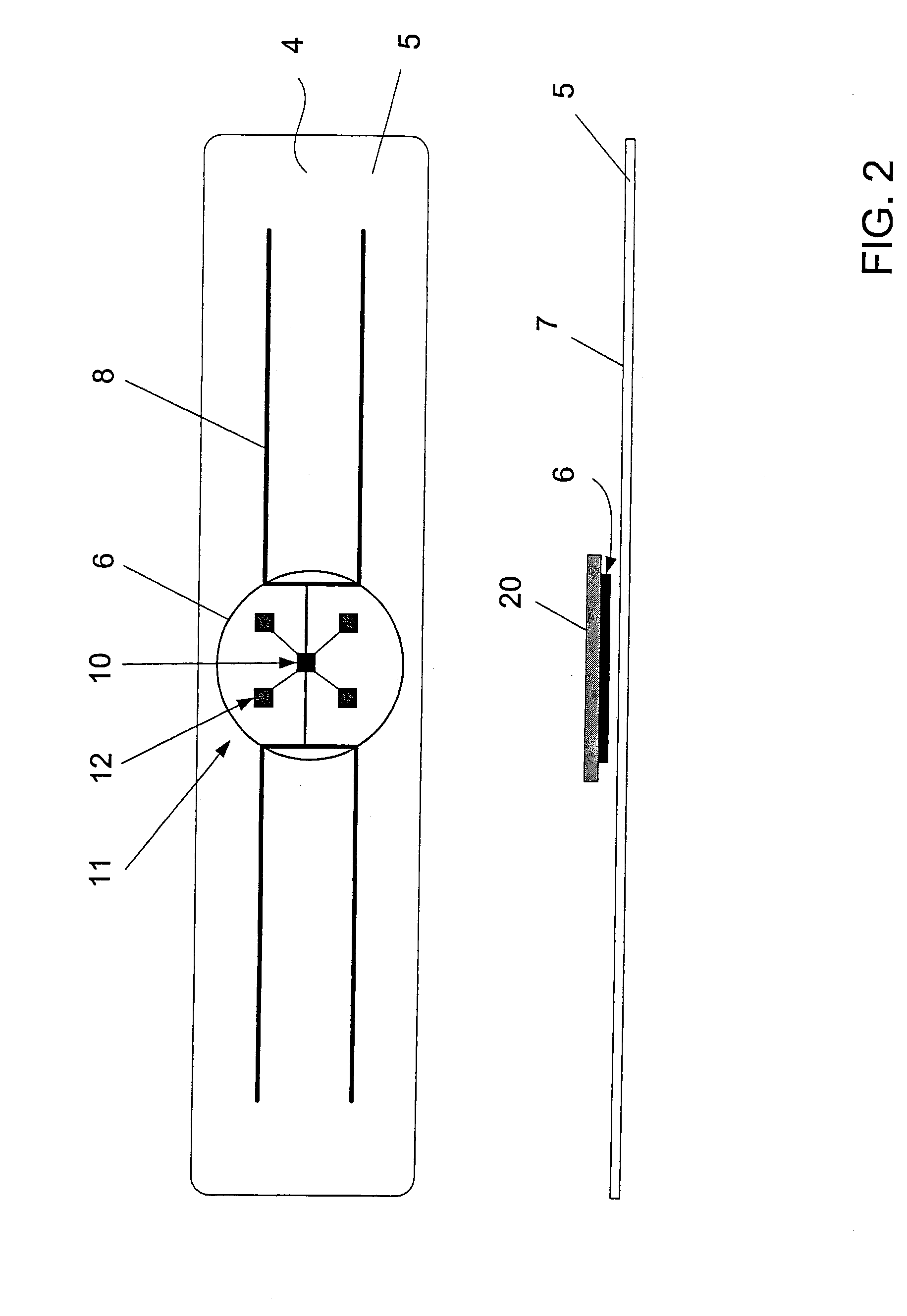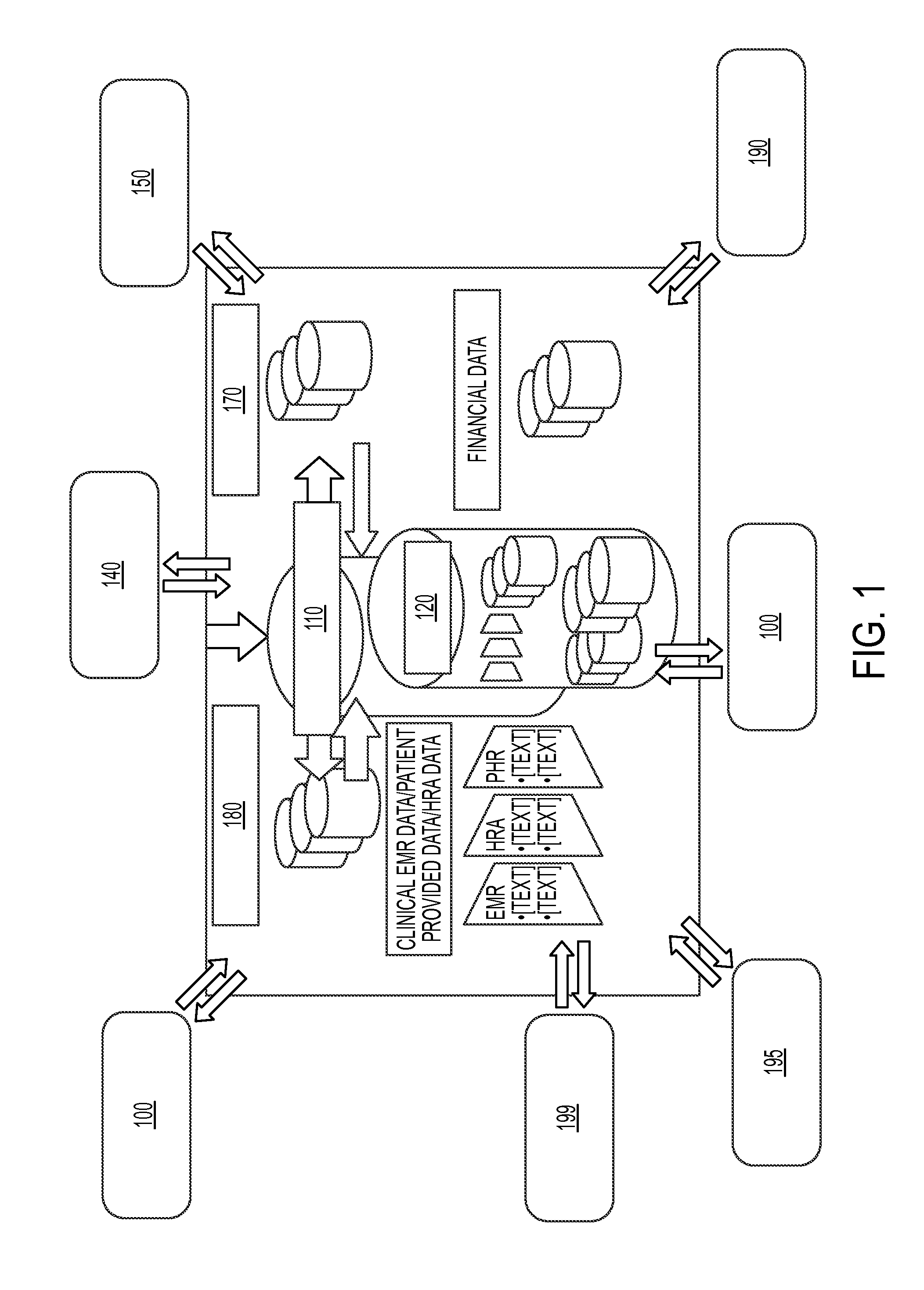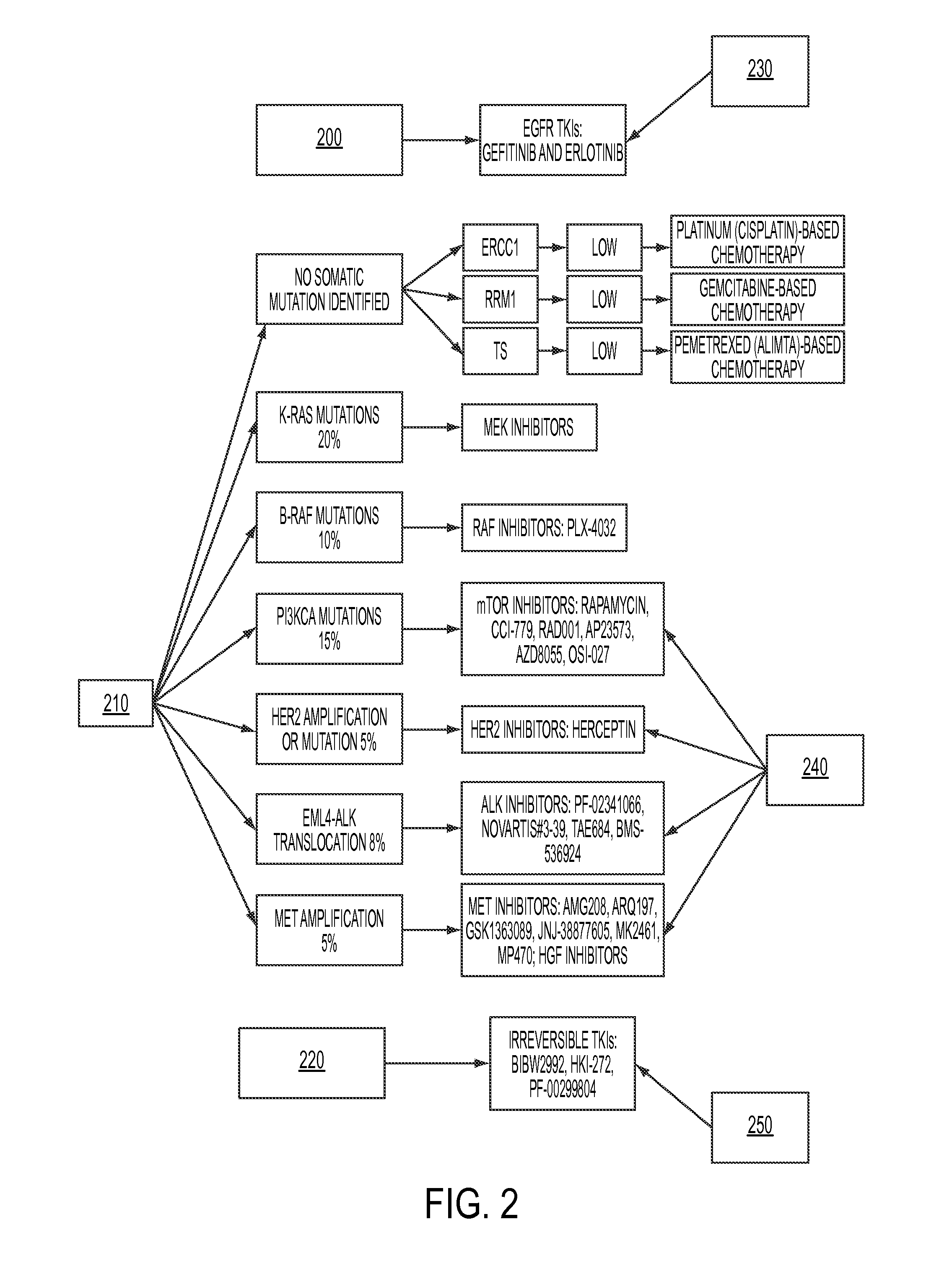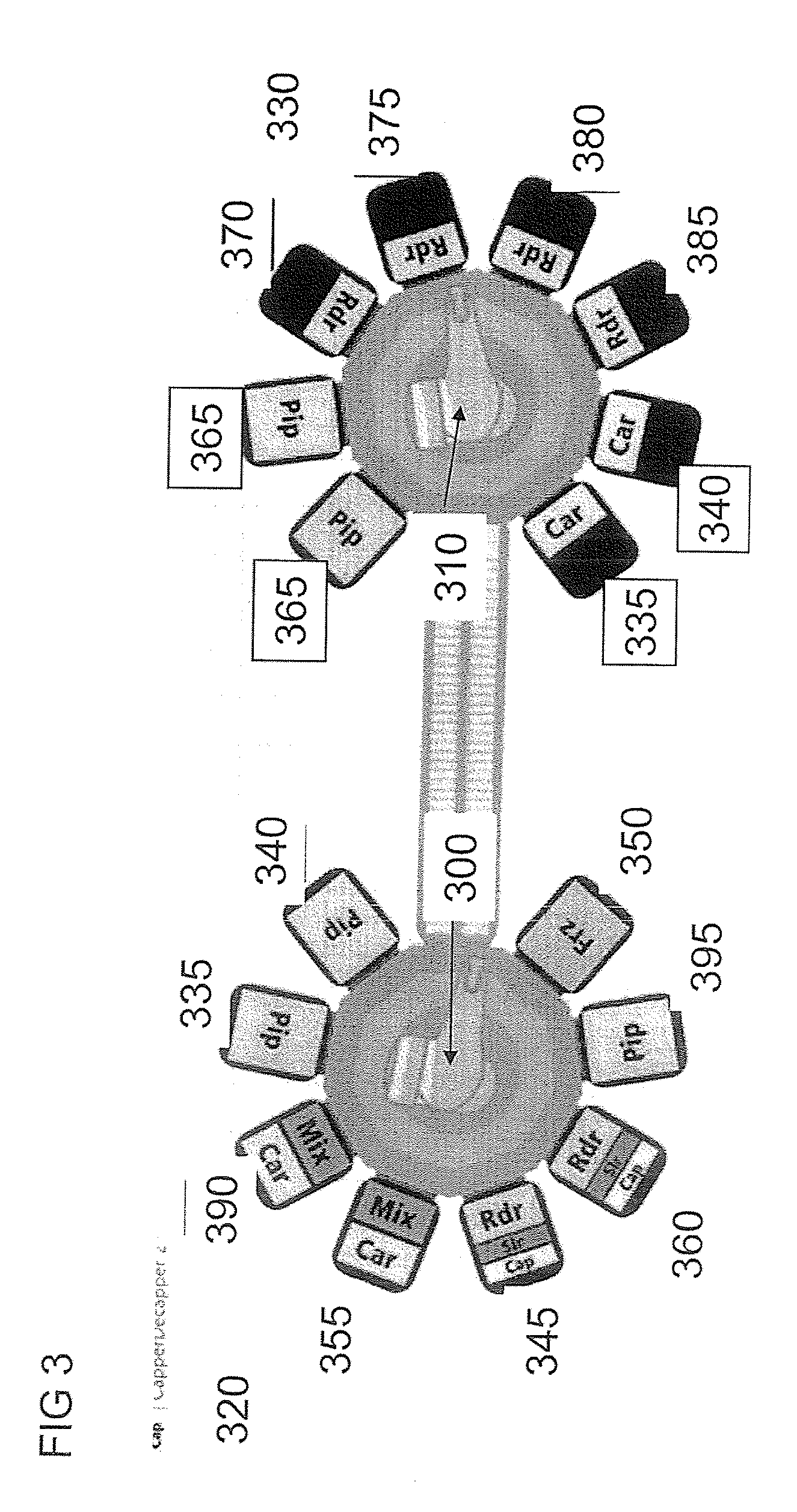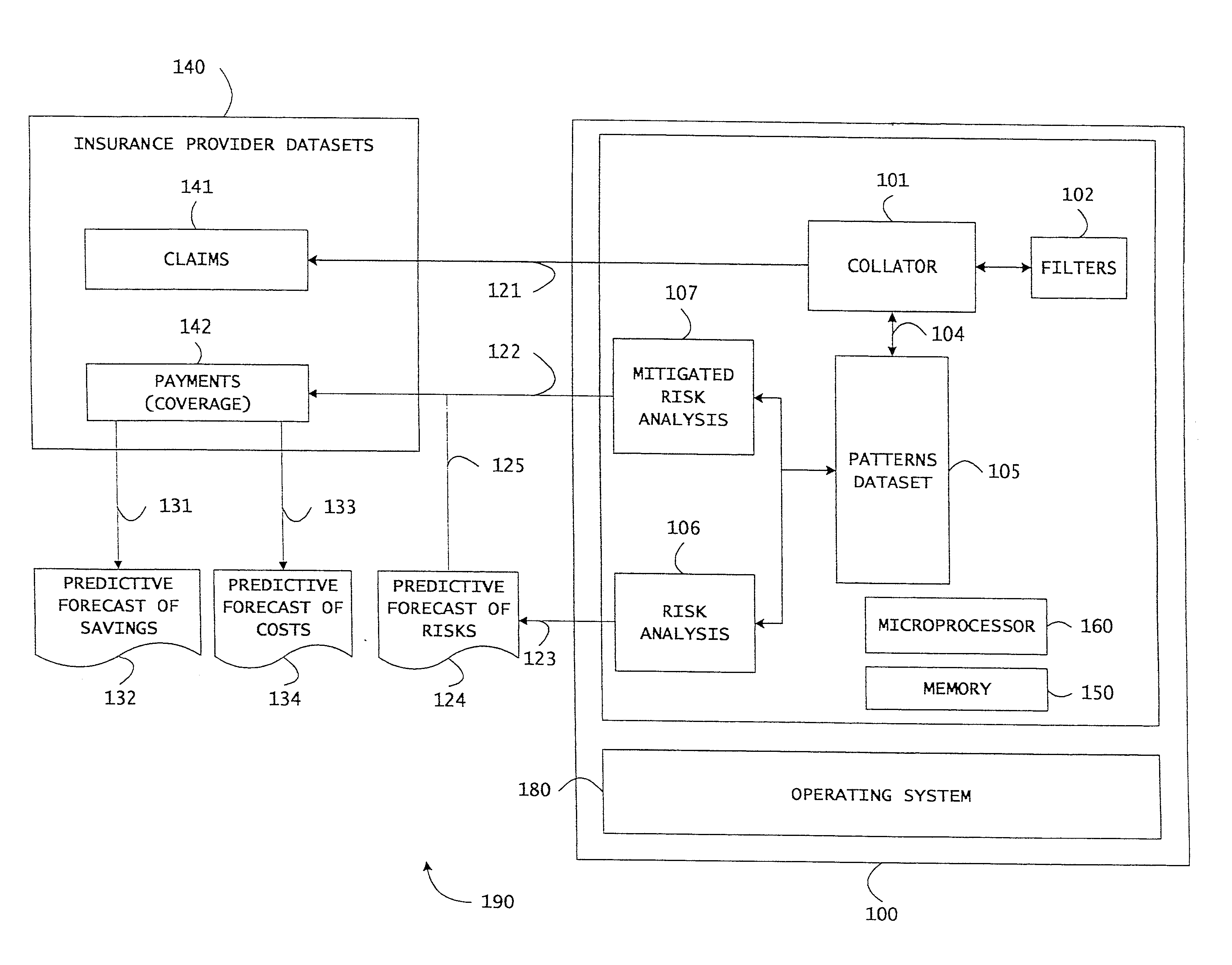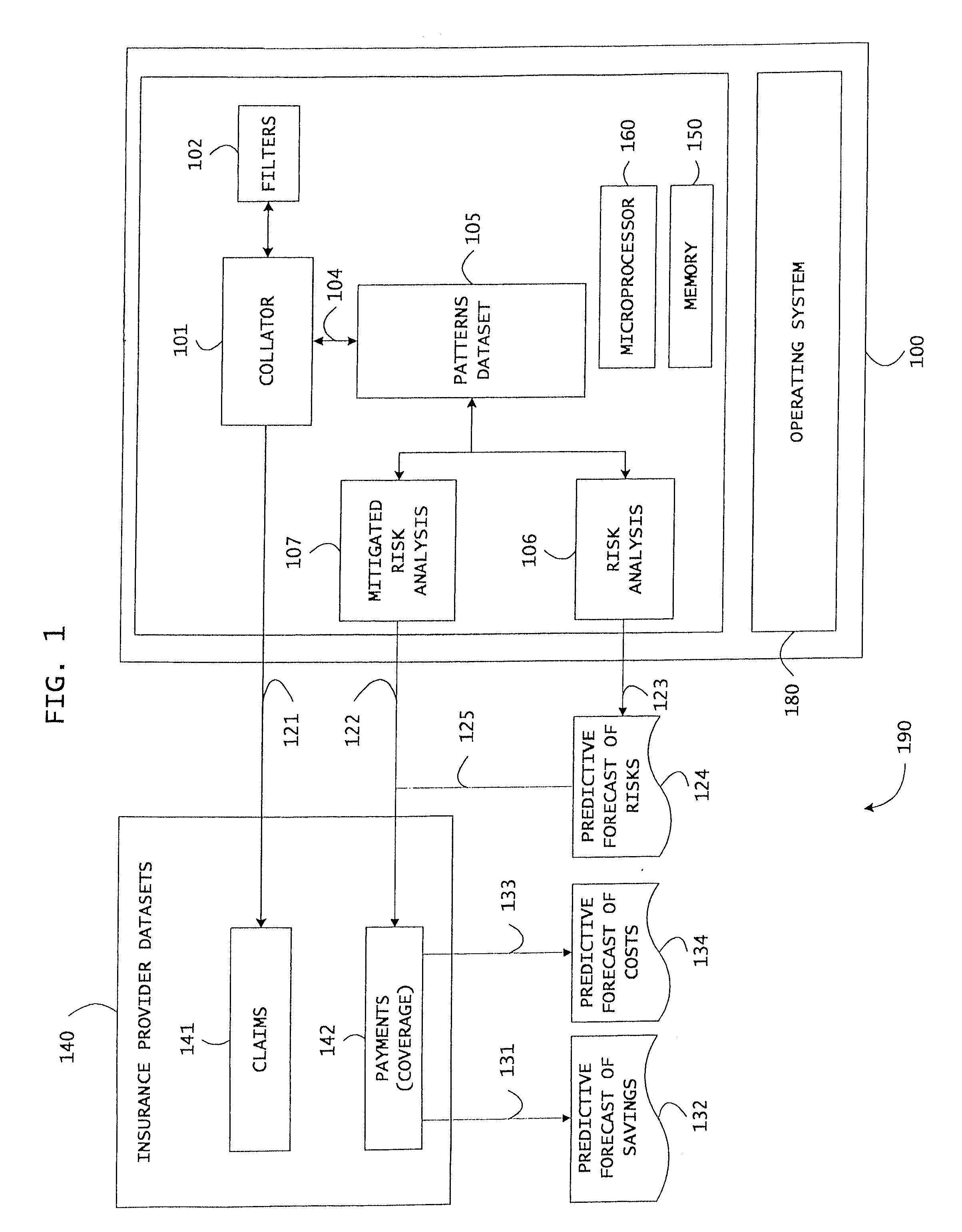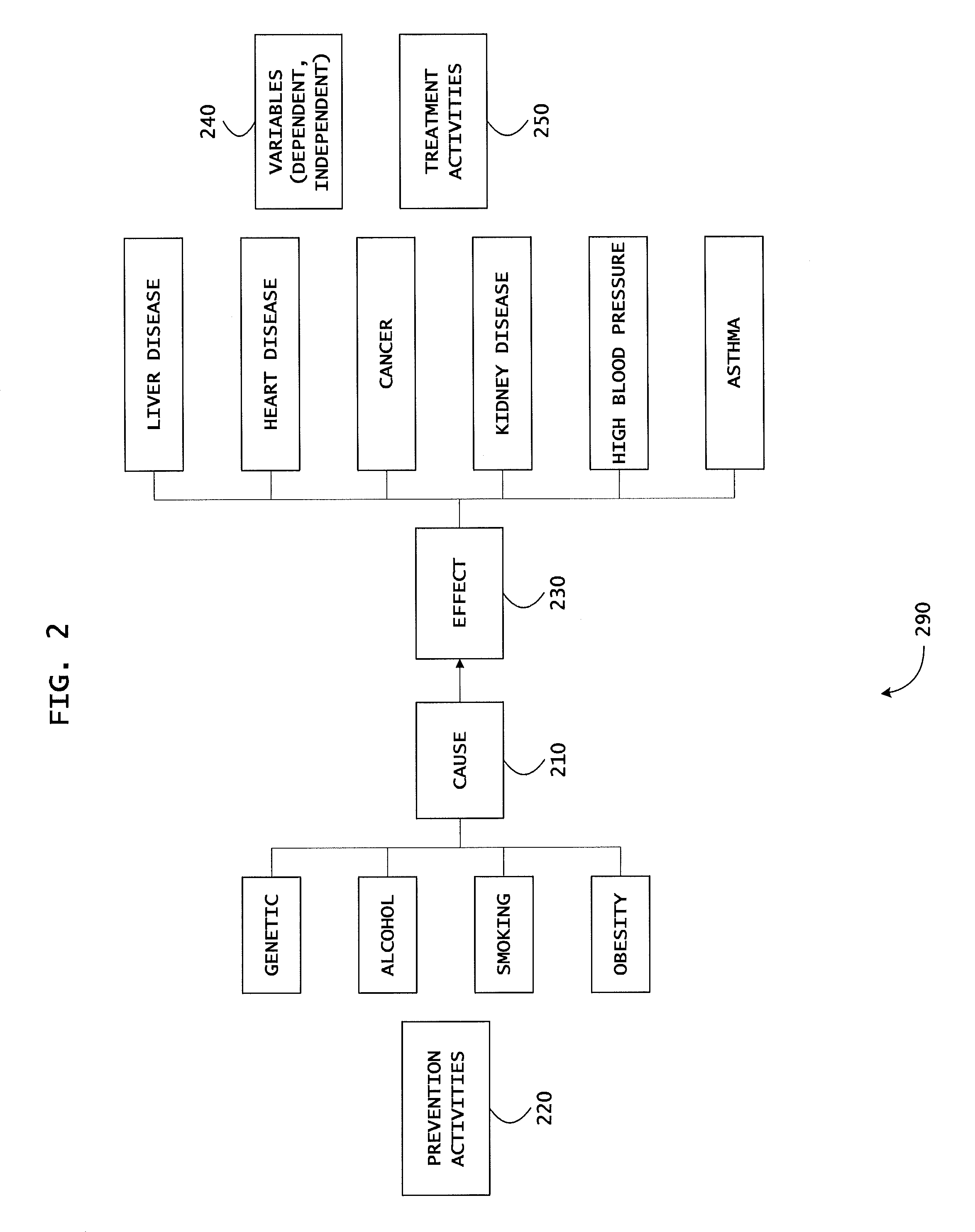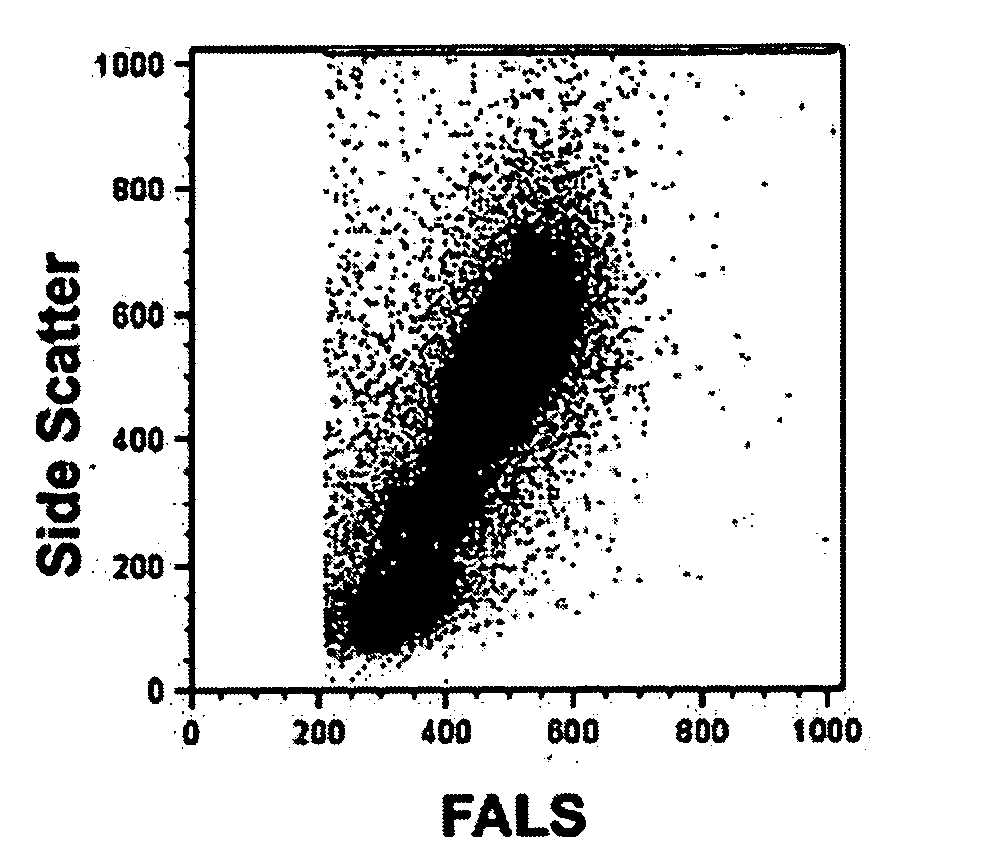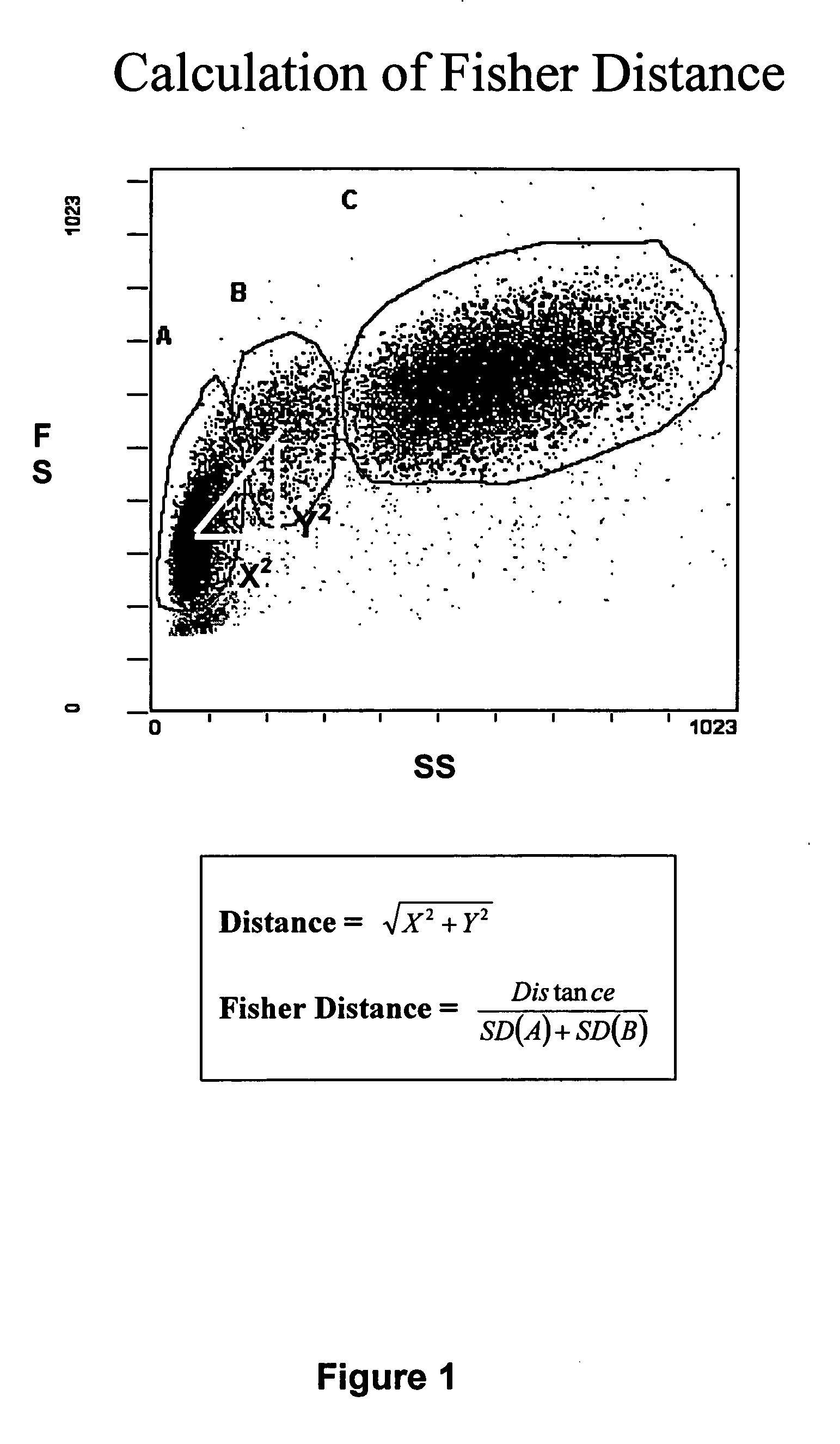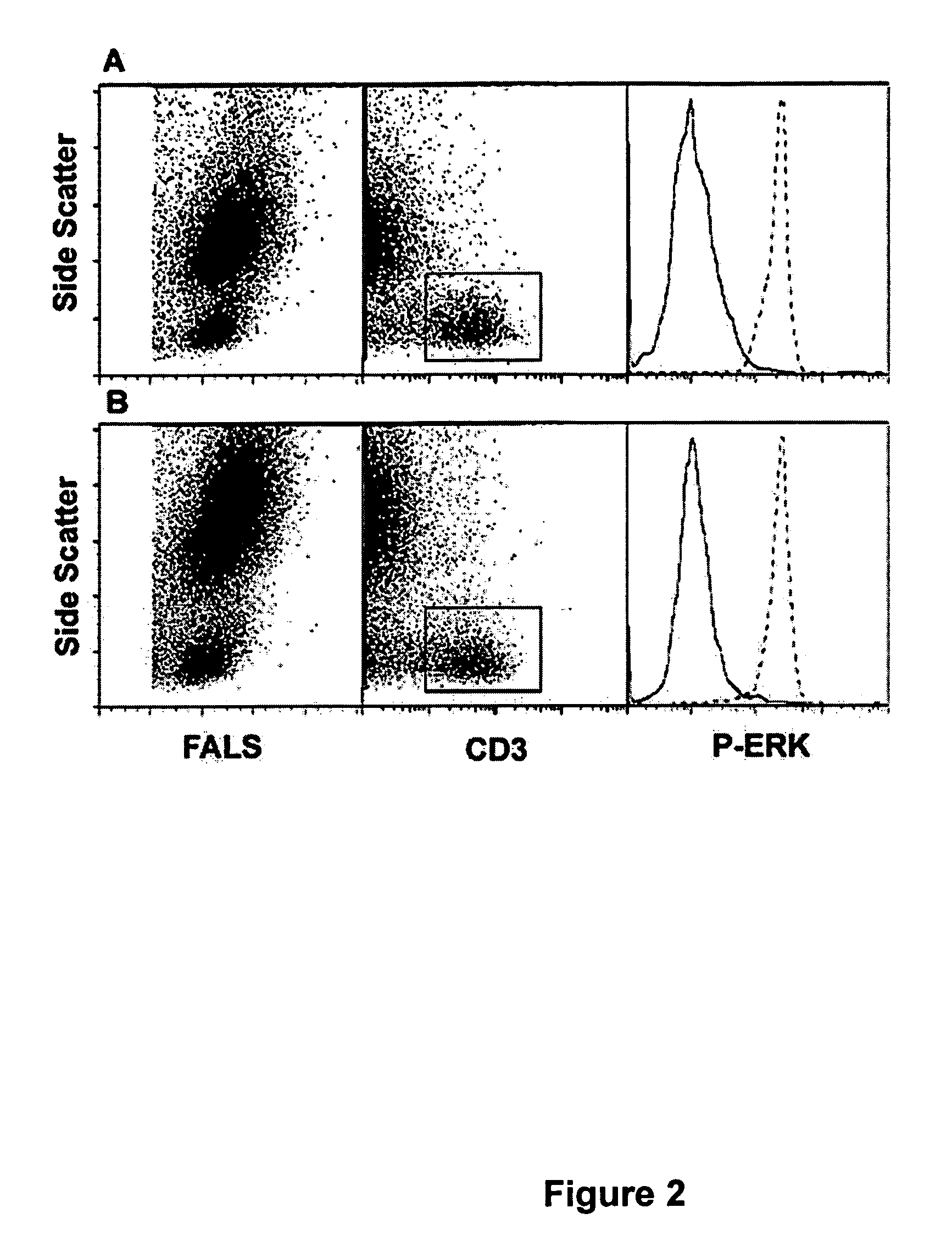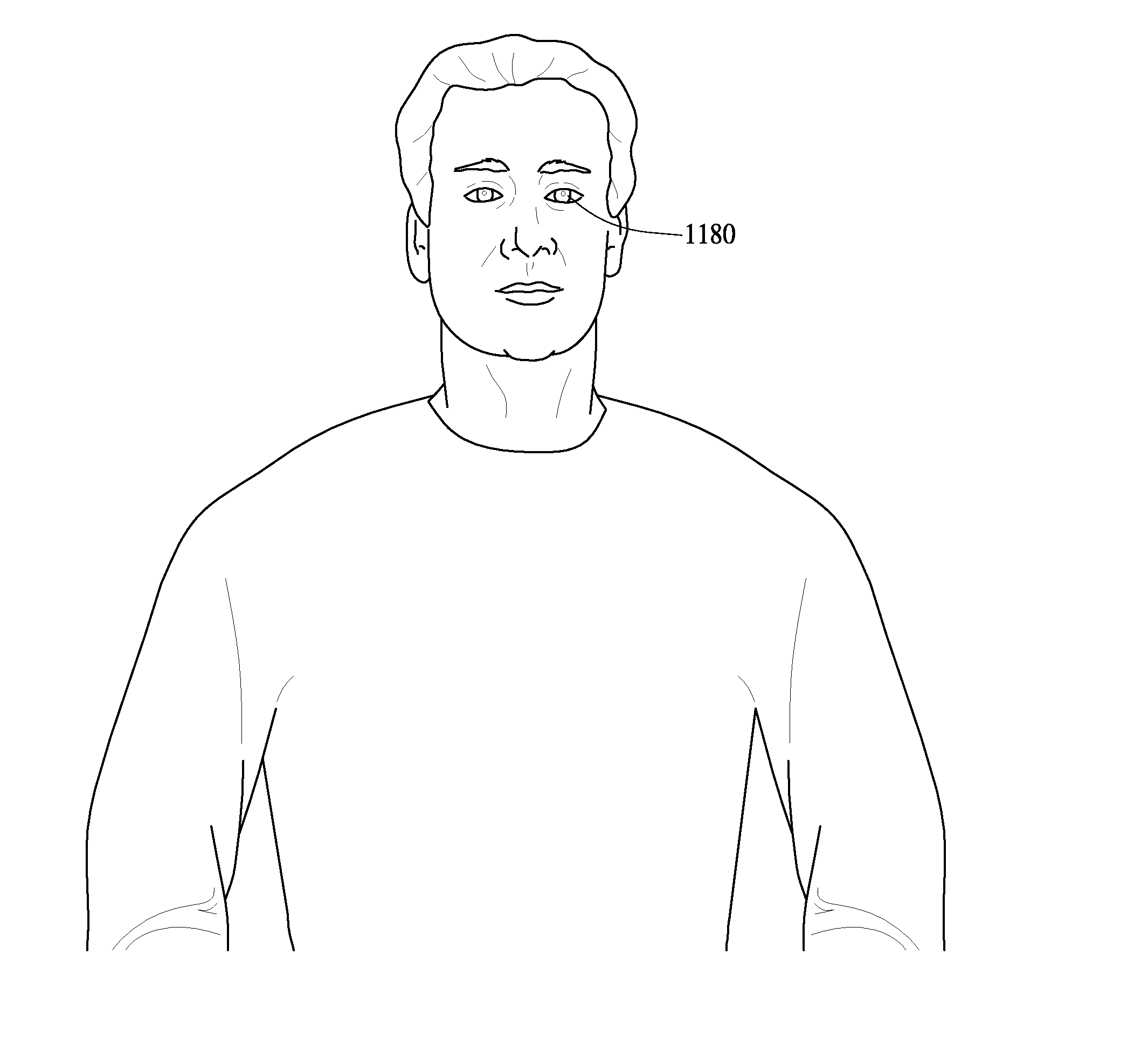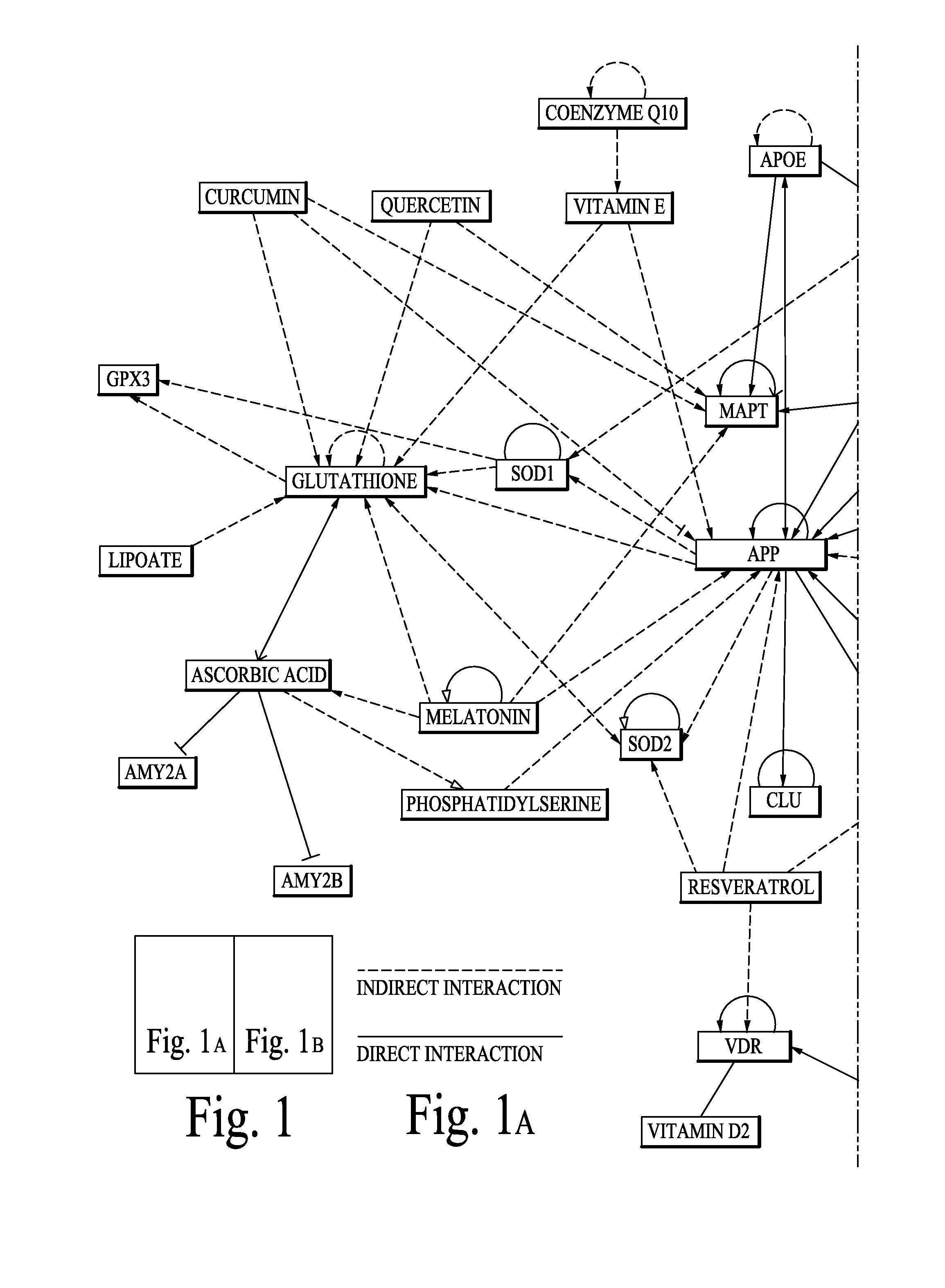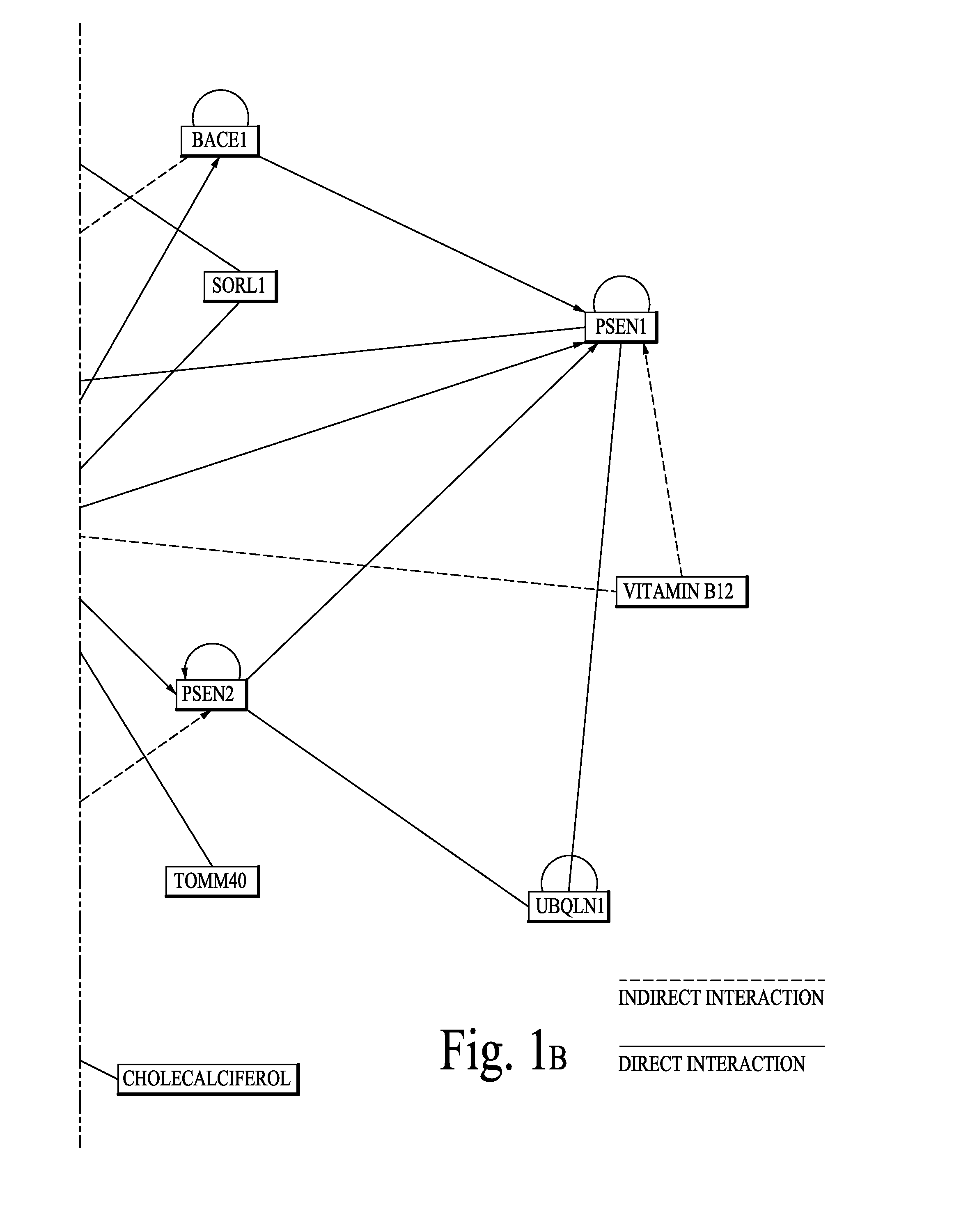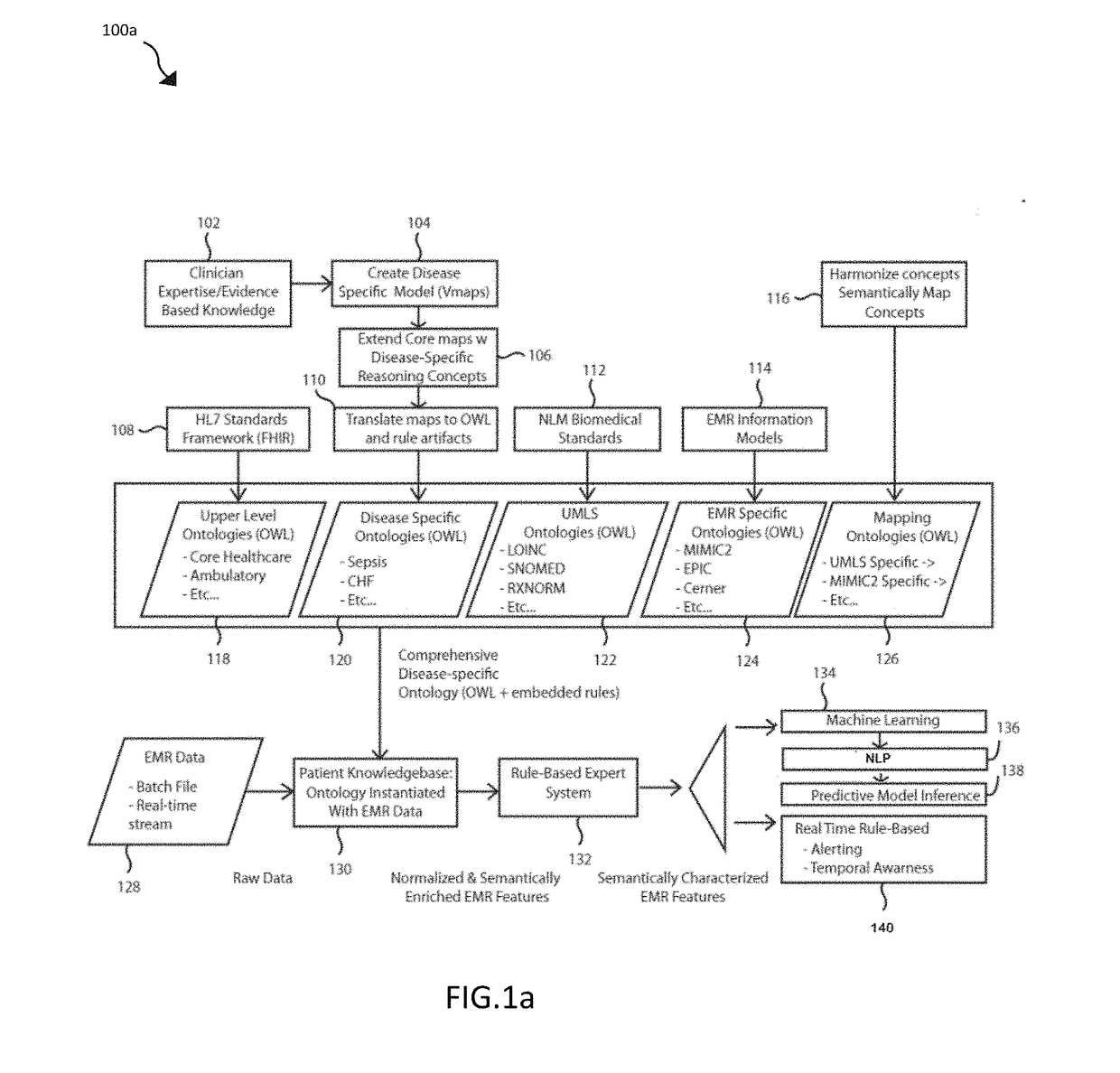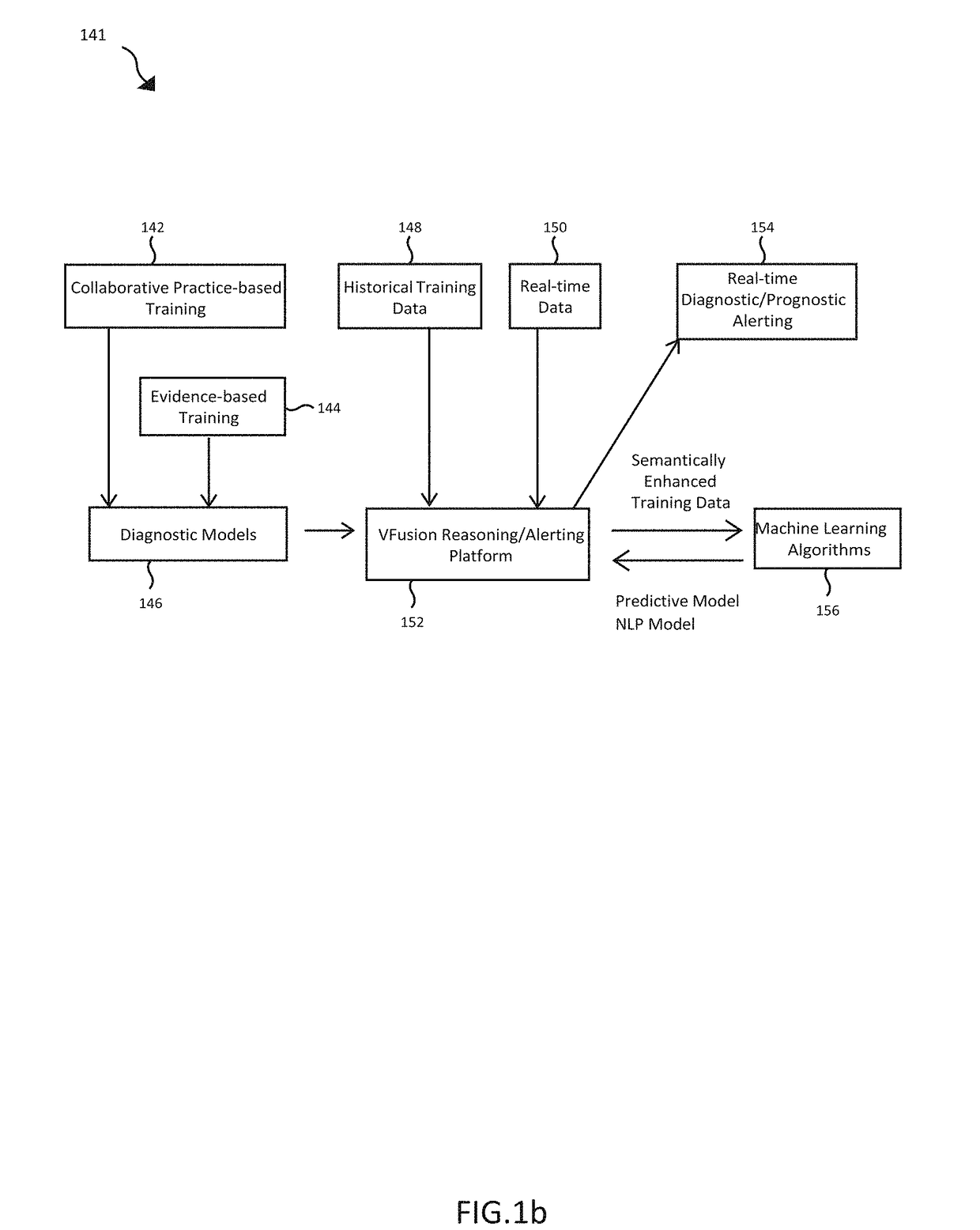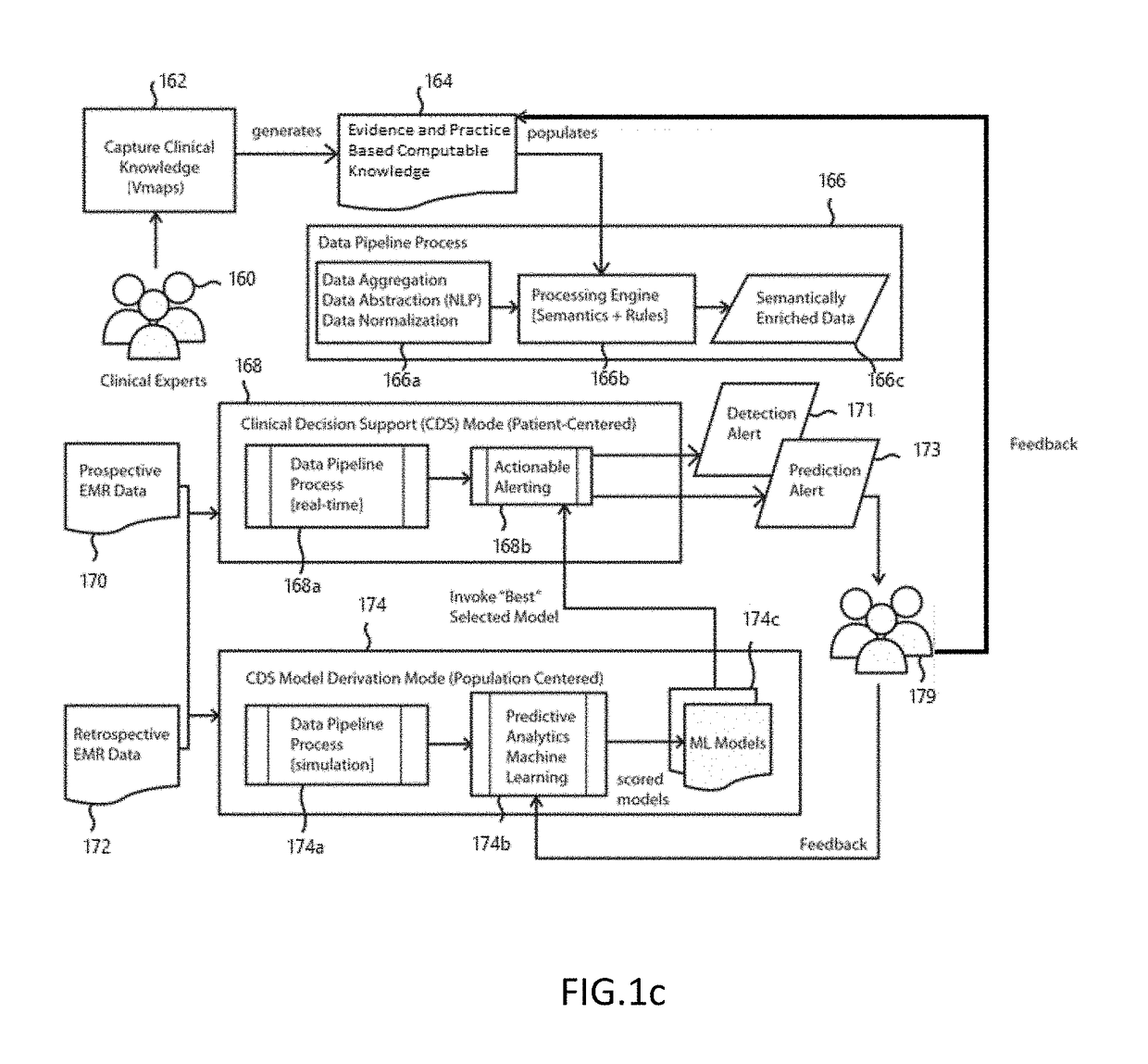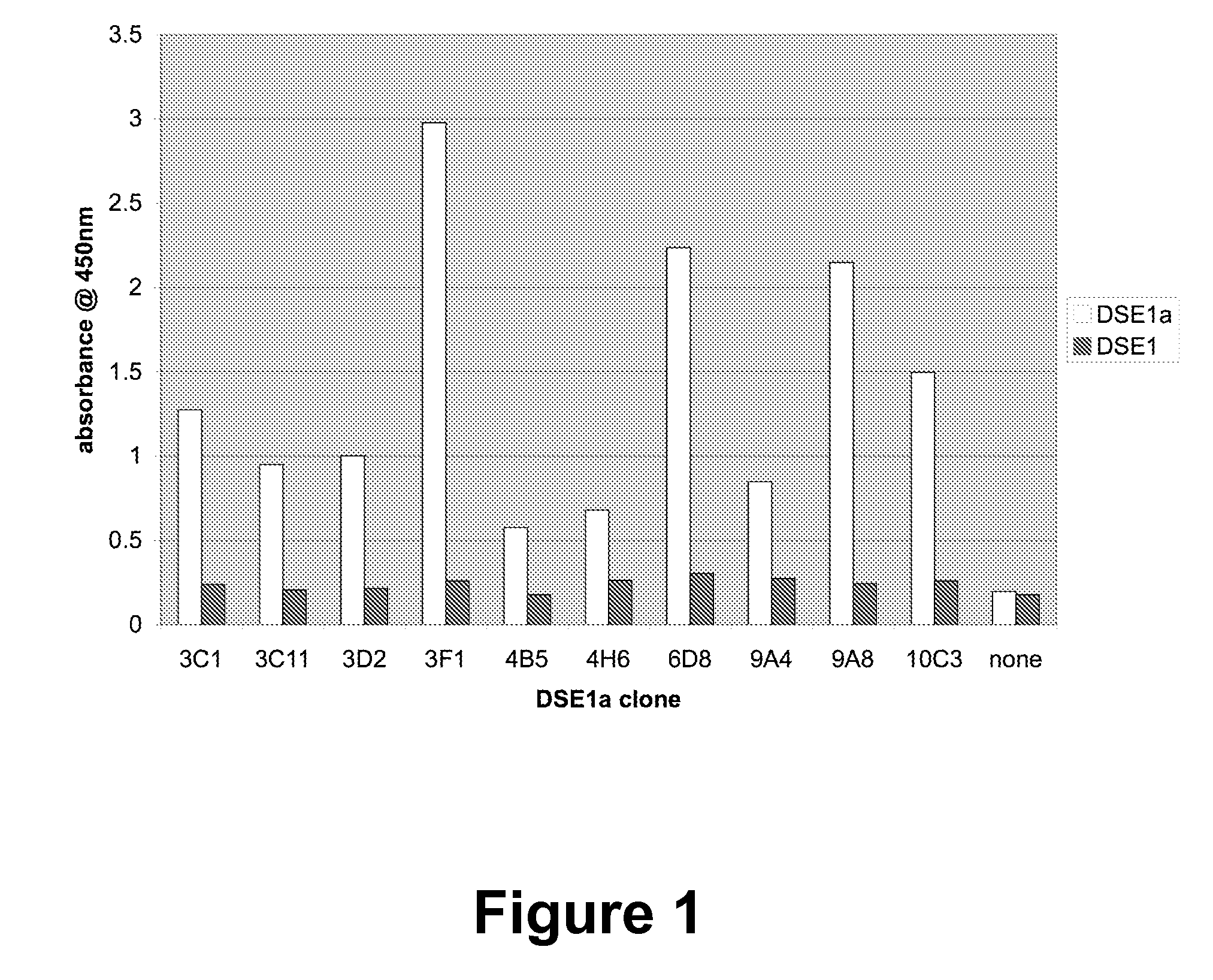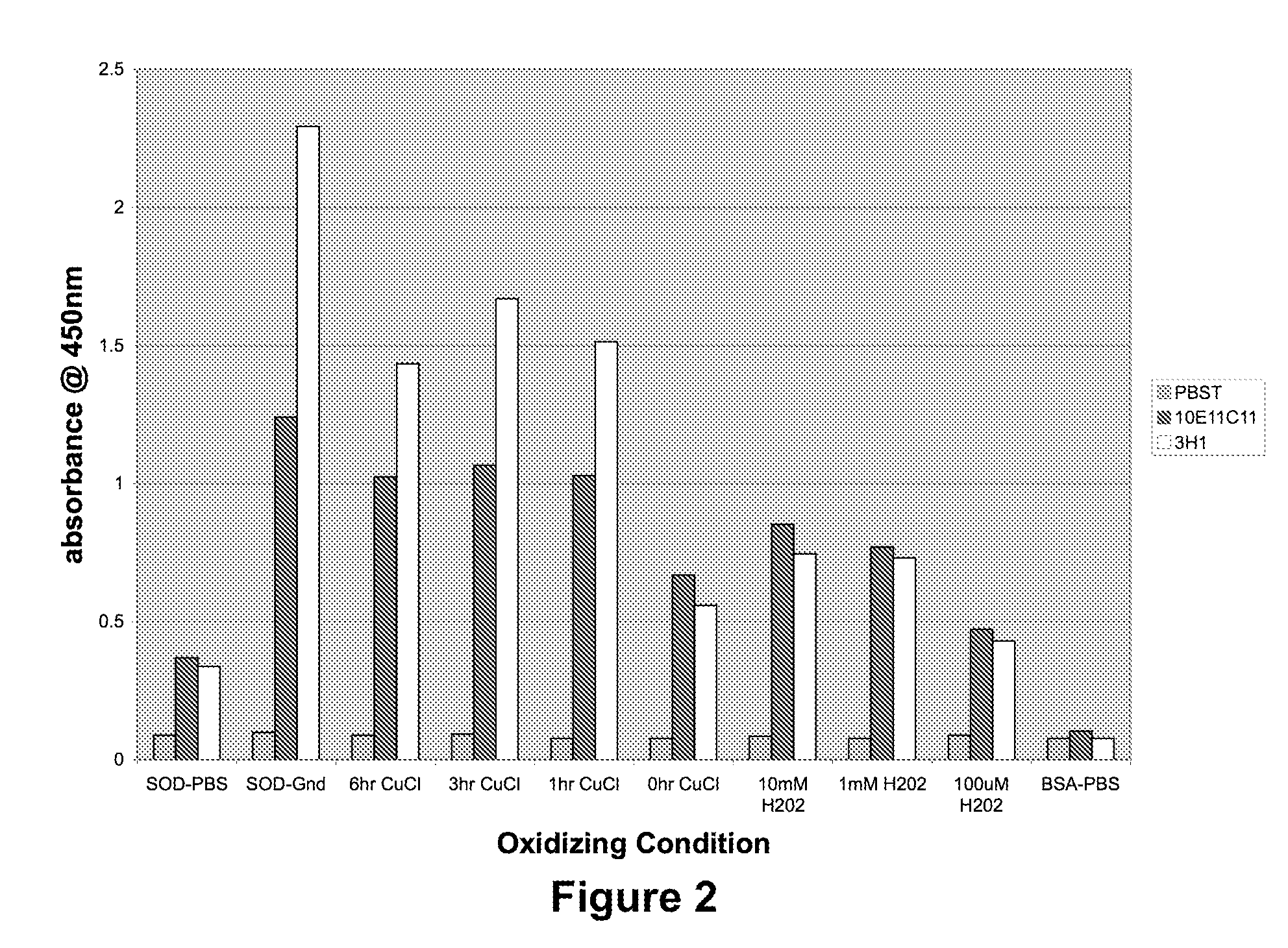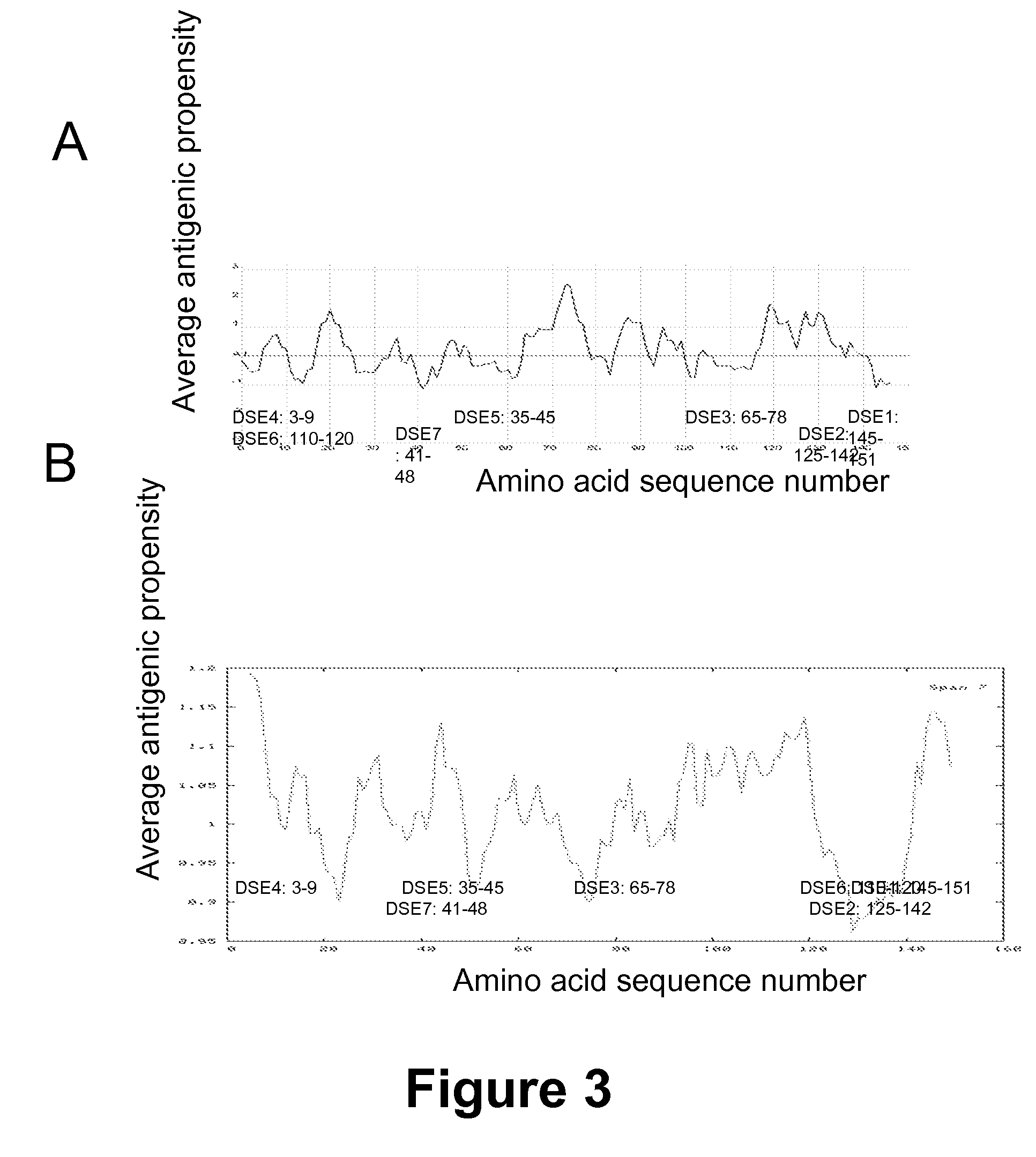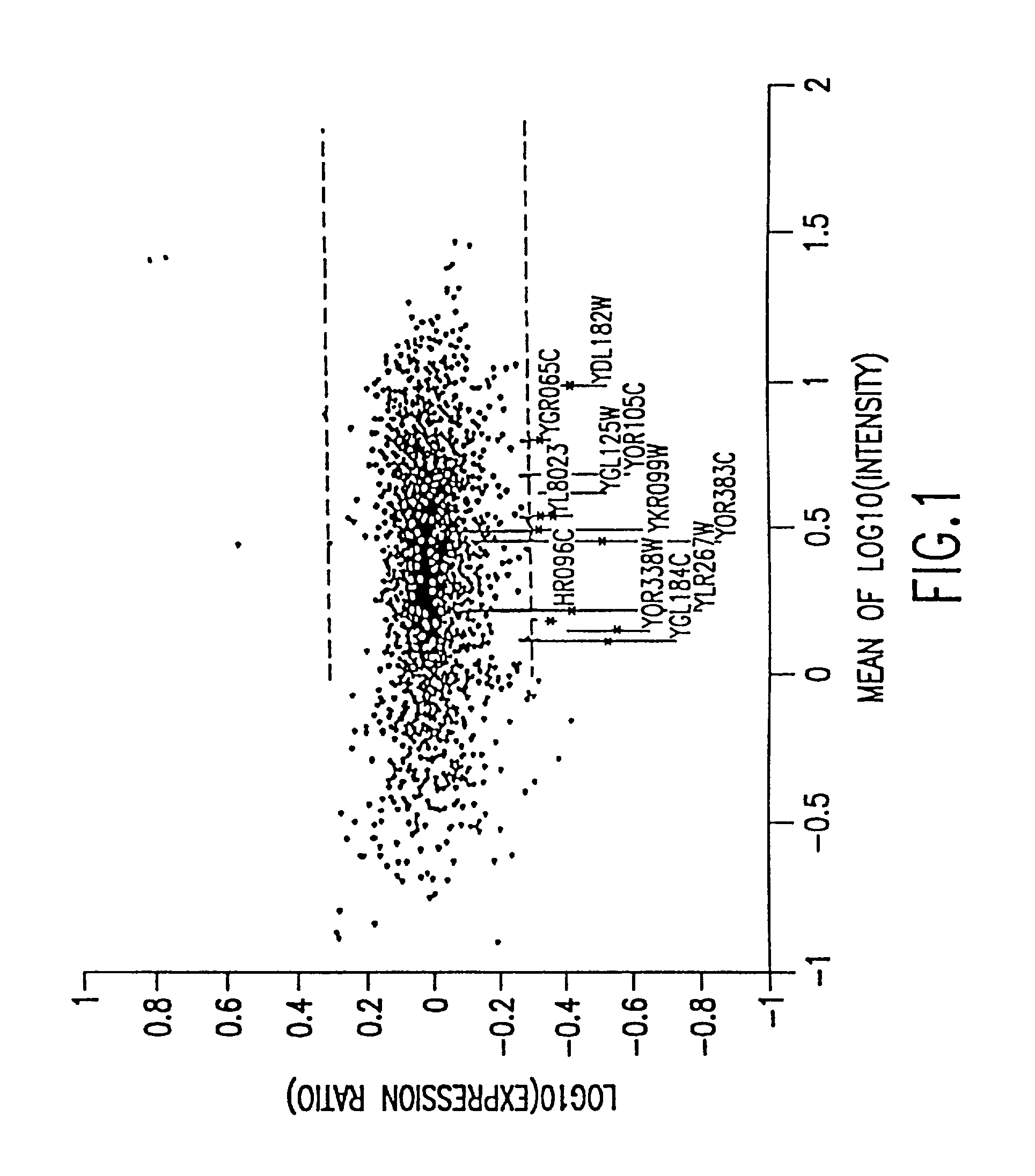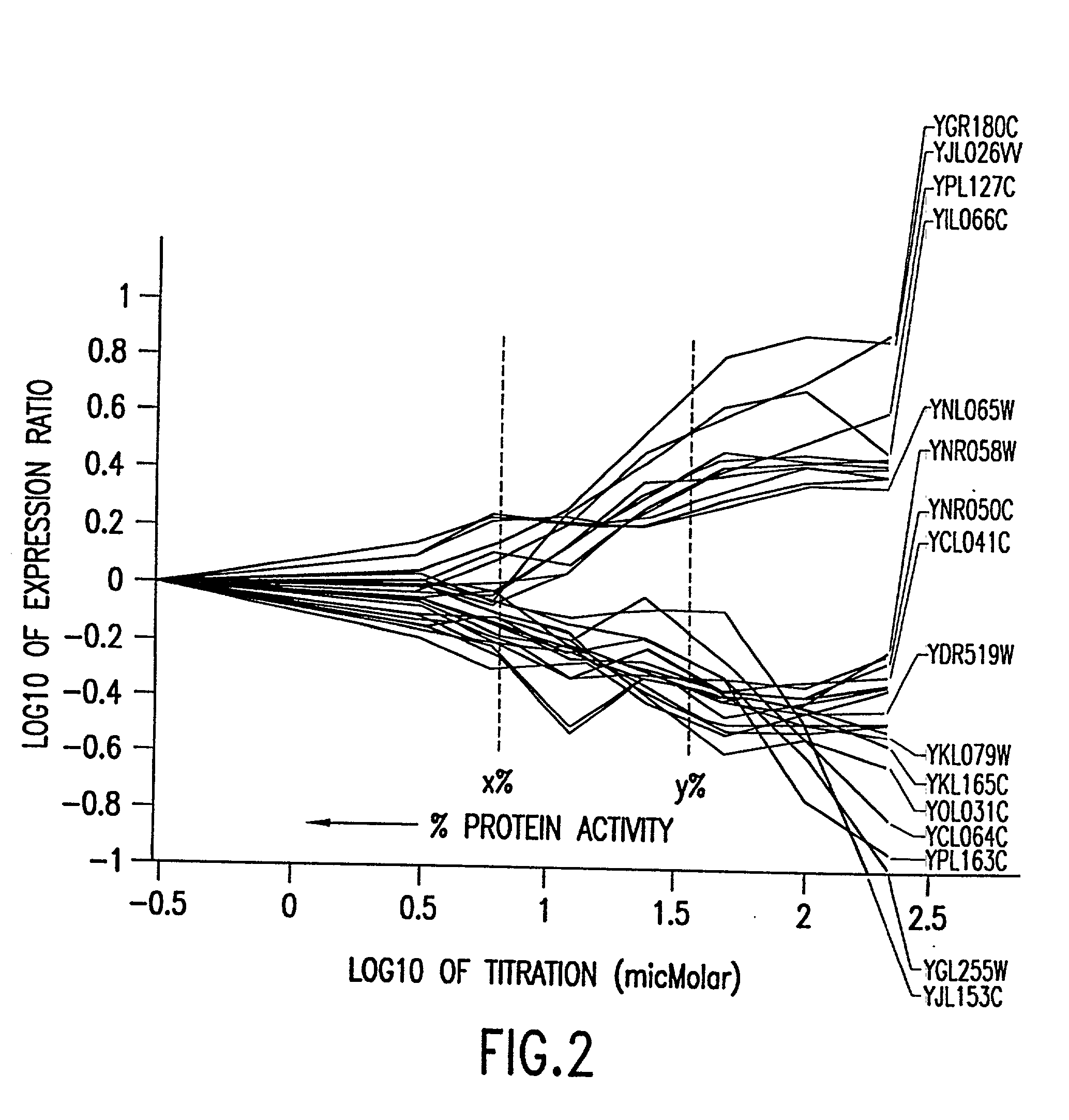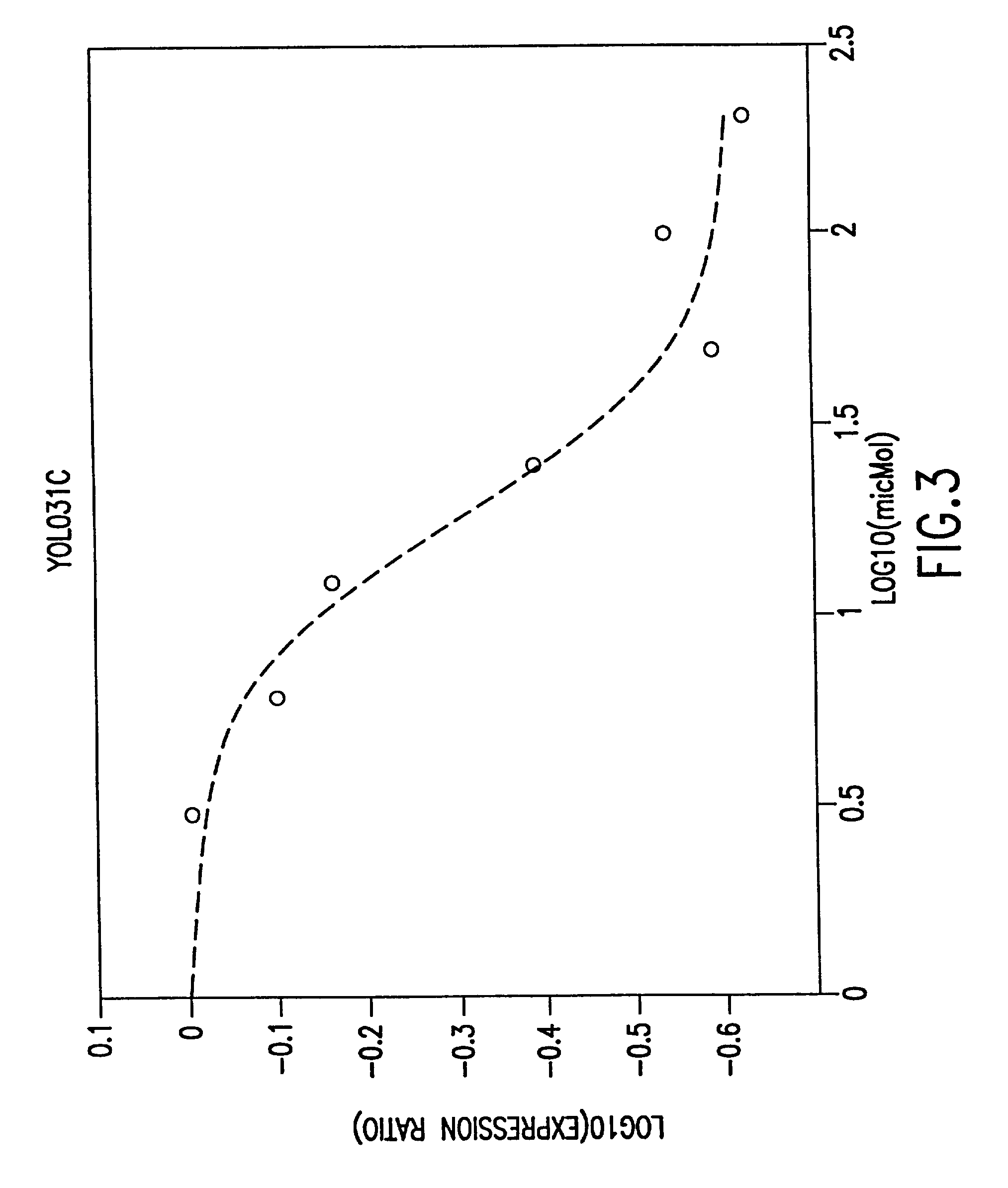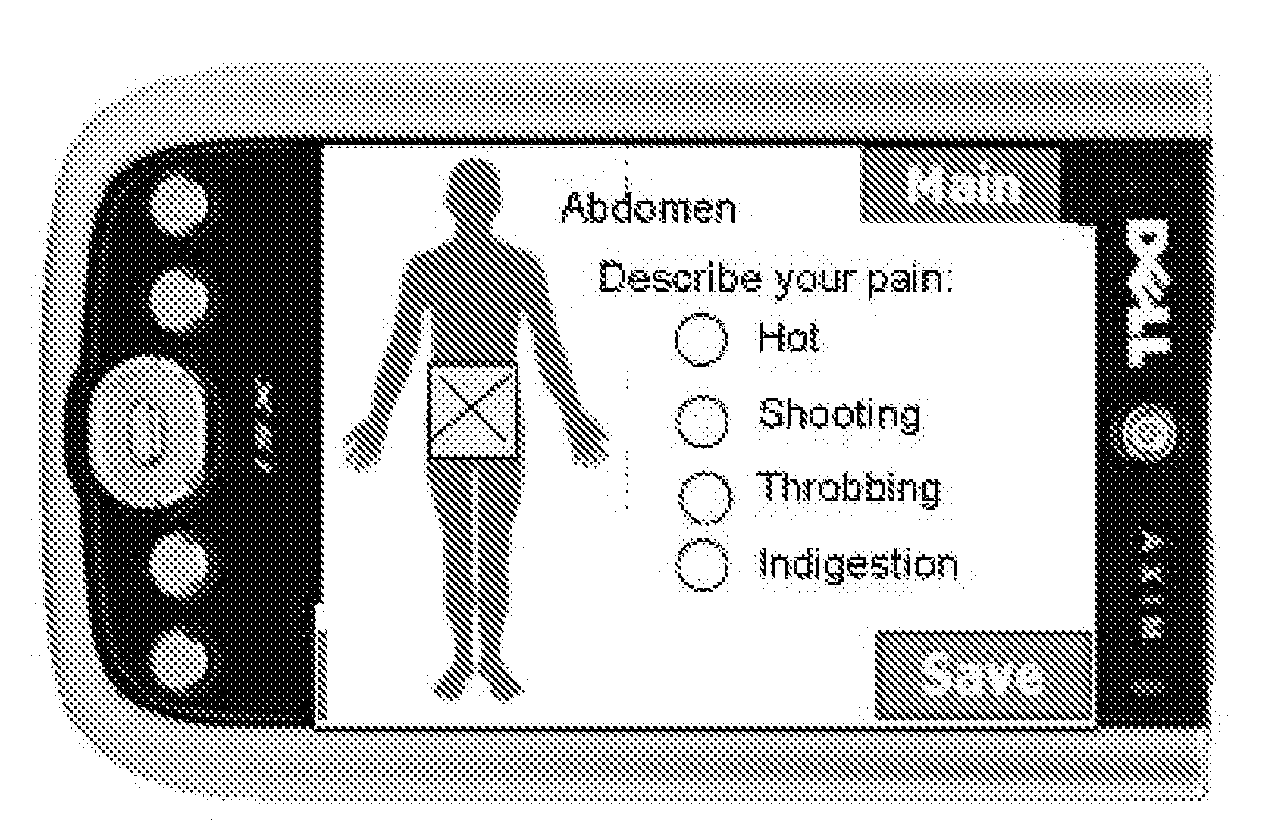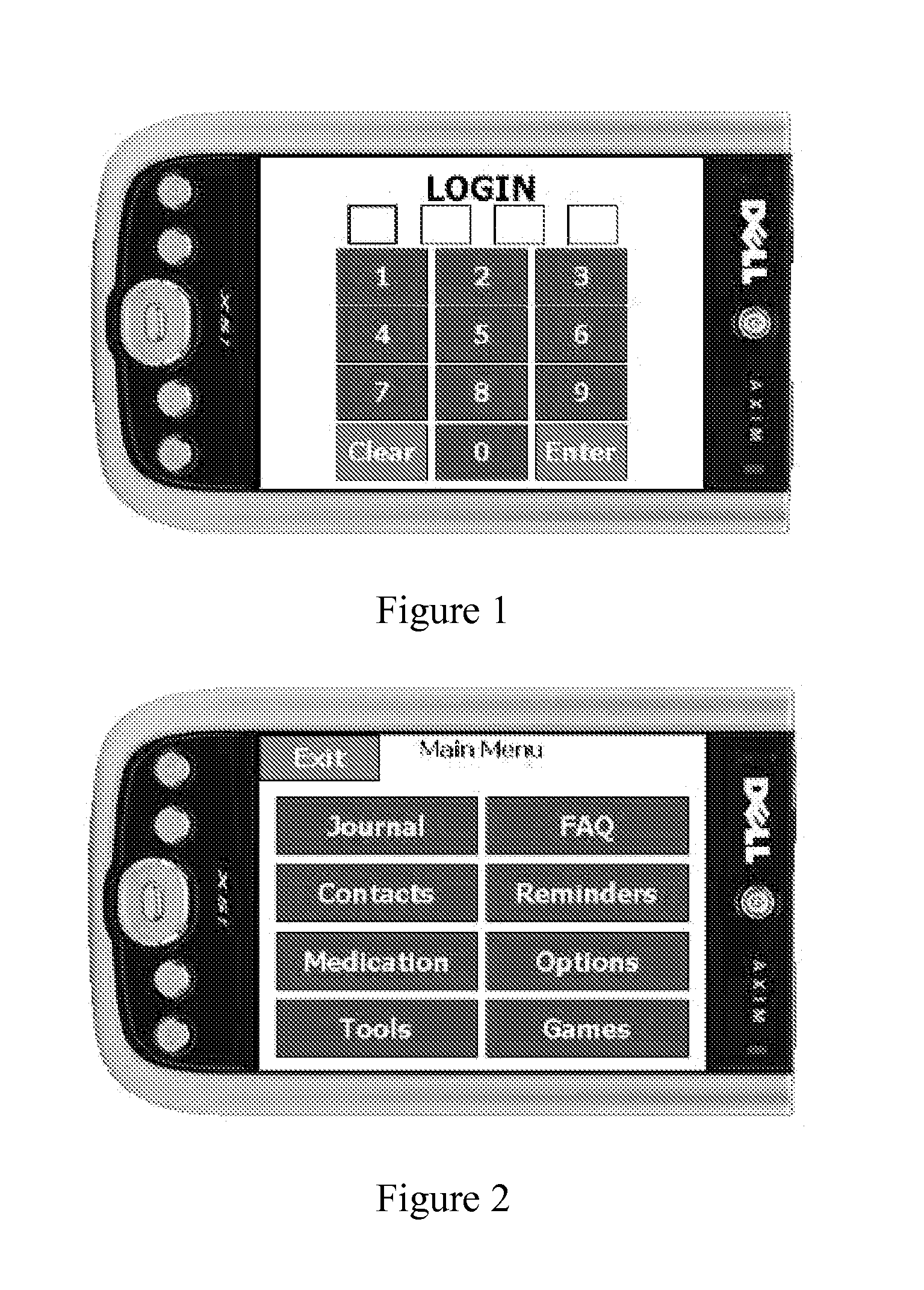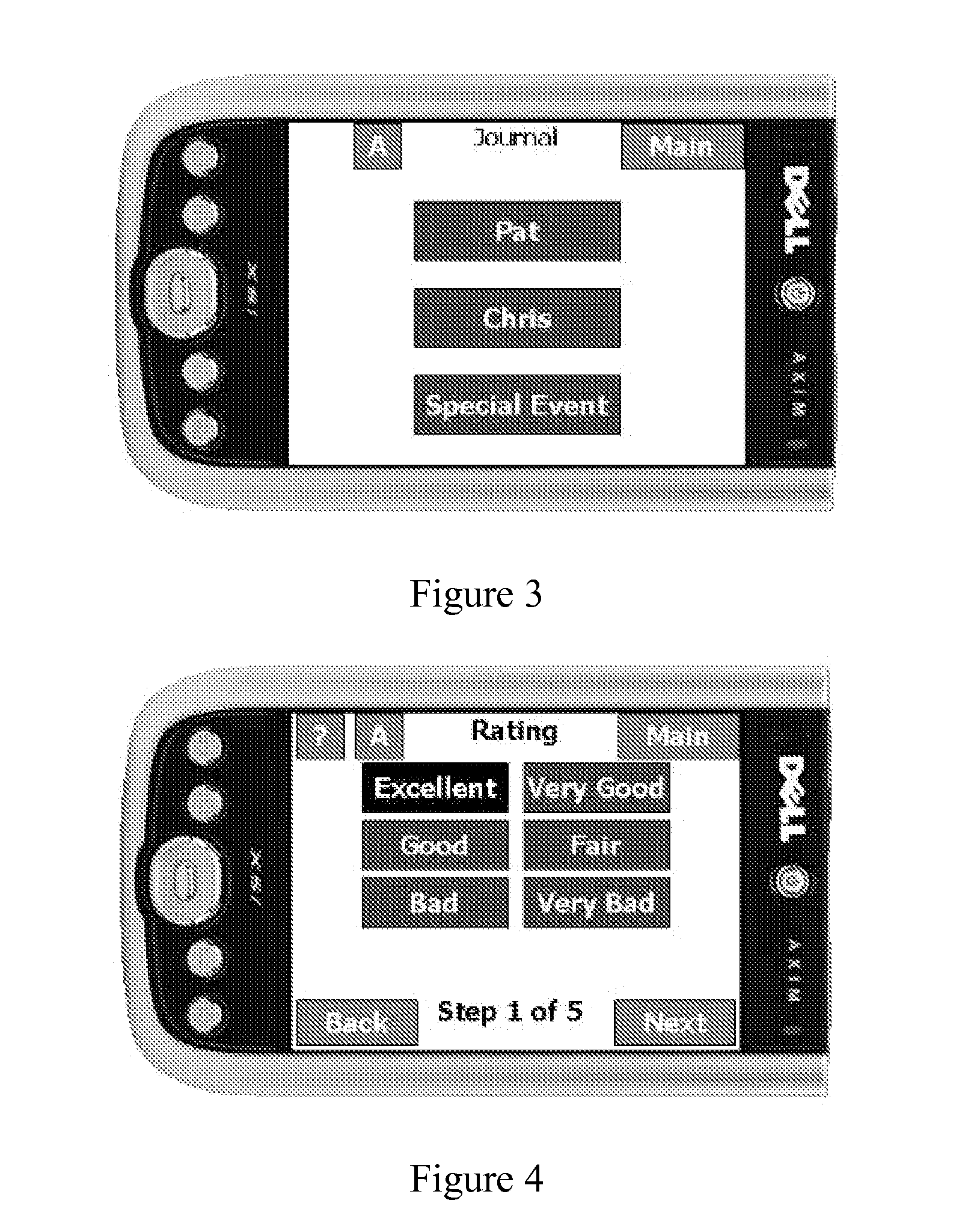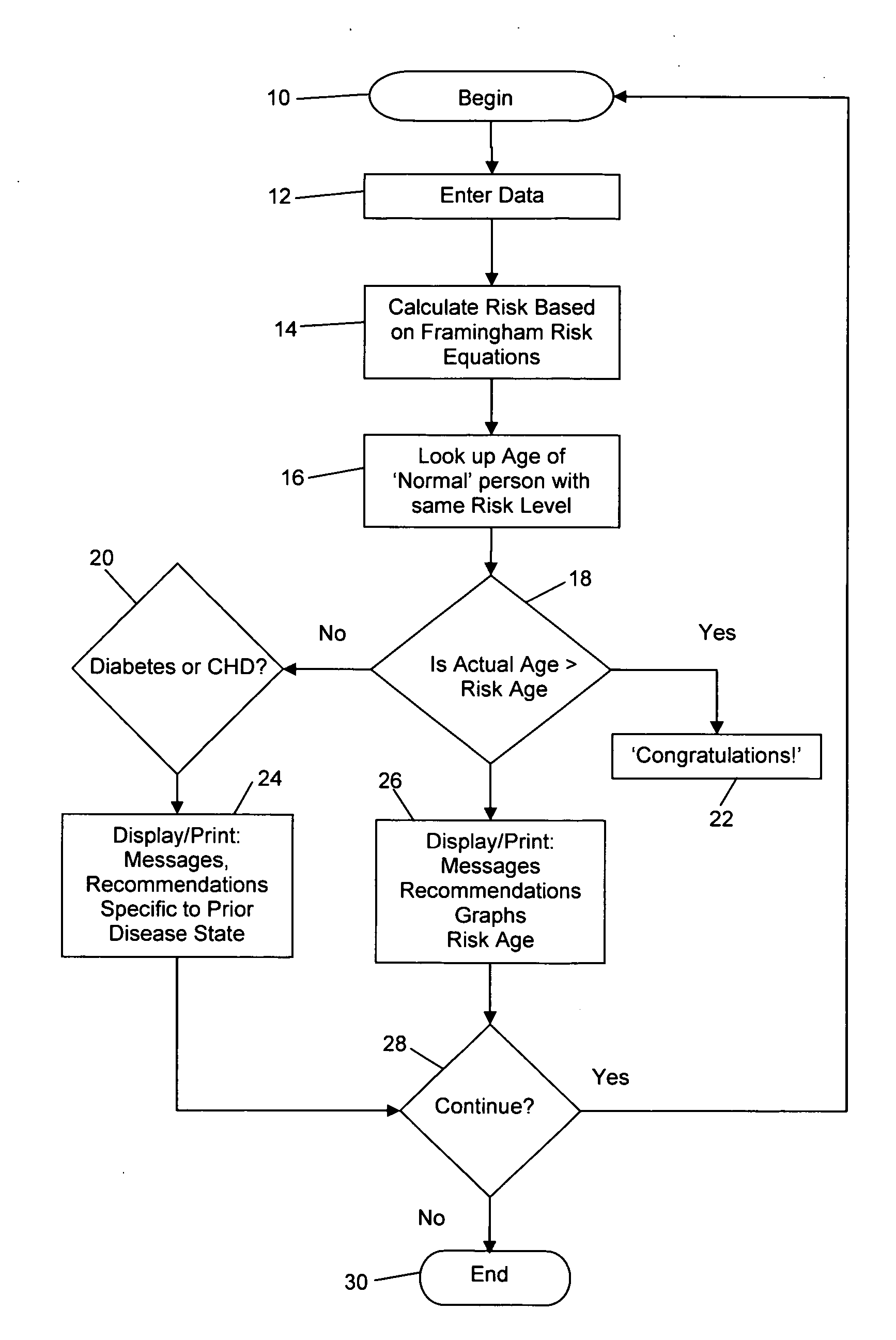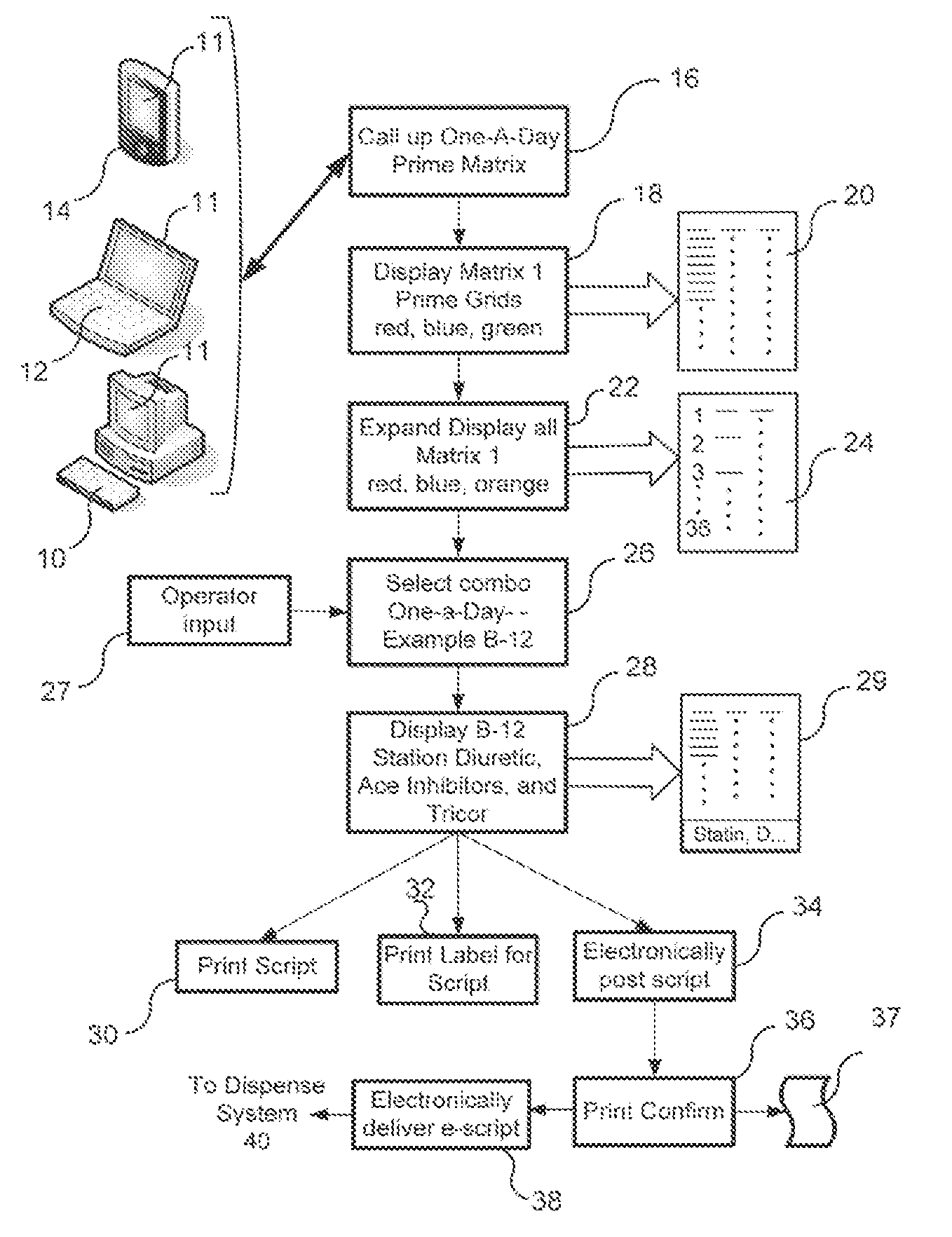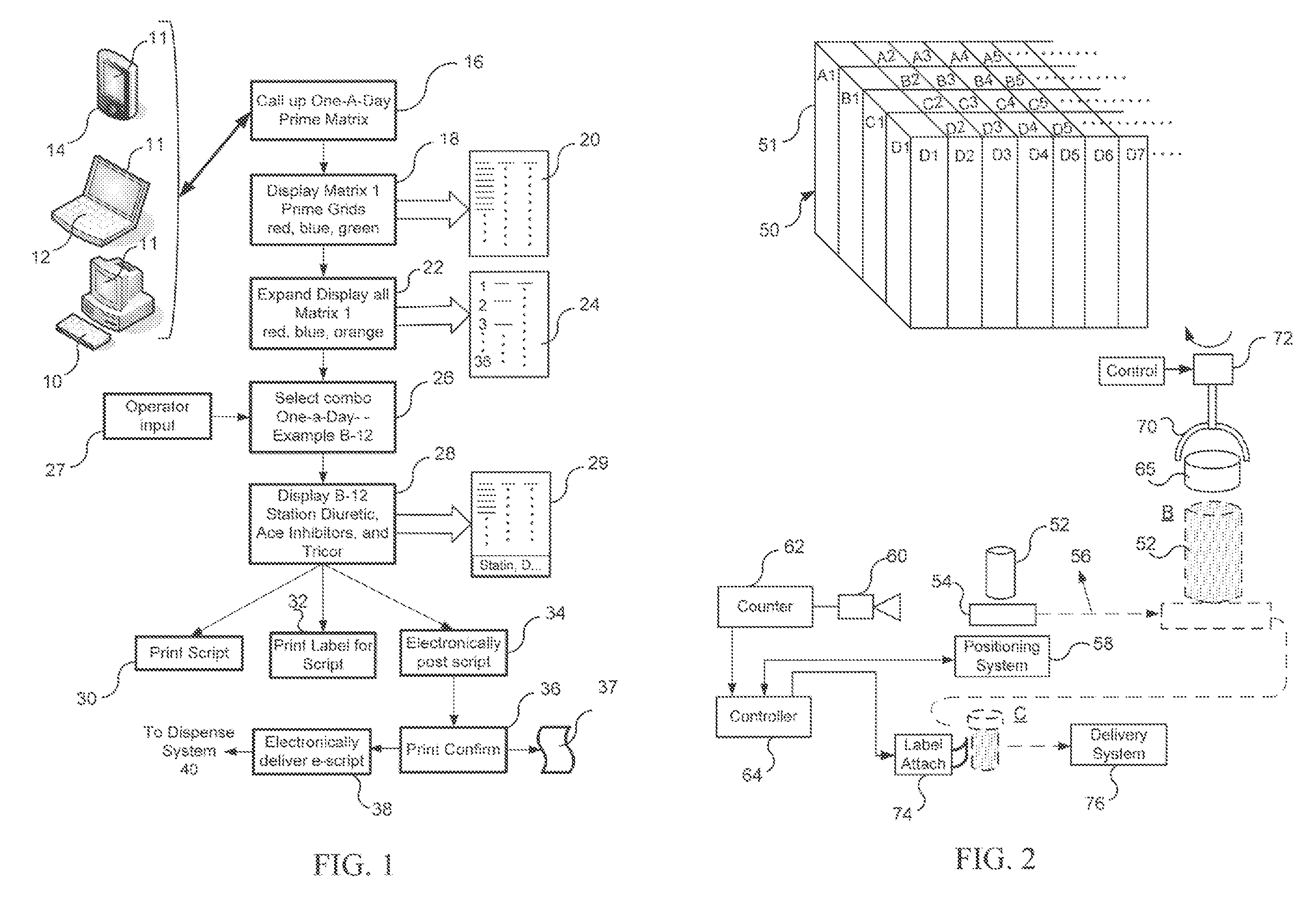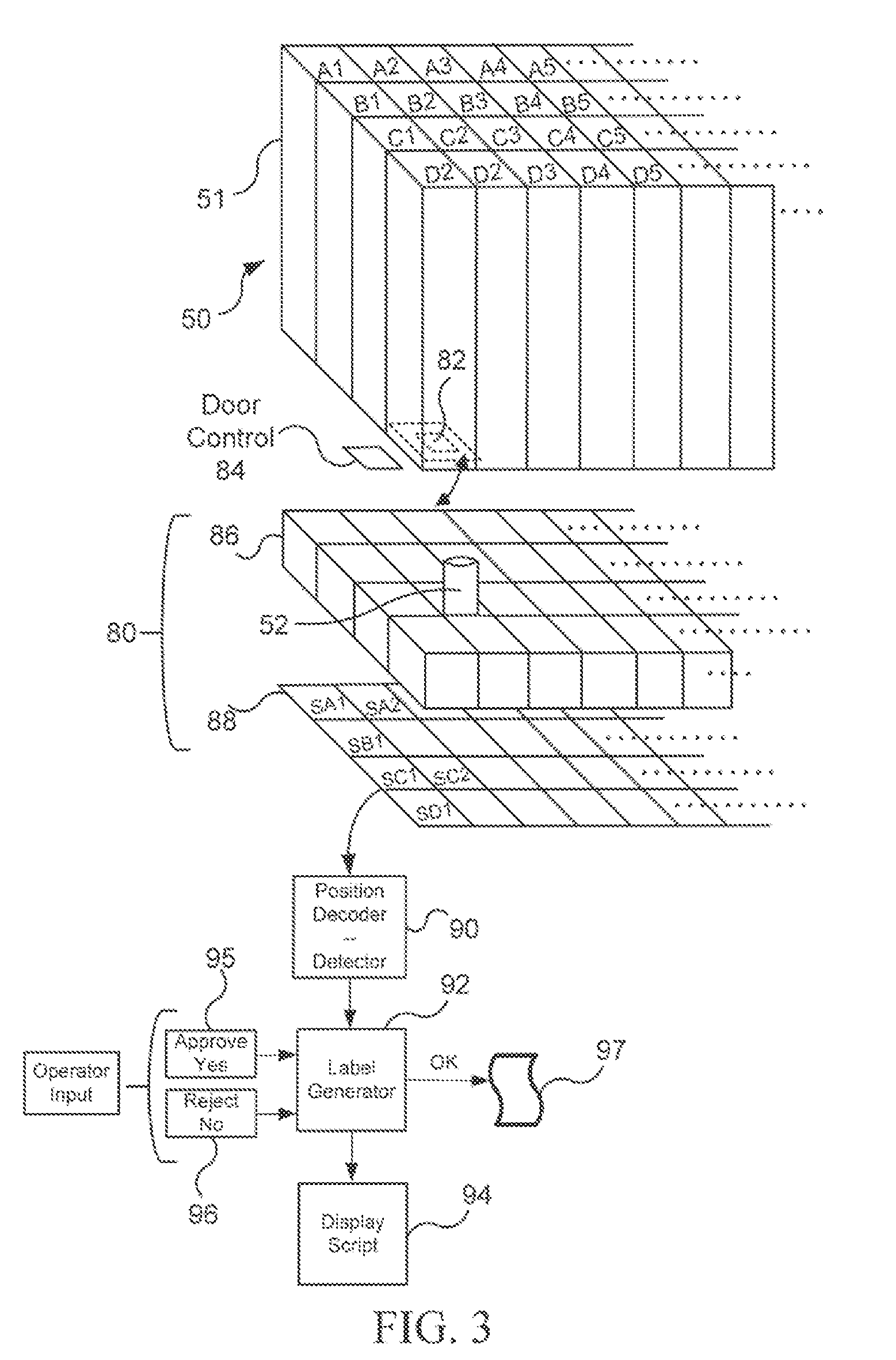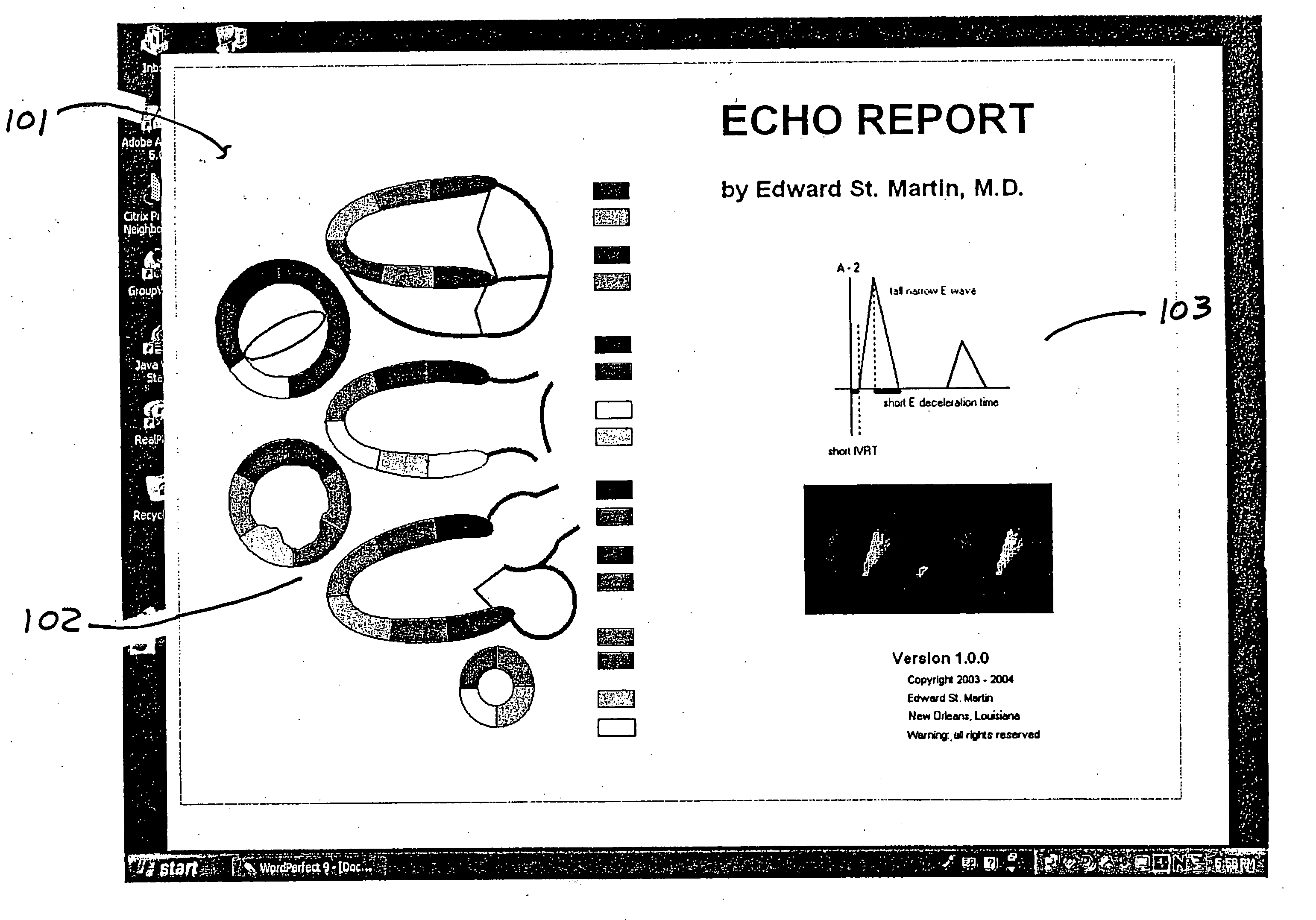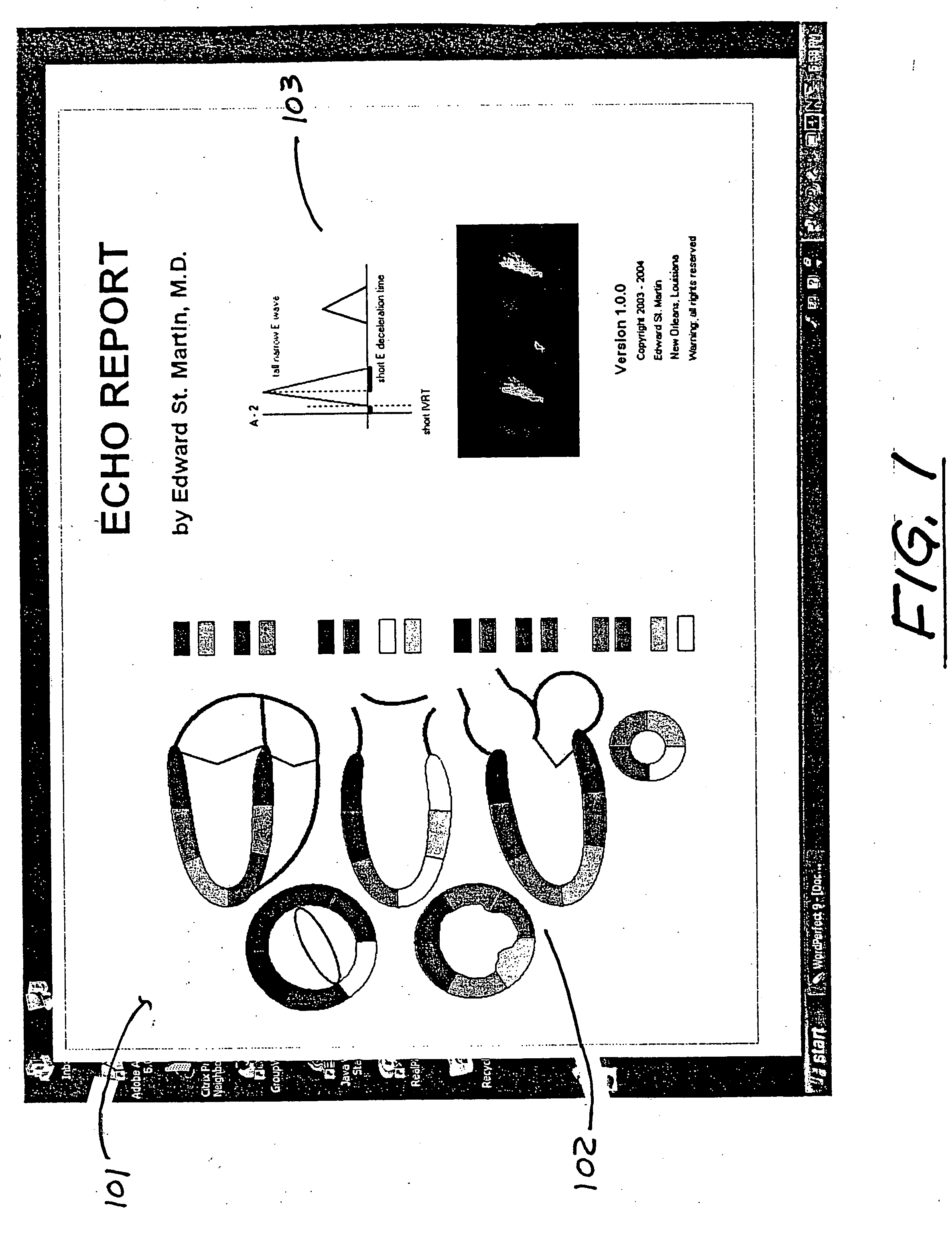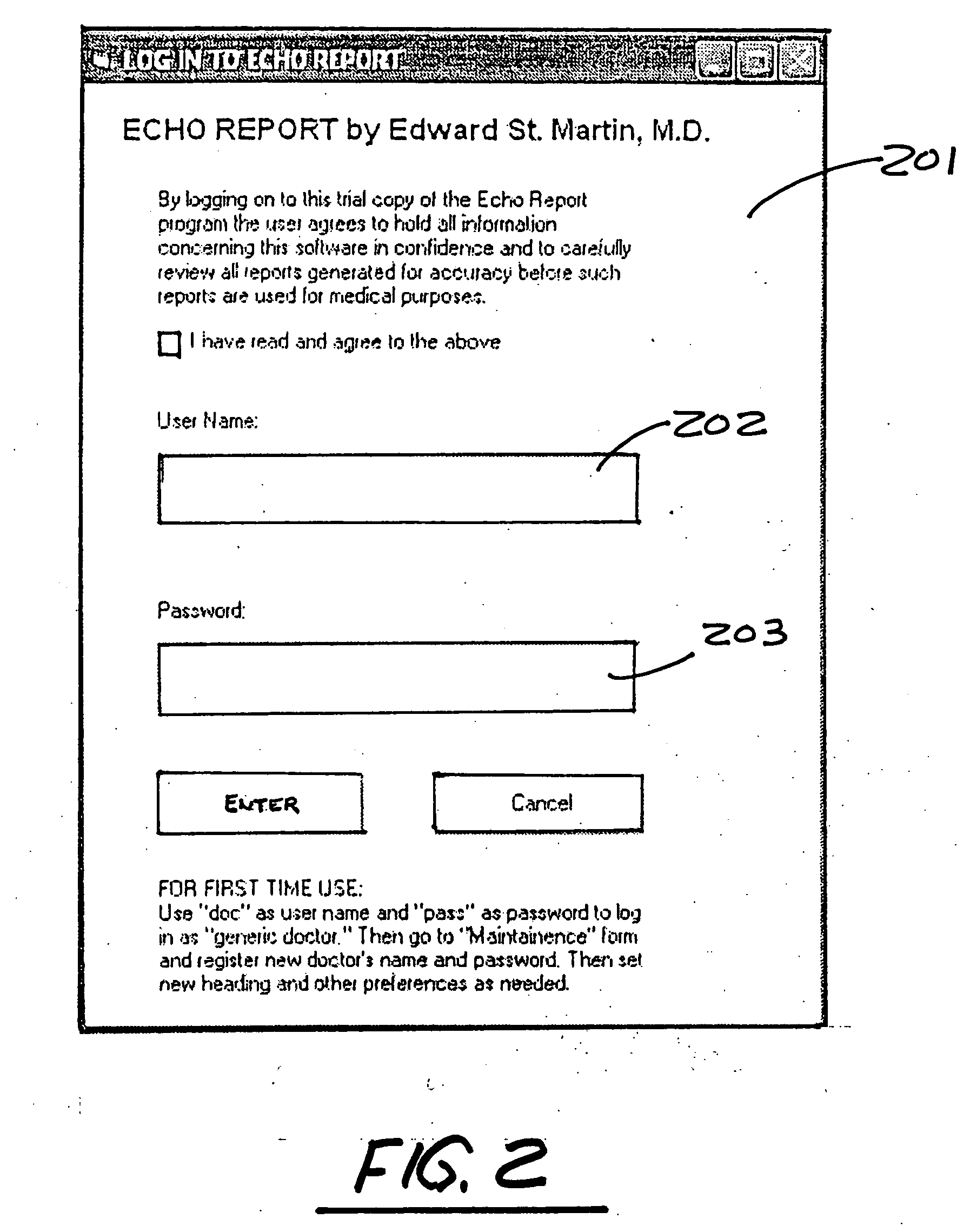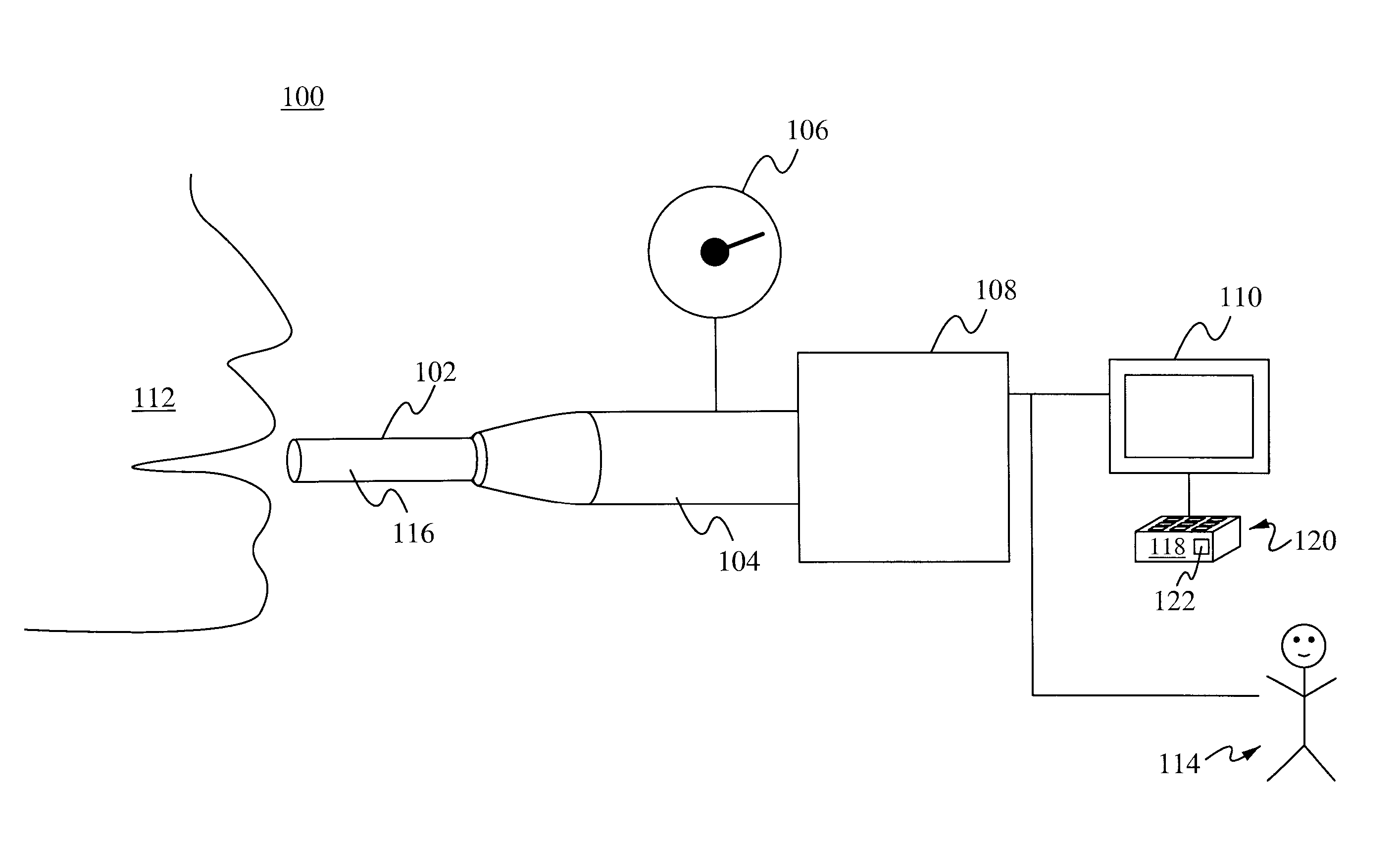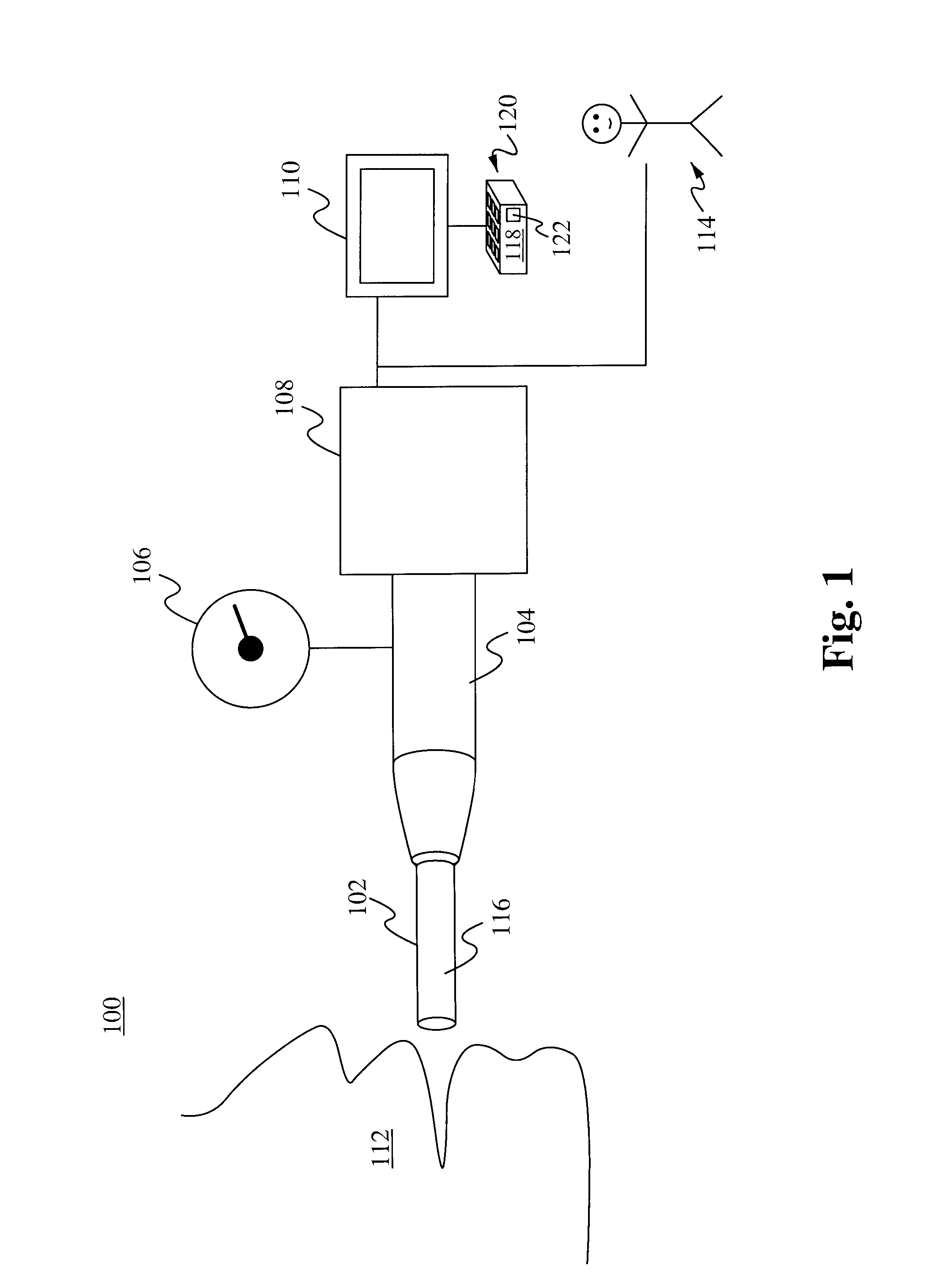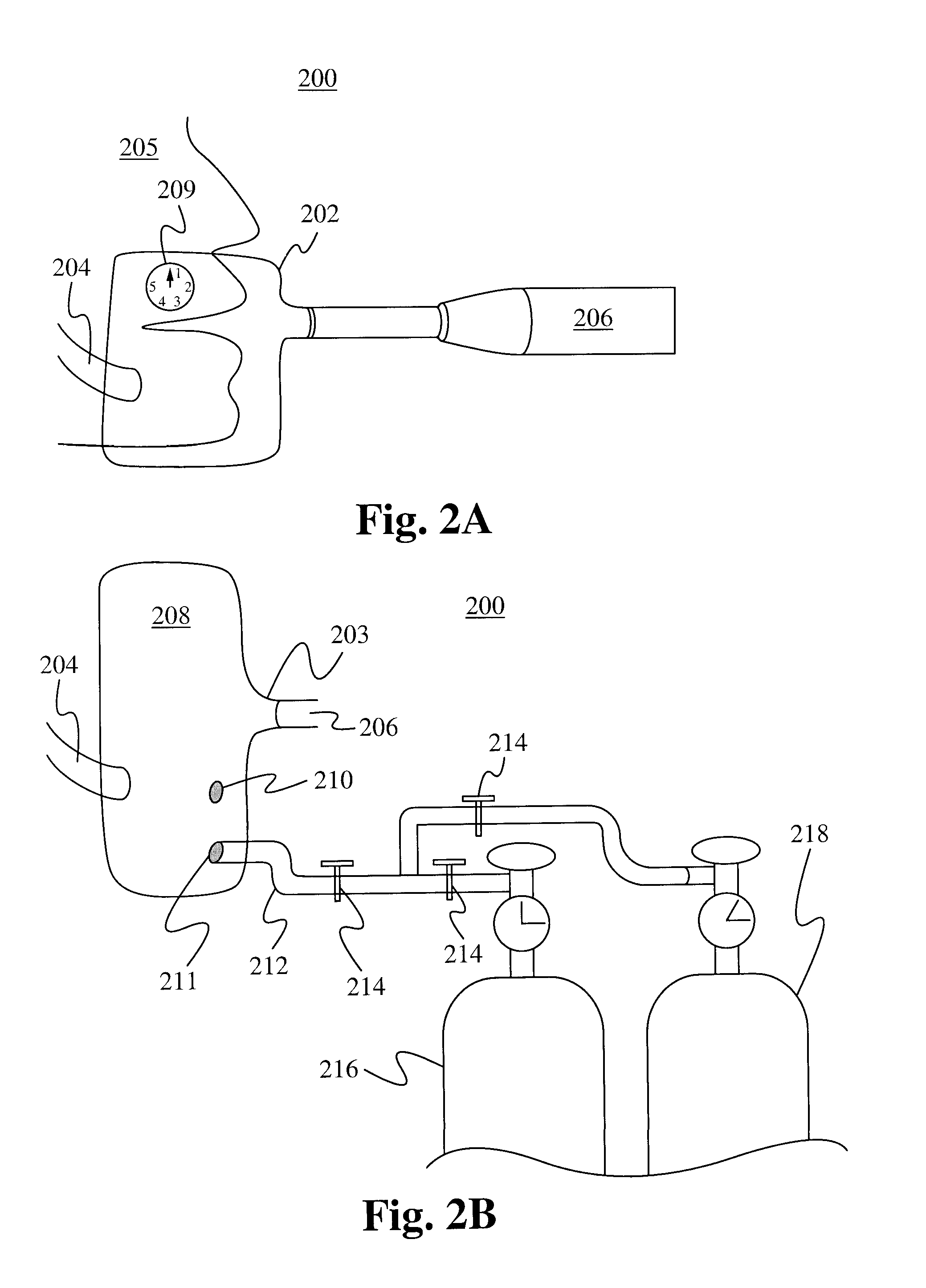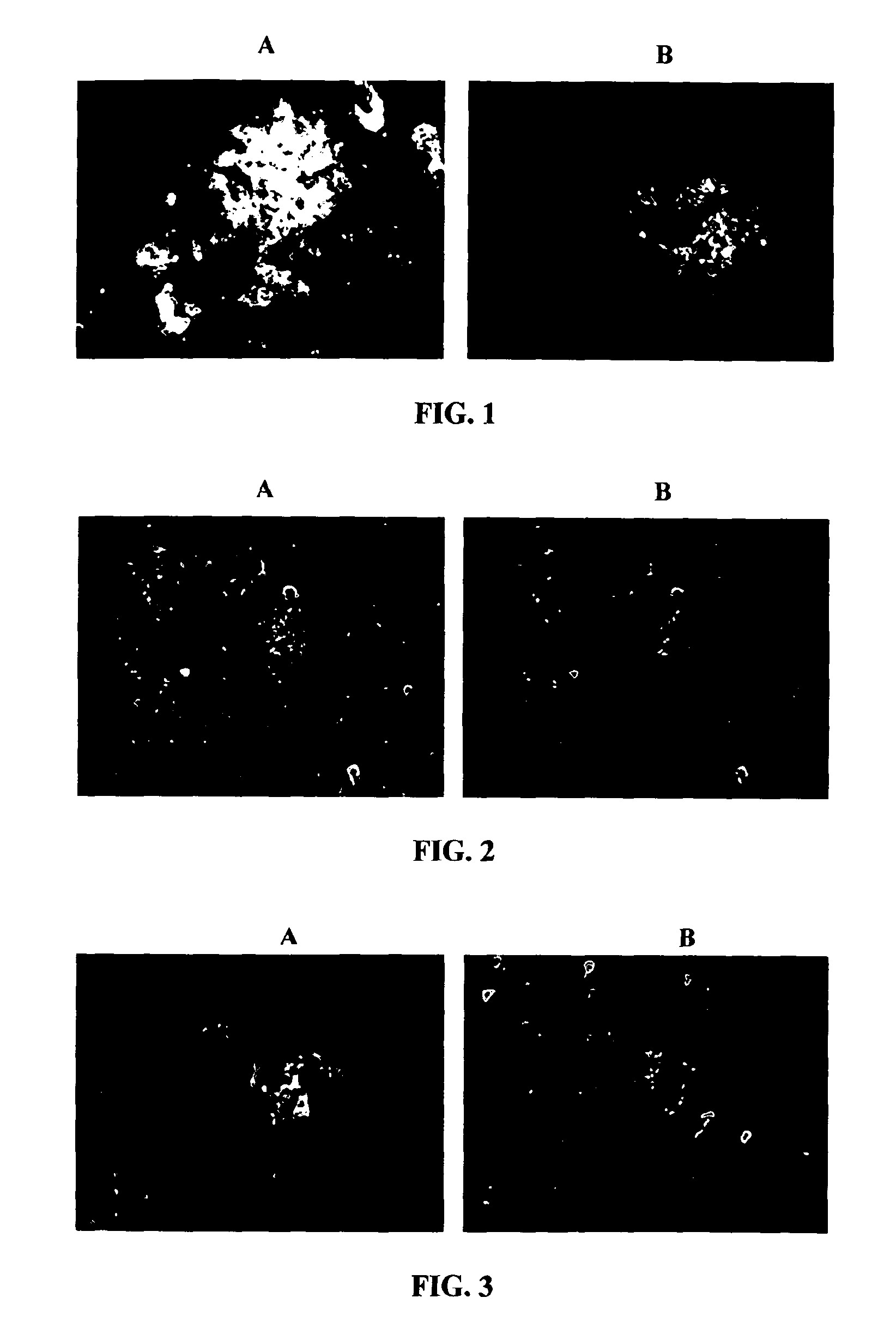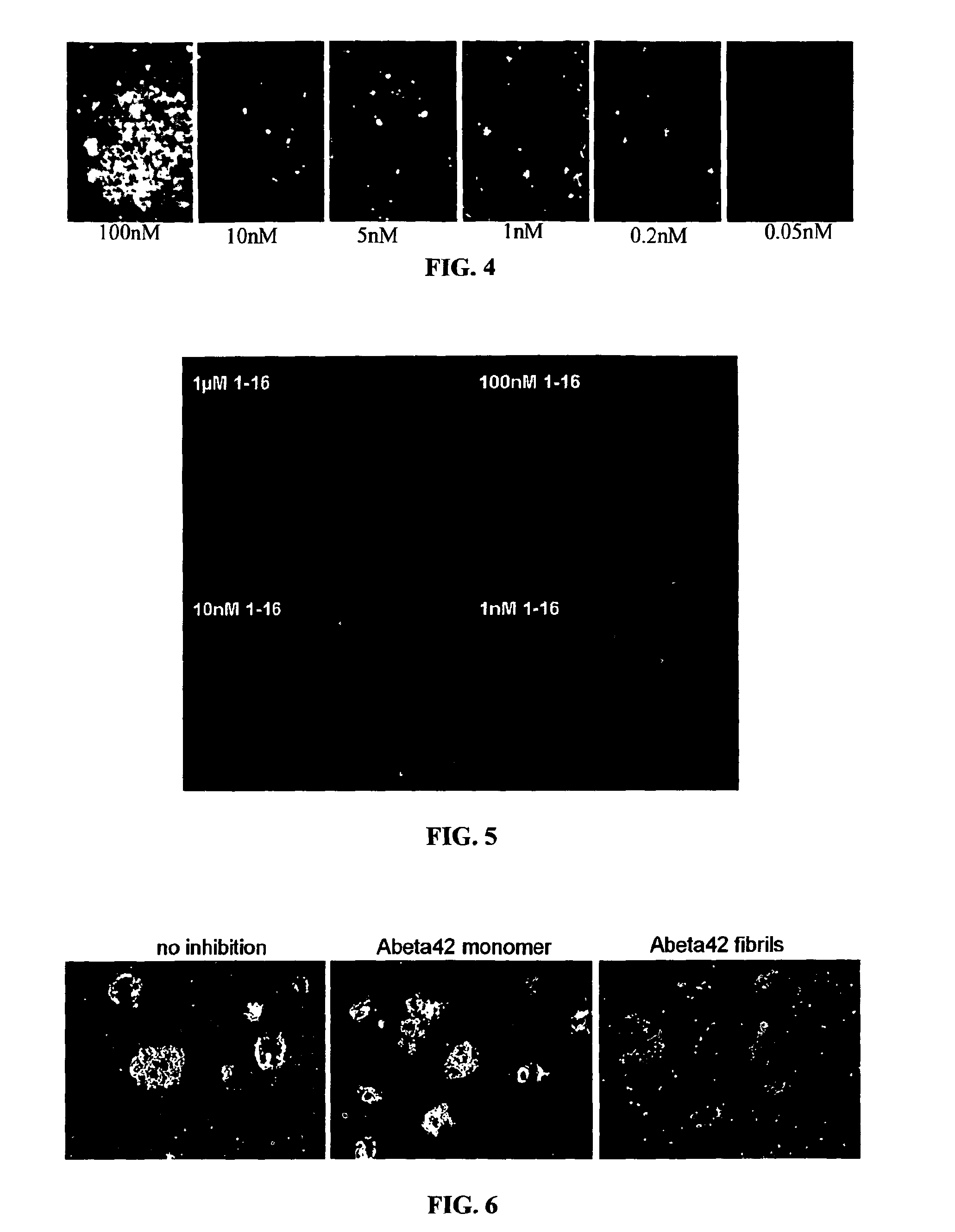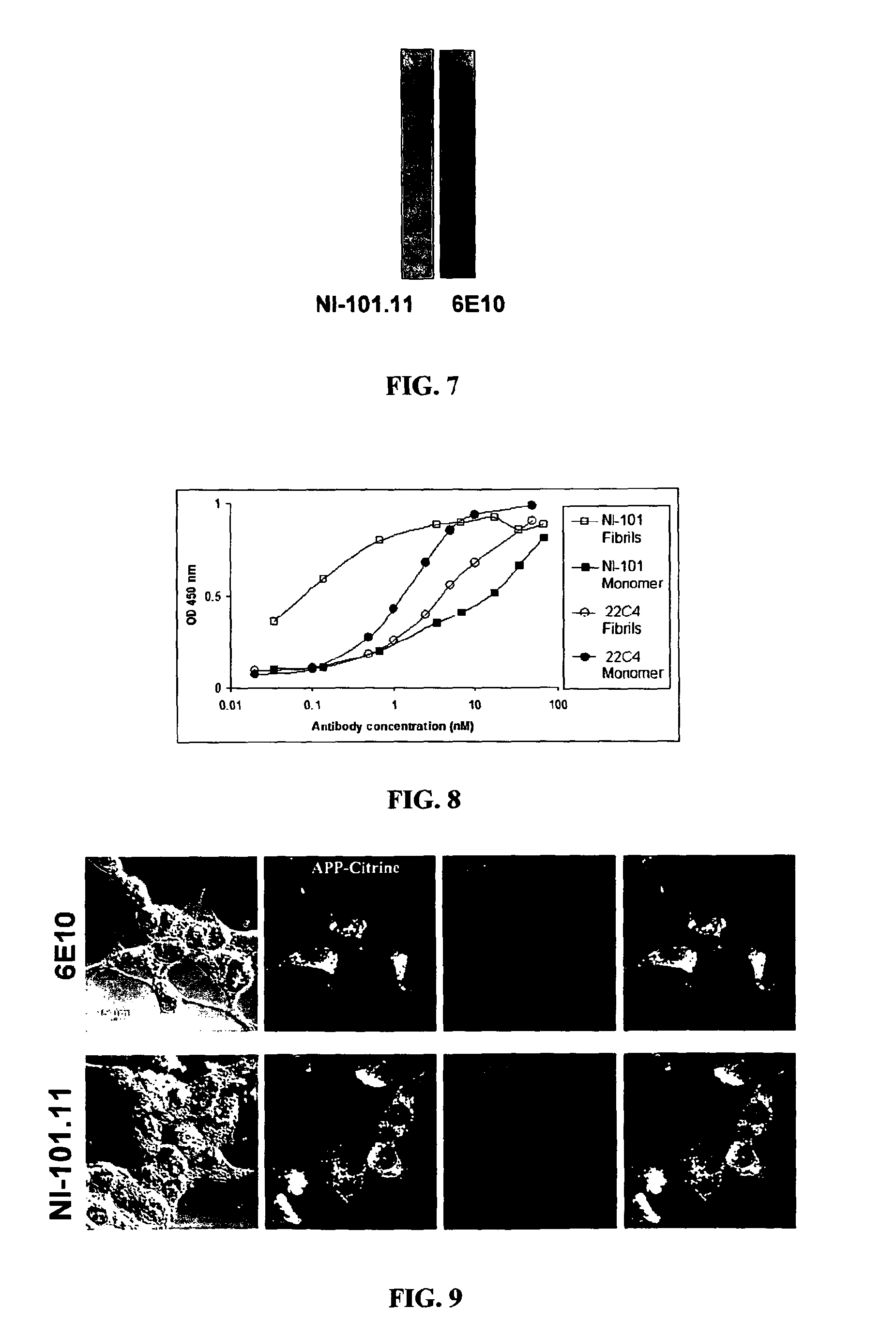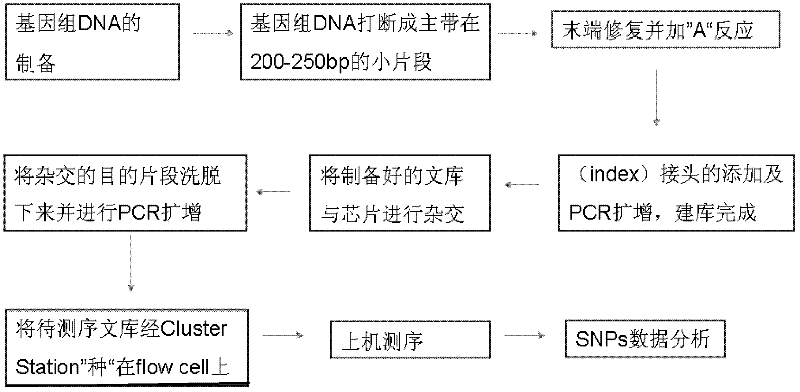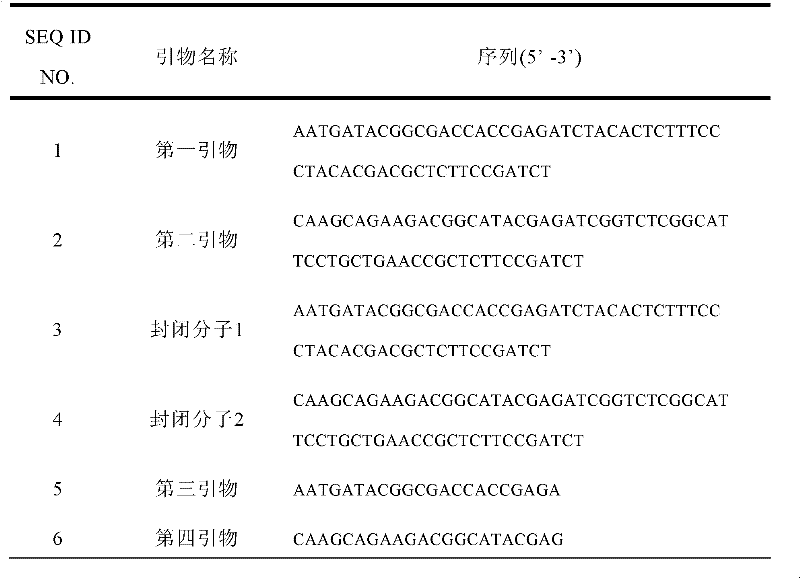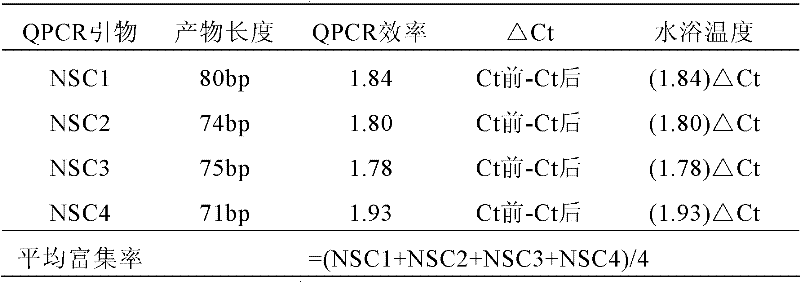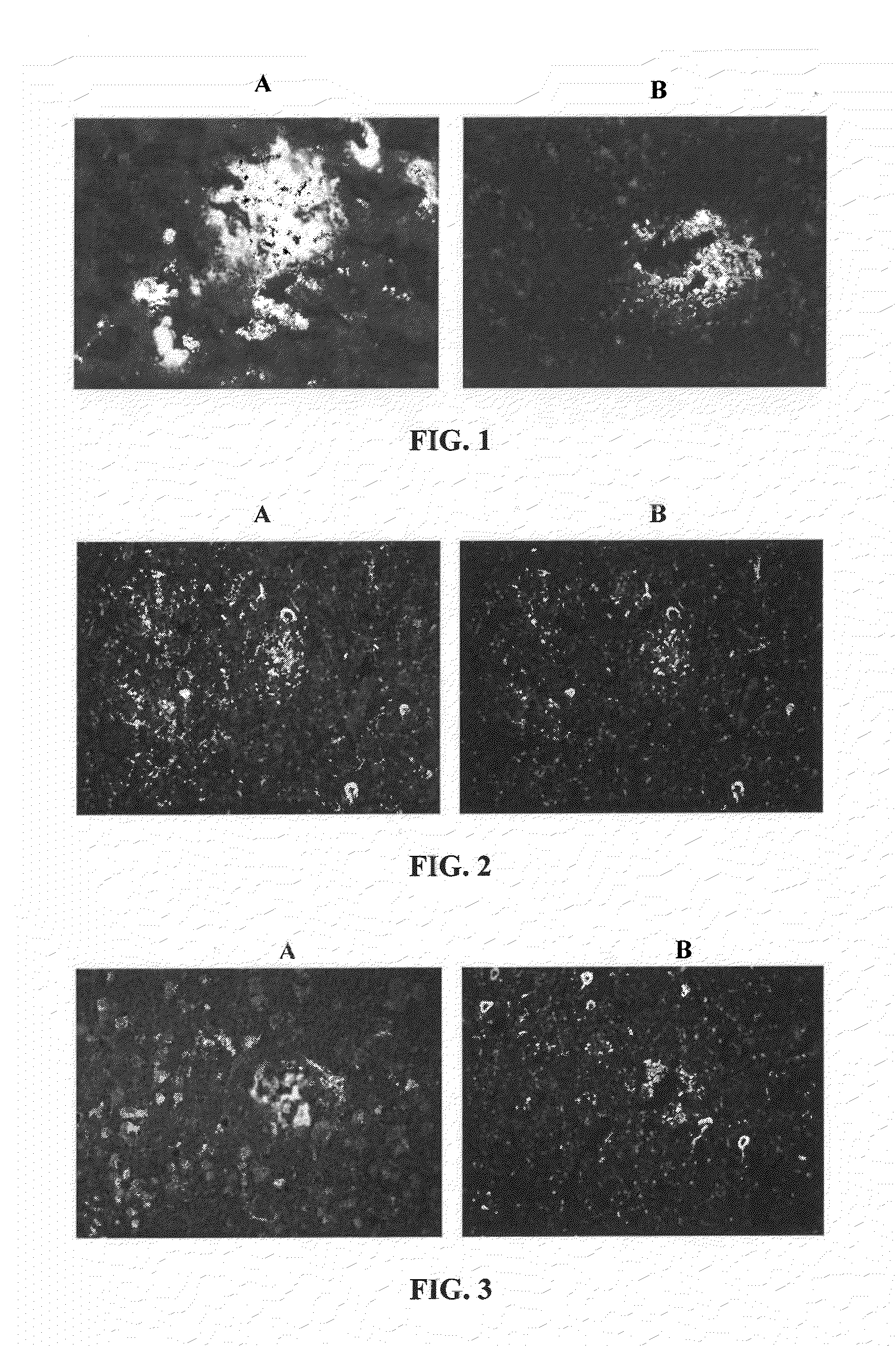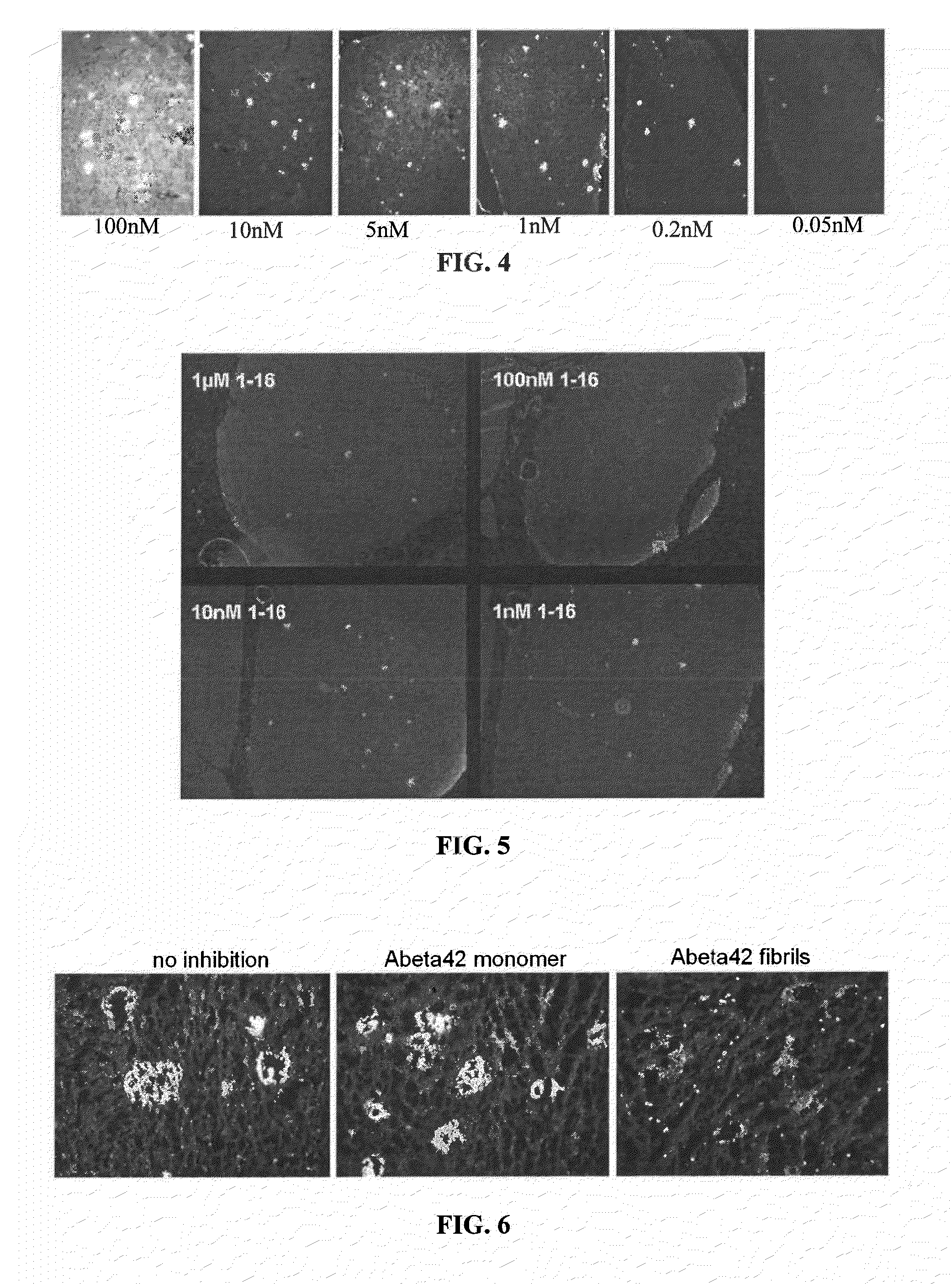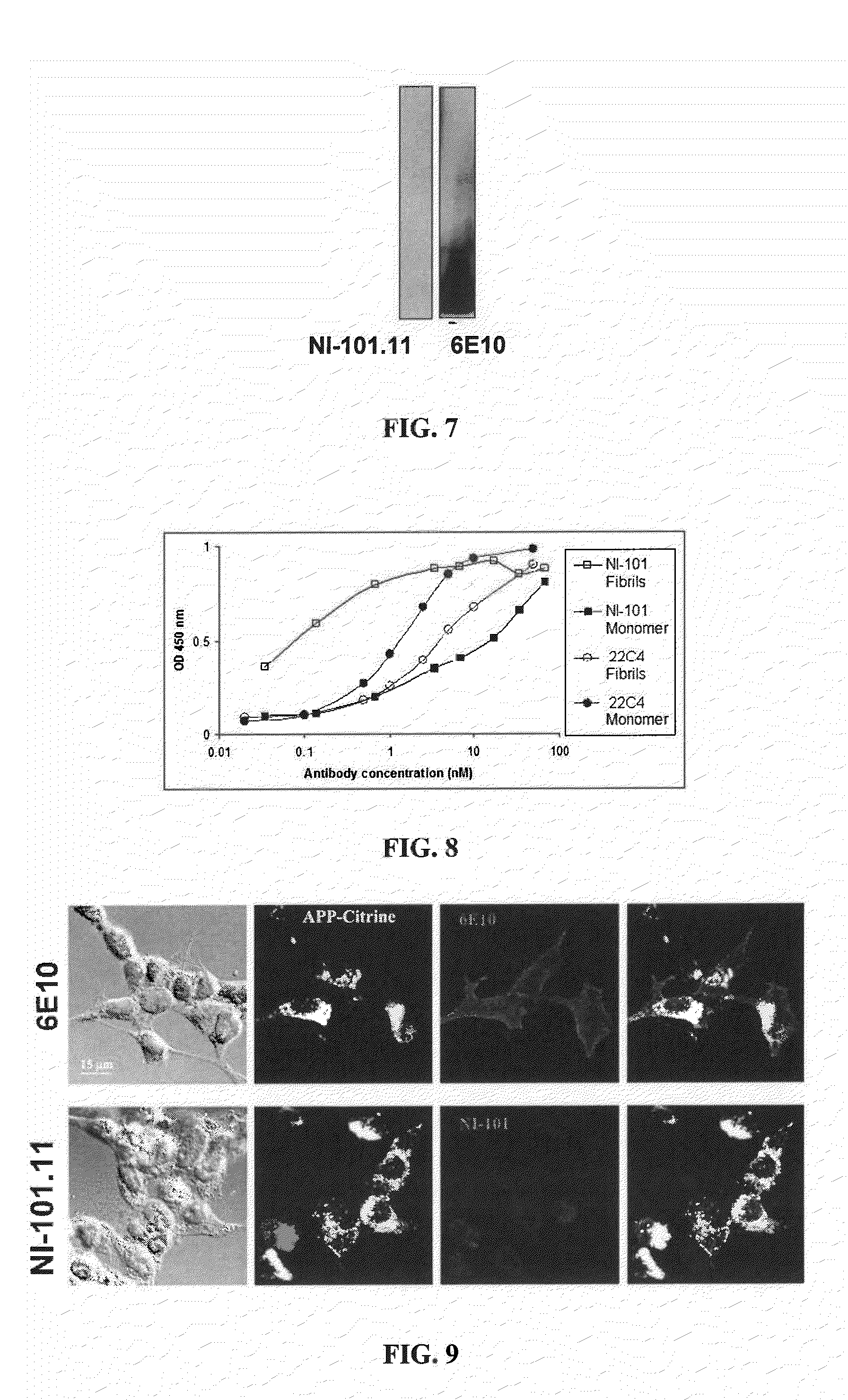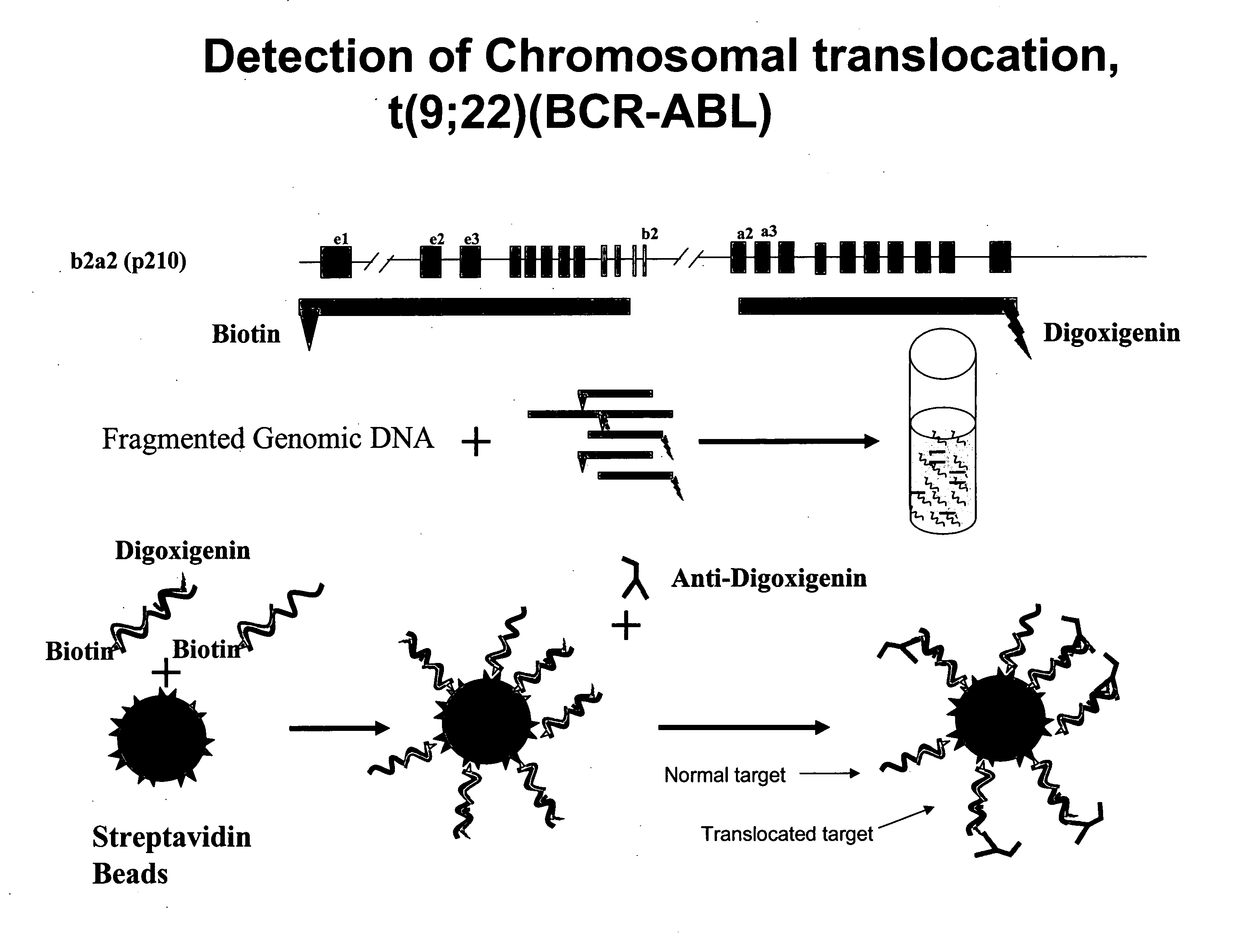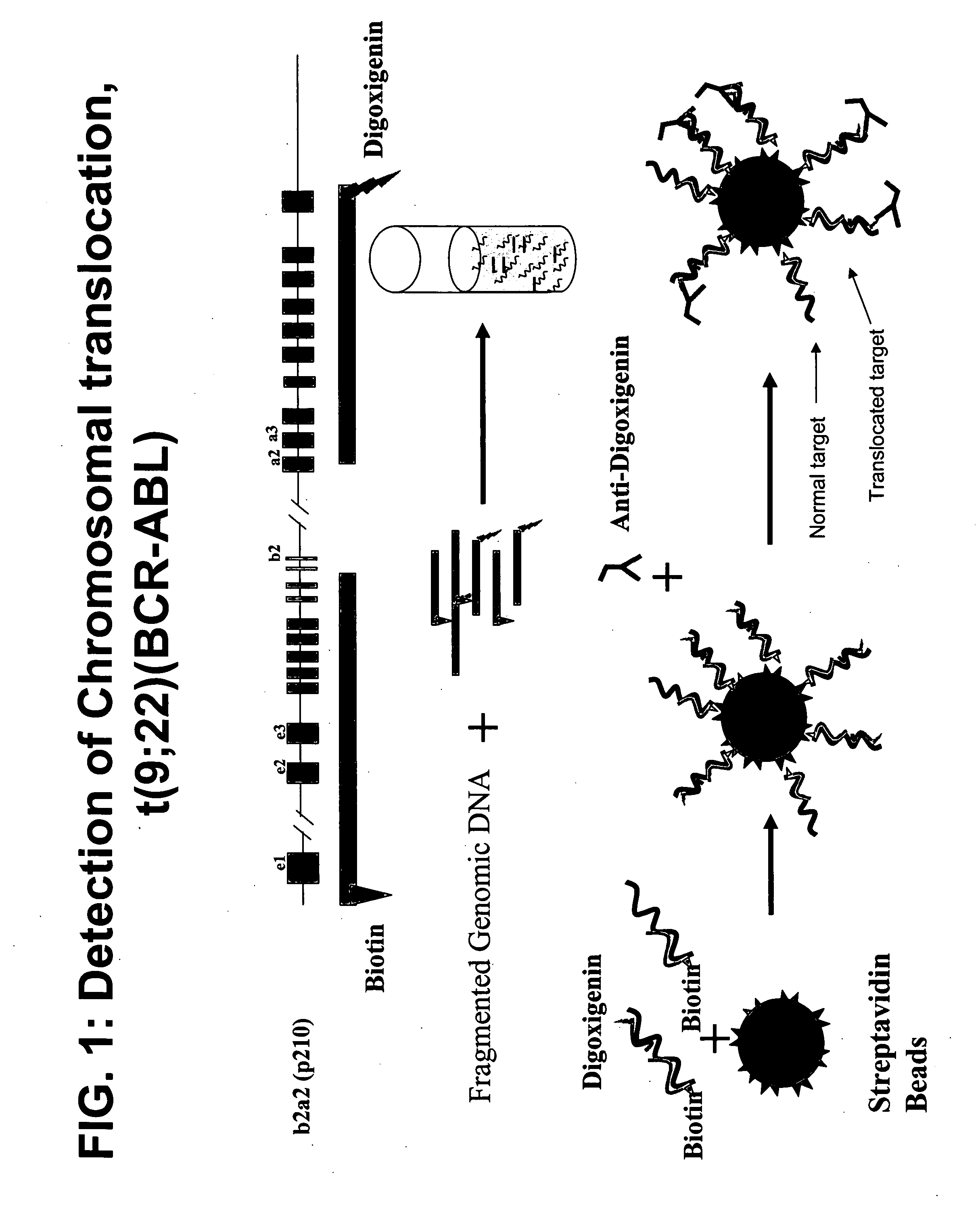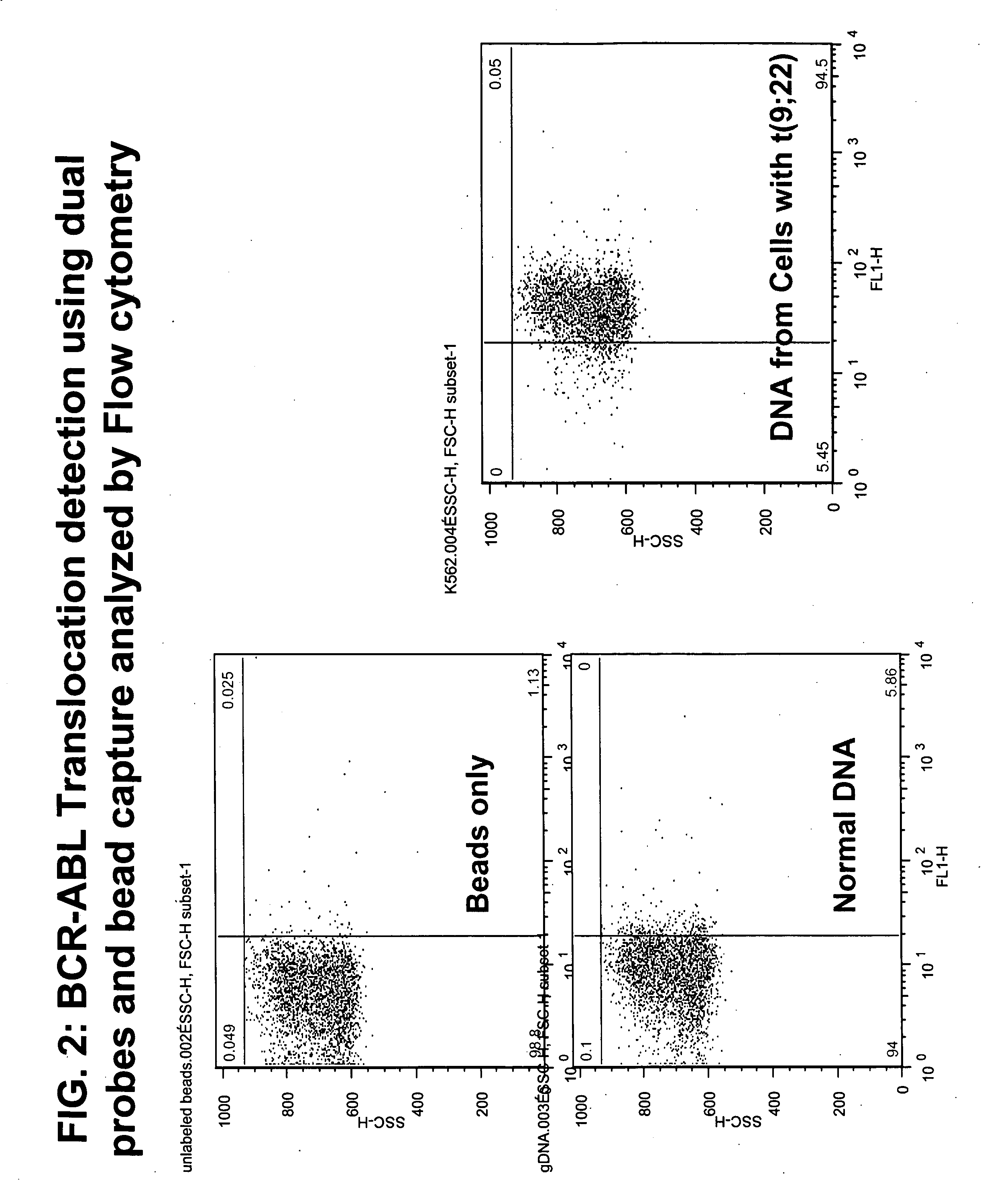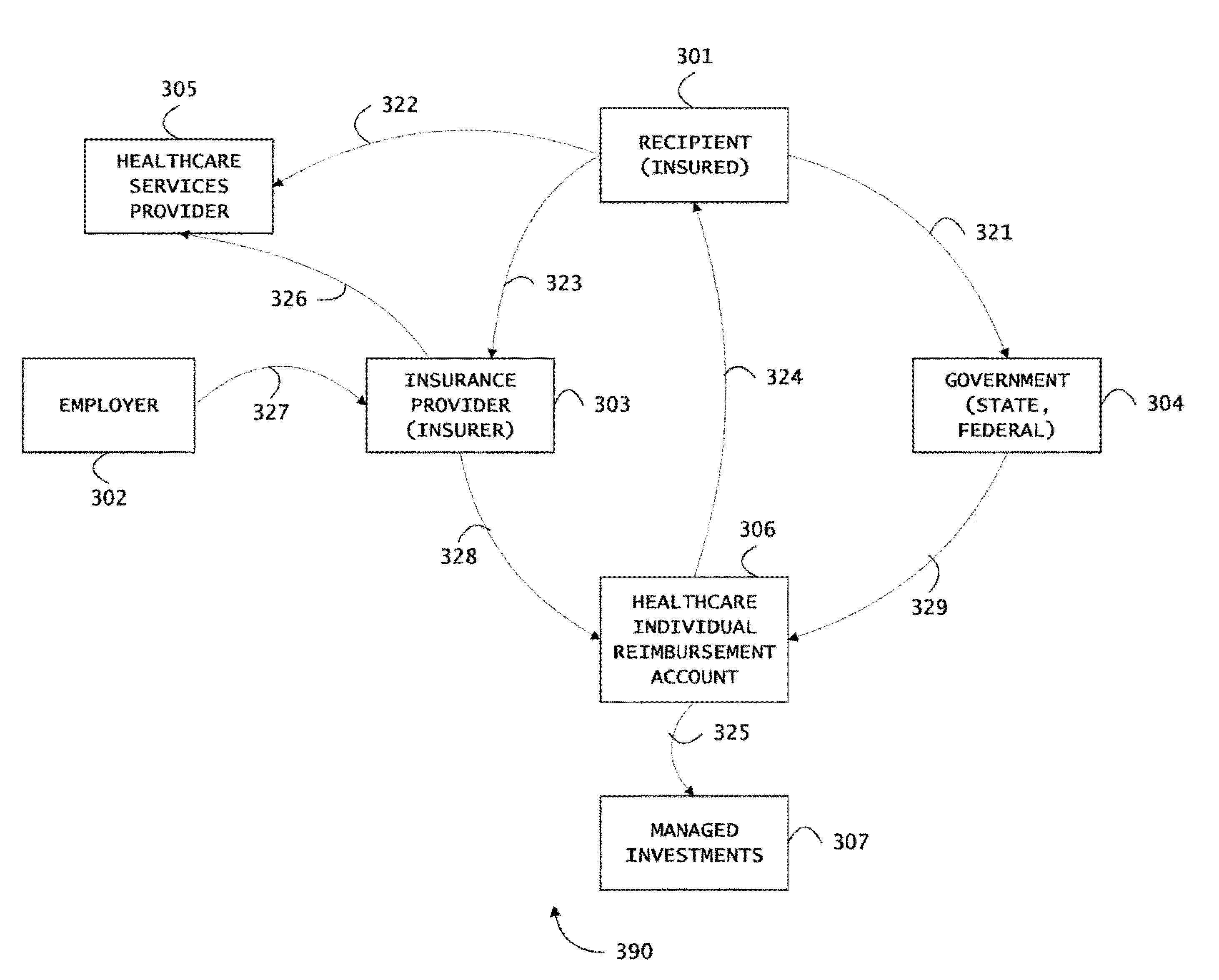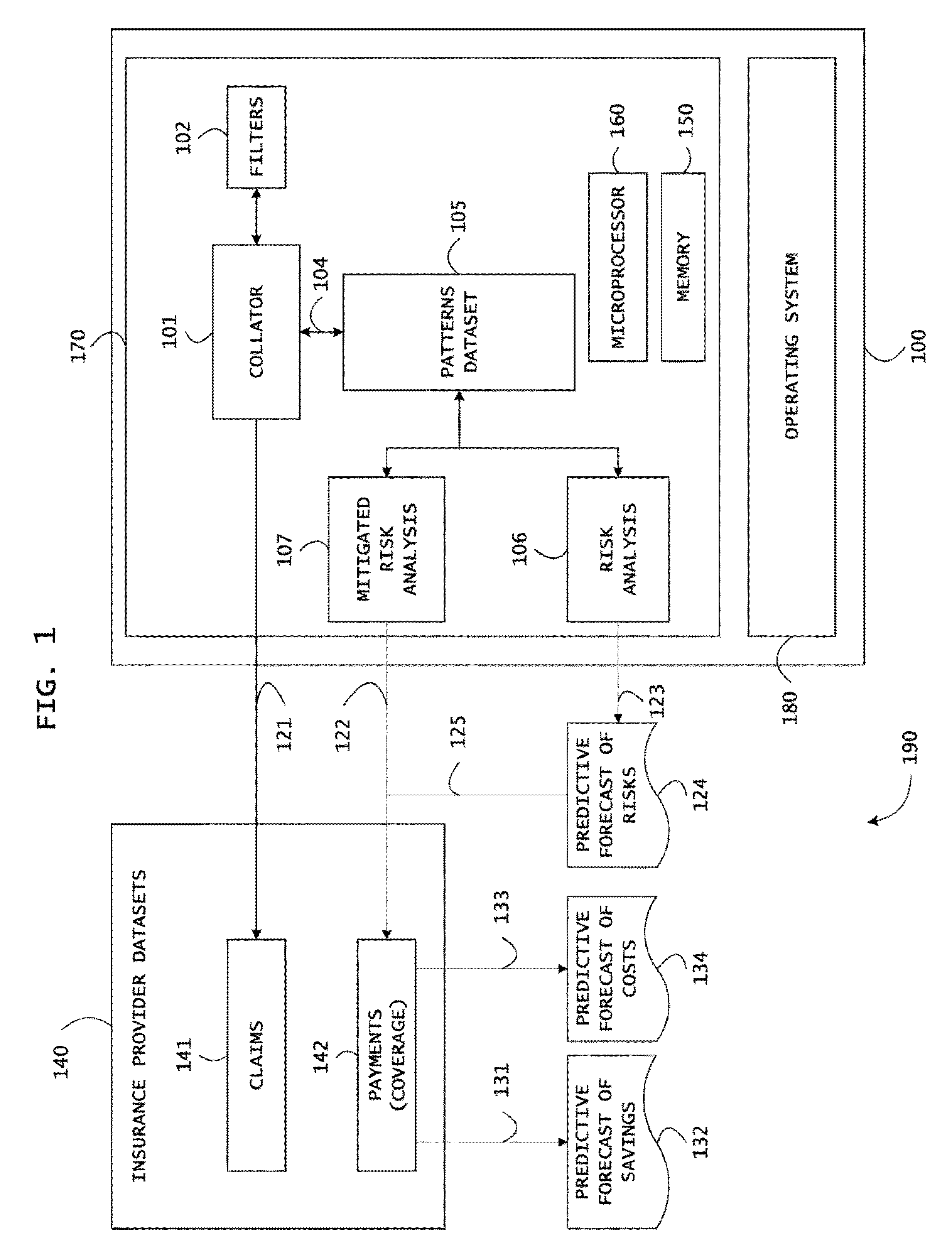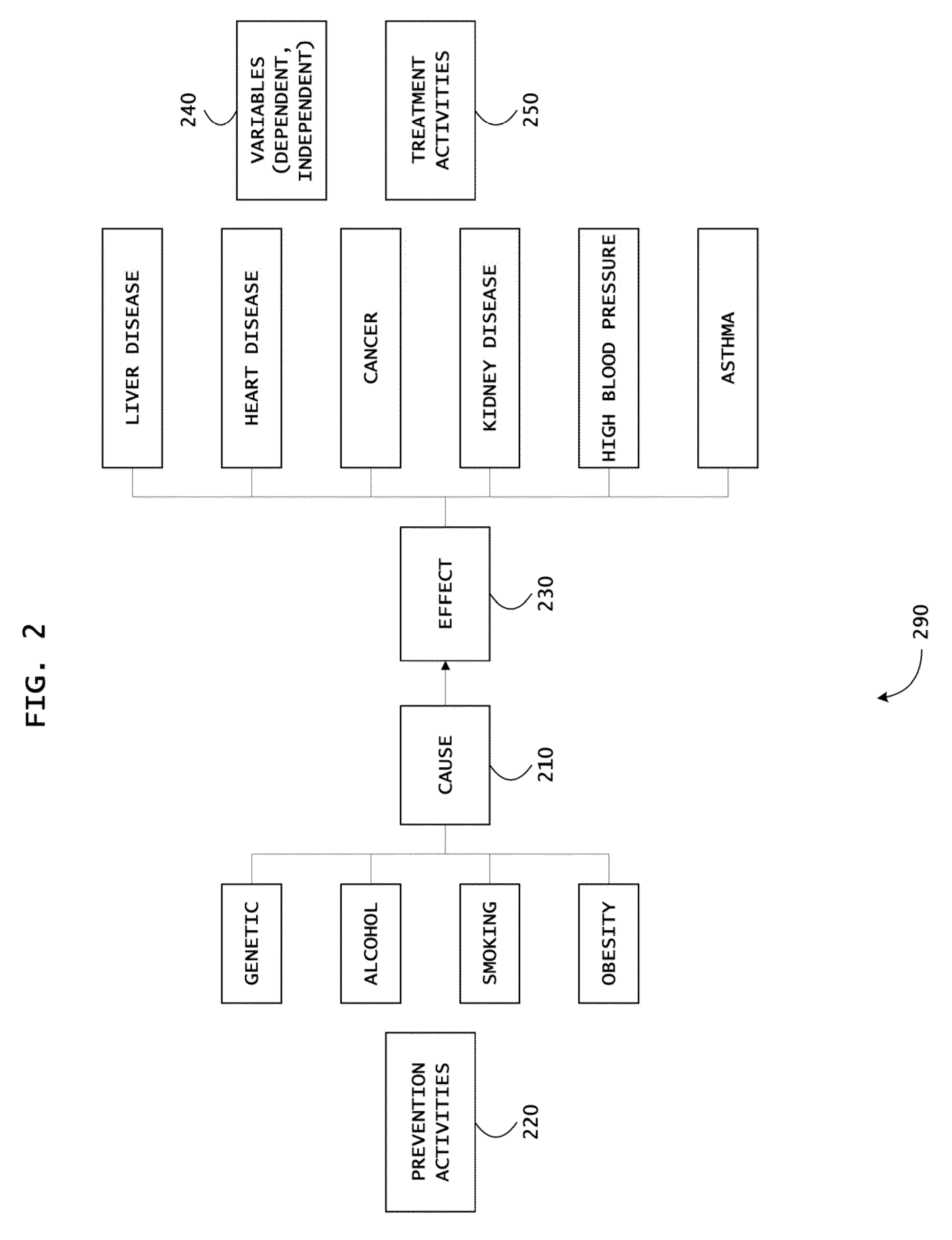Patents
Literature
262 results about "Disease specific" patented technology
Efficacy Topic
Property
Owner
Technical Advancement
Application Domain
Technology Topic
Technology Field Word
Patent Country/Region
Patent Type
Patent Status
Application Year
Inventor
To be specific, disease-specific insurance is a type of supplemental insurance that kicks in if you are diagnosed with the specific disease or condition specified in the policy (and there are usually many more restrictions than that, like you didn’t know you had a likelihood of that disease or condition).
Patient - controlled automated medical record, diagnosis, and treatment system and method
A system and process for providing a computerized medical and biographical records database and diagnostic information. A medical records database and diagnostic program is stored on a central computer that is accessible to individuals using remotely situated computers connected to a computer network. Individual patient medical and biographical records are owned by individual patients who can enter information in their record as well as grant or deny authorization to others, such as health care professionals, insurance providers and other entities, to review part or all of their record. The diagnostic program provides a series of diagnostic questions to an individual who must respond either "yes" or "no" to each question. Each potential response is weighted relative to its importance to a particular disease diagnosis. Relative weights for all responses to diagnostic questions are summed to identify potential diagnoses to connected to the answered questions. The diagnostic program provides the individual with a list of potential diagnoses as well as permitting the individual to save the information to his or her individual medical and biographical record. The information maintained in the above system and process is utilized for health care financing and insurance.
Owner:MARFLY 1 LP
Diagnostic radio frequency identification sensors and applications thereof
ActiveUS20060290496A1Low costDevices with bluetooth interfacesBurglar alarm mechanical actuationPower sensorPoint of care
An integrated passive wireless chip diagnostic sensor system is described that can be interrogated remotely with a wireless device such as a modified cell phone incorporating multi-protocol RFID reader capabilities (such as the emerging Gen-2 standard) or Bluetooth, providing universal easy to use, low cost and immediate quantitative analyses, geolocation and sensor networking capabilities to users of the technology. The present invention can be integrated into various diagnostic platforms and is applicable for use with low power sensors such as thin films, MEMS, electrochemical, thermal, resistive, nano or microfluidic sensor technologies. Applications of the present invention include on-the-spot medical and self-diagnostics on smart skin patches, Point of Care (POC) analyses, food diagnostics, pathogen detection, disease-specific wireless biomarker detection, remote structural stresses detection and sensor networks for industrial or Homeland Security using low cost wireless devices such as modified cell phones.
Owner:ALTIVERA
Methods and apparatus for sample tracking
InactiveUS20040157220A1Reduce chanceMicrobiological testing/measurementFermentationPrenatal diagnosisGenotype
A method and apparatus are provided for identifying a biological sample obtained during either paternity screening, genetic screening, prenatal diagnosis, presymptomatic diagnosis, diagnosis to detect the presence of a target microorganism carrier detection analysis, forensic chemical analysis, or diagnosis of a subject to determine whether a subject is afflicted with a particular disease or disorder, or is at risk of developing a particular disorder, wherein the result obtained from the analysis is associated with the unique DNA fingerprint biological barcode of the genotype of the subject being analyzed. The methods and apparatus of the invention have application in the fields of diagnostic medicine, disease diagnosis in animals and plants, identification of genetically inherited diseases in humans, family relationship analysis, forensic analysis, and microbial typing.
Owner:HANDYLAB
Molecular profiling of tumors
Provided herein are methods and systems of molecular profiling of diseases, such as cancer. In some embodiments, the molecular profiling can be used to identify treatments for a disease, such as treatments that were not initially identified as a treatment for the disease or not expected to be a treatment for a particular disease.
Owner:CARIS MPI INC
Method and apparatus for a comprehensive dynamic personal health record system
InactiveUS20120084092A1Accurate diagnosisRapid diagnosisData processing applicationsHealth-index calculationMedical recordNerve network
We present a data-driven system that seamlessly integrates the compilation of a diverse set of patient electronic medical records, family history, and environmental risk factor databases, a program that determines correlations and assigns weights through a neural network between illness and the state of symptoms, a program to create disease-specific questionnaires and content, a program alert that informs users of trends and potential illness outbreaks due to anomalous changes in regional or national symptom trends, and a program that enables medical practitioners to view patient-generated records and manage an online referral system. The automated diagnoses and alerts allow users to make informed and rapid medical treatment decisions.
Owner:KOZUCH MICHAEL J +2
Signal activated RNA interference
ActiveUS20090234109A1Eliminate steric hindranceInhibits the degradation of the blocking sequenceSugar derivativesScreening processHomopolynucleotideDicer
The invention provides compositions and methods for signal activated RNA interference (saRNAi), preferably in vivo. The invention provides polynucleotides that switches between an inactive form and an active form upon covalent or non-covalent interaction with one or more specific chemical signals, such as disease-specific mRNA, miRNA, or other cellular RNA products with sequences that characterize diseased states of the cell. The interaction between the subject polynucleotides and the signals is preferably mediated by hybridization, which exposes, facilitates the formation, and / or allows the formation of a substrate that can be processed by proteins of the RNAi pathway (such as Dicer). The input and output of multiple different polynucleotides of the invention can form an in vivo signaling network. In addition, the multiple input signals can be integrated to modulate the activity of the subject polynucleotides.
Owner:CALIFORNIA INST OF TECH
Chemical Compositon And Its Devlivery For Lowering The Risks Of Alzheimer's Cardiovascular And Type -2 Diabetes Diseases
ActiveUS20160004298A1Reduce riskInput/output for user-computer interactionTelevision system detailsThe InternetBiomarker (petroleum)
Chemical compositions of bioactive compounds and / or bioactive molecules for lowering the risks of Alzheimer's, Cardiovascular and Diabetes diseases are described. Targeted, passive and programmable / active deliveries of the bioactive compounds and / or bioactive molecules are described. Many embodiments of various subsystems for detection of disease specific biomarkers / an array of disease specific biomarkers and programmable / active delivery of the bioactive compounds and / or bioactive molecules in near real-time / real-time are also described. A portable internet appliance, a portable internet cloud appliance and an augmented reality personal assistant subsystem are also described along with various applications.
Owner:MAZED MOHAMMAD A +1
Methods and compositions to treat and detect misfolded-SOD1 mediated diseases
ActiveUS20070292410A1Inhibit and neutralize toxic effectInhibition of disease progressionBioreactor/fermenter combinationsOrganic active ingredientsEpitopeSOD1
The invention provides a method for treating a medical condition, disease, or disorder mediated by a misfolded form of superoxide dismutase (SOD) in a subject in need of treatment. The method optionally comprises administering to the subject a composition comprising a pharmaceutically acceptable vehicle and an agent selected from (1) an exogenous antibody or fragment thereof that binds selectively to the misfolded form of SOD, and / or (2) an immunogen that elicits production of an endogenous antibody that binds selectively to the misfolded form of SOD, and / or (3) a nucleic acid sequence encoding (1) or (2). In certain embodiments, the invention provides methods of treating diseases such as Alzheimer's Disease, Parkinson's Disease or amyotrophic lateral sclerosis using amyotrophic disease-specific epitopes, and compositions including these epitopes. The invention also provides antibodies that bind to monomeric or misfolded SOD1, and not on the molecular surface of native homodimeric SOD1. In addition, the invention includes methods of diagnosing Alzheimer's Disease, Parkinson's Disease or amyotrophic lateral sclerosis in a subject. Also, the invention provides methods of identifying substances for the treatment or prevention of Alzheimer's Disease, Parkinson's Disease or amyotrophic lateral sclerosis and kits using the binding proteins of the invention.
Owner:UNIV HEALTH NETWORK +1
System and method for determining individualized medical intervention for a disease state
ActiveUS20080014146A1Physical therapies and activitiesDrug and medicationsDisease specificMedical treatment
A system and method for determining individualized medical intervention for a particular disease state, and especially for cancers, that includes the molecular profiling of a biological sample from the patient, determining whether any molecular findings including one or more genes, one or more gene expressed proteins, one or more molecular mechanisms, and / or combinations of such exhibit a change in expression compared to a reference, and identifying a non-specific disease therapy or agent capable of interacting with the genes, gene expressed proteins, molecular mechanisms, or combinations of such molecular findings that exhibited a change in expression.
Owner:CARIS MPI INC
Multidimensional time series entrainment system, method and computer readable medium
PendingUS20160143594A1Useful in detectionData processing applicationsMedical automated diagnosisTime series representationAlgorithm
Illness signatures are mathematically characterized by entrainment relationships among multiple time series representations of physiological processes. Such characteristics include time and phase lags, window lengths for optimum detection, which time series are most entrained with each other, the degree of entrainment relative to the rest of the large database, and the concordance or discordance of the time-varying changes. These optimum disease-specific characteristics can be determined, for example, from large, clinically well-annotated databases of time series representations of physiological processes during health and illness. These characteristics of the entrainment relationships among multiple time series representations of physiological processes are used to make mathematical and statistical predictive models using multivariable techniques such as, but not limited to, logistic regression, nearest-neighbor techniques, neural and Bayesian networks, principal and other component analysis, and others. These models are quantitative expressions that transform measured characteristics to the probability of an illness, or p(illness).
Owner:UNIV OF VIRGINIA ALUMNI PATENTS FOUND
System and Method for Predicting Inner Age
InactiveUS20120185274A1Data processing applicationsHealth-index calculationDisease riskAge and gender
A method and system use a combined contribution of multiple disease risk factors to predict the risk of onset of particular diseases in an individual. The prediction models use information from separate studies. Multiple disease predictions for a predetermined number of diseases are made. The predictions are used to calculate the individual's mortality risk and life expectancy. The life expectancy is compared to that of age and gender matched peers to determine the inner age of the individual.
Owner:BIOSIGNIA
Diagnostic Radio Frequency Identification Sensors And Applications Thereof
ActiveUS20090209904A1Low costDevices with bluetooth interfacesSubstation equipmentPower sensorPoint of care
An integrated passive wireless chip diagnostic sensor system is described that can be interrogated remotely with a wireless device such as a modified cell phone incorporating multi-protocol RFID reader capabilities (such as the emerging Gen-2 standard) or Bluetooth, providing universal easy to use, low cost and immediate quantitative analyses, geolocation and sensor networking capabilities to users of the technology. The present invention can be integrated into various diagnostic platforms and is applicable for use with low power sensors such as thin films, MEMS, electrochemical, thermal, resistive, nano or microfluidic sensor technologies. Applications of the present invention include on-the-spot medical and self-diagnostics on smart skin patches, Point-of-Care (POC) analyses, food diagnostics, pathogen detection, disease-specific wireless biomarker detection, remote structural stresses detection and sensor networks for industrial or Homeland Security using low cost wireless devices such as modified cell phones.
Owner:ALTIVERA
Personalized medical management system, networks, and methods
InactiveUS20120231959A1Low costReduce inefficienciesBioreactor/fermenter combinationsBiological substance pretreatmentsPersonalizationDisease
Disclosed herein are systems and methods for the assignment of therapeutic pathways to members of a network of oncology. The systems and methods allow for storage of disparate information in a database and determine a uniform semantics for all of the stored information. In addition, the systems and methods allow for the calculation of treatment pathways based on patient information as well as publicly-available information relating to particular diseases, and for the refinement of those treatment pathways as new information is added. Robot-assisted genomic labs permit automated genetic testing, which is integrated with the system.
Owner:KEW GROUP
System and method for evidence based differential analysis and incentives based heal thcare policy
An evidence based cost modeling and predictive analysis system, and an incentives based plan to reduce healthcare costs are disclosed. An analytics system may generate incremental expenditures among overweight and obese individuals, predictive forecasts of future medical costs, and predictive forecast of cost reduction based on financial incentives to recipients. The forecasts may include statistical trends, prevalence of diseases based on body mass index, and medical evidence associated with specific illnesses. A computer based program may process and analyze dependent and independent variables in electronically stored information (for example insurance, health and medical records). A health insurance provider may provide an annual rebate on paid premiums to recipients based on a qualifying annual BMI as an incentive. The recipients may receive the rebates in a qualified health reimbursement account (HRA) managed by the recipients towards future healthcare related expenditures.
Owner:SRINIVAS NEELA +1
Whole blood preparation for cytometric analysis of cell signaling pathways
ActiveUS20060046272A1Quick fixWithdrawing sample devicesPreparing sample for investigationCross-linkPeritoneal fluid
This invention is directed to a method for preparation of a biological sample for measurement of protein epitopes that allows for the preservation of intracellular protein epitopes and detection of signal transduction pathways based on the ability to capture transient activation states of the epitopes. The method provided by the invention allows for the rapid fixation of biological samples containing red blood cells, to ensure that epitopes of signal transduction molecules and other intracellular protein epitopes are preserved in the active state. The method of the invention further allows for lysis of red blood cells, thereby making it a useful method for cytometric analysis of biological samples, including, for example, whole blood, bone marrow aspirates, peritoneal fluids, and other red blood cell containing samples. The invention also provides a method to recover or “unmask” epitopes on intracellular antigens that have been made inaccessible by the cross linking fixative necessary to fix the sample. Significantly, the methods of the invention allow preservation and analysis of phospho-epitope levels in biological samples taken directly from patients to determine disease-specific characteristics.
Owner:UNIV HEALTH NETWORK +1
Chemical composition and its delivery for lowering the risks of alzheimer's, cardiovascular and type-2 diabetes diseases
ActiveUS20130338039A1Low risk of developingReduce productionPeptide librariesNucleotide librariesChemical compositionCvd risk
Chemical compositions of bioactive compounds and / or bioactive molecules for lowering the risks of Alzheimer's, Cardiovascular and Diabetes diseases are described. Targeted, passive and programmable / active deliveries of the bioactive compounds and / or bioactive molecules are described. Subsystems for detection of disease specific biomarkers / an array of disease specific biomarkers and programmable / active delivery of the bioactive compounds and / or bioactive molecules in near real-time / real-time are also described.
Owner:MAZED MOHAMMAD A +1
Disease specific ontology-guided rule engine and machine learning for enhanced critical care decision support
ActiveUS20190057774A1Easy to operateEasy to identifyMedical simulationMathematical modelsMedical recordNODAL
A disease-specific ontology crafted by a consensus of expert clinicians may be used to semantically characterize / provide semantic meaning to dynamically changing patient electronic medical record (EMR) data in critical care settings. Hierarchical, directed node-edge-node graphs (concept maps or Vmaps) developed with an end-user friendly graphical user interface and ontology editor, can be used to represent structured clinical reasoning and serve as the first step in disease-specific ontology building. Disease domain Vmaps reflecting expert clinical reasoning associated with management of acute illnesses encountered in critical care settings (e.g. ICUs) that extend core clinical ontologies, developed and reviewed by experts, are in turn extended with existing medical ontologies and automatically translated to a domain ontology processing engine. Semantically-enhanced EMR data derived from the ontology processing engine is incorporated into both real-time ‘track and trigger” rule engines and machine learning training algorithms using aggregated data. The resulting rule engines and machine-learnt models provide enhanced diagnostic and prognostic information respectively, to assist in clinical dual modes of reasoning (analytical rules and models based on experiential data) to assist in decisions associated with the specific disease in acute critical care settings.
Owner:COMP TECH ASSOC INC
Methods and Compositions to Treat and Detect Misfolded-SOD1 Mediated Diseases
ActiveUS20080206251A1Reduce and inhibit participationInhibit and neutralize toxic effectOrganic active ingredientsSenses disorderInflammatory Bowel DiseasesCerebral infarction
The invention provides a method for treating a medical condition, disease, or disorder mediated by a misfolded form of superoxide dismutase (SOD) in a subject in need of treatment. The method optionally comprises administering to the subject a composition comprising a pharmaceutically acceptable vehicle and an agent selected from (1) an exogenous antibody or fragment thereof that binds selectively to the misfolded form of SOD, and / or (2) an immunogen that elicits production of an endogenous antibody that binds selectively to the misfolded form of SOD, and / or (3) a nucleic acid sequence encoding (1) or (2). In certain embodiments, the invention provides methods of treating diseases such as Alzheimer's Disease, Parkinson's Disease or amyotrophic lateral sclerosis and macular degeneration, glaucoma, ischemia, cerebral infarction, myocardial infarction, atherosclerosis, multiple sclerosis, inflammatory bowel disease, ulcerative colitis, Crohn's disease or necrotizing enterocolitis using disease-specific epitopes, and compositions including these epitopes. The invention also provides antibodies that bind to monomeric or misfolded SOD1, and not on the molecular surface of native homodimeric SOD1. In addition, the invention includes methods of diagnosing Alzheimer's Disease, Parkinson's Disease or amyotrophic lateral sclerosis in a subject. Also, the invention provides methods of identifying substances for the treatment or prevention of Alzheimer's Disease, Parkinson's Disease or amyotrophic lateral sclerosis and kits using the binding proteins of the invention.
Owner:PROMIS NEUROSCI
Methods of monitoring disease states and therapies using gene expression profiles
InactiveUS20010018182A1Bioreactor/fermenter combinationsNervous disorderComputerized systemTherapeutic effect
The present invention provides methods for monitoring disease states in a subject, as well as methods for monitoring the levels of effect of therapies upon a subject having one or more disease states. The methods involve: (i) measuring abundances of cellular constituents in a cell from a subject so that a diagnostic profile is obtained, (ii) measuring abundances of cellular constituents in a cell of one or more analogous subjects so that perturbation response profiles are obtained which correlate to a particular disease or therapy, and (iii) determining the interpolated perturbation response profile or profiles which best fit the diagnostic profile according to some objective measure. In other aspects, the invention also provides a computer system capable of performing the methods of the invention, data bases comprising perturbation response profiles for one or more diseases and / or therapies, and kits for determining levels of disease states and / or therapeutic effects according to the methods of the invention.
Owner:MICROSOFT TECH LICENSING LLC +1
Portable Electronic Medical Assistant
InactiveUS20070238936A1Improved medication managementLive wellPhysical therapies and activitiesData processing applicationsPersonalizationChronic condition
A handheld device used to assist a user in performing daily activities and in being socially active. The device can also be used to assist in monitoring dietary, medication, and supplement intakes, pain and stress levels, vitals, exercise, sleep quality, and other aspects of better living. The device can be personalized to monitor specific diseases or chronic conditions, and can provide access to specific environmental data that can be used to support better living.
Owner:BECKER SHIRLEY ANN
Disease risk evaluation tool and method
A disease risk evaluation and education tool, preferably implemented in logic on a computing device such as a Personal Digital Assistant, permits a user to input patient-specific data relevant to evaluating that patient's risk for a particular disease, e.g., coronary heart disease. The tool's logic calculates the equivalent age of the patient, based on the Framingham data set and on the input data, and presents one or more treatment recommendations.
Owner:EATON CHARLES B +1
Pharmaceutical Packaging and Method for Delivery of Same
InactiveUS20100305975A1Easy to changeEasy selectionDrug and medicationsLarge containersPatient managementGuideline
A disease management system including: a Diagnostic Module, which provides access to patient information and scientific guidelines for patient treatment; a Diagnostic Interpretive Module, which provides tools to evaluate risk of particular diseases or conditions based on patient information and an evaluative methodology; a Prescriptive Module, which is used to recommend, select, and / or evaluate one or more treatment regimens based on patient information and guidelines; a Dispensing Module, which evaluates a patient's compliance with a treatment regimen; and / or a Feedback and Patient Management Module, which gathers compliance information and evaluates efficacy of a treatment regimen for a patient. In embodiments of the subject invention, some or all of the modules described can communicate to manage a disease, medical condition, and / or health problem in a patient.
Owner:DAYA MEDICALS
Method and system for generating an echocardiogram report
InactiveUS20060247545A1Quickly and easily guidesMinimal interactionData processing applicationsMedical report generationAnatomical structuresData field
An echocardiogram report generation method and system are disclosed for creating a complete medical report describing an echocardiogram without dictation, transcription or typing. The report is tailored to describe an individual patient and generated in complete grammatically complex sentences in response to the user's input with a text report that is complete and understandable for a primary care physician. The method and system provides the user the parallel options of an anatomical structure approach and a disease-specific approach in order to amplify the description of the echocardiogram in specific areas and give a more meaningful report. The echo report generated by the method and system creates a table of measurements and calculations in compact form, omitting any data fields not used. The method and system guides the user through the various areas of the heart which merit comment on the report and provides clear color coded segments of the heart muscle and provides several heart segment classifications so that the user can use his favored classification scheme. Diagnostic possibilities are provided for inclusion in the report conclusions.
Owner:ST MARTIN EDWARD
Methods of and devices for monitoring the effects of cellular stress and damage resulting from radiation exposure
ActiveUS20110035158A1Easy to determineRadiation pyrometryWithdrawing sample devicesDiseaseNitric oxide
Methods of and devices for detecting a measurable characteristic of the gas sample. The methods and devices are able to detect a value of or a change of measurable characteristic (e.g., such as chemical concentrations), a change of chemical compositions and / or biological responses of a living organism that are induced by a stressor. The biological responses are able to include cellular stress, damage, and immune responses. The stressor is able to include an exposure to ionizing radiation. The effects of the stressors are able to be monitored in terms of changes in the chemical concentrations and chemical compositions in an exhaled breath. The chemicals are able to function as bio-markers. The chemicals that are to be monitored are able to include nitric oxide, carbon monoxide, carbon dioxide, ethane, and other molecules related to specific disease resulting from the stressor.
Owner:BANOS PETER THEOPHILOS
Immunoconjugates with improved efficacy for the treatment of diseases
InactiveUS20070196274A1Improve therapeutic efficacyHigh detection sensitivityIn-vivo radioactive preparationsImmunoglobulins against animals/humansAntibody conjugateCD11a
The invention provides therapeutic or diagnostic antibodies with modified N— or C-terminal sequences that are enriched with lysine or tyrosine residues. These lysine or tyfosine residues can be used to couple radioisotopes, cytotoxic agents, or detectable labels. The increased stoichiometric ratios of these agents in the antibody conjugates lead to improved therapeutic efficacy or enhanced detection sensitivity. Non-limiting examples of antibodies suitable for the present invention include anti-CD22, anti-ErbB2, anti-VEGF, anti-EGFR, anti-VEGFR, anti-Her-3, anti-Her-4, anti-CEA, anti-CTLA-4, anti-CD4, anti-CD3, anti-CD20, anti-TNF-a, anti-CD11a, anti-Lewis Y antigen, anti-TrailR, anti-IL2R, anti-CD30, anti-CD146, anti-CD147, anti-alpha V integrin beta, anti-CD19, anti-GD2, anti-3H11, anti-EBV, anti-HIV, anti-HBV, anti-HCV, and other disease-specific antibodies.
Owner:WELSON PHARMA
Method of providing disease-specific binding molecules and targets
Provided are novel specific binding molecules, particularly human antibodies as well as fragments, derivatives and variants thereof that recognize neoepitopes of disease-associated proteins which derive from native endogenous proteins but are prevalent in the body of a patient in a variant form and / or out of their normal physiological context. In addition, pharmaceutical compositions comprising such binding molecules, antibodies and mimics thereof and methods of screening for novel binding molecules, which may or may not be antibodies as well as targets in the treatment of neurological disorders such as Alzheimer's disease are described.
Owner:UNIV ZURICH
Method for measuring nucleotide sequence of disease associated nucleic acid molecules in sample to be detected
ActiveCN102329876ABioreactor/fermenter combinationsBiological substance pretreatmentsDNA fragmentationNucleotide sequencing
The invention relates to a method for measuring a nucleotide sequence of disease associated nucleic acid molecules in a sample to be detected. The method comprises the following steps of: adding joints to the terminals of double-chain nucleic acid molecules fragmented in the sample to be detected and from genome DNA, and performing enrichment; and capturing the DNA fragments containing joints by using a nucleic acid chip, and sequencing the captured fragments on a high-flux sequencing platform. The nucleotide sequence of the disease associated nucleic acid molecules in the sample can be quickly obtained with high flux by analyzing the sequencing result based on the known gene locus information, and the nucleotide sequence can be used for detecting monogenic disease. The invention also provides the nucleic acid chip used for the method and fixed with several kinds to tens of thousands of kinds of disease specific probes, and a kit containing the chip.
Owner:BGI GENOMICS CO LTD
Method of Providing Disease-Specific Binding Molecules and Targets
Provided are novel specific binding molecules, particularly human antibodies as well as fragments, derivatives and variants thereof that recognize neoepitopes of disease-associated proteins which derive from native endogenous proteins but are prevalent in the body of a patient in a variant form and / or out of their normal physiological context. In addition, pharmaceutical compositions comprising such binding molecules, antibodies and mimics thereof and methods of screening for novel binding molecules, which may or may not be antibodies as well as targets in the treatment of neurological disorders such as Alzheimer's disease are described.
Owner:UNIV ZURICH
Non-in situ hybridization method for detecting chromosomal abnormalities
The present invention provides methods of detecting chromosomal or genetic abnormalities associated with various diseases or with predisposition to various diseases. In particular, the present invention provides advanced methods of performing DNA hybridization, capture, and detection on solid support. Invention methods are useful for the detection, diagnosis, predicting response to therapy, detecting minimal residual disease, prognosis, or monitoring of disease treatment or progression of particular disease conditions such as cell proliferative disorders
Owner:QUEST DIAGNOSTICS INVESTMENTS INC
System and Method for Evidence Based Differential Analysis and Incentives Based Healthcare Policy
An on-demand and real-time evidence based cost modeling and predictive analysis system, and a financial incentives based plan to reduce healthcare costs. An analytics system that includes a data aggregator and regression models generates incremental expenditures among overweight and obese individuals, predictive forecasts of future medical costs, and predictive forecasts of cost reduction based on financial incentives to recipients. The forecasts may include interactions, personalized variables, statistical trends, prevalence of diseases based on body mass index and / or age, and medical evidence associated with specific illnesses. A computer-based program may process and analyze variables in healthcare records. A health insurance provider may provide an annual rebate on paid premiums to recipients based on a qualifying annual BMI as an incentive. The recipients may receive the rebates in a qualified Healthcare Individual Reimbursement Account (HIRA) managed by the recipients towards future healthcare related expenditures.
Owner:SRINIVAS NEELA +1
Features
- R&D
- Intellectual Property
- Life Sciences
- Materials
- Tech Scout
Why Patsnap Eureka
- Unparalleled Data Quality
- Higher Quality Content
- 60% Fewer Hallucinations
Social media
Patsnap Eureka Blog
Learn More Browse by: Latest US Patents, China's latest patents, Technical Efficacy Thesaurus, Application Domain, Technology Topic, Popular Technical Reports.
© 2025 PatSnap. All rights reserved.Legal|Privacy policy|Modern Slavery Act Transparency Statement|Sitemap|About US| Contact US: help@patsnap.com
